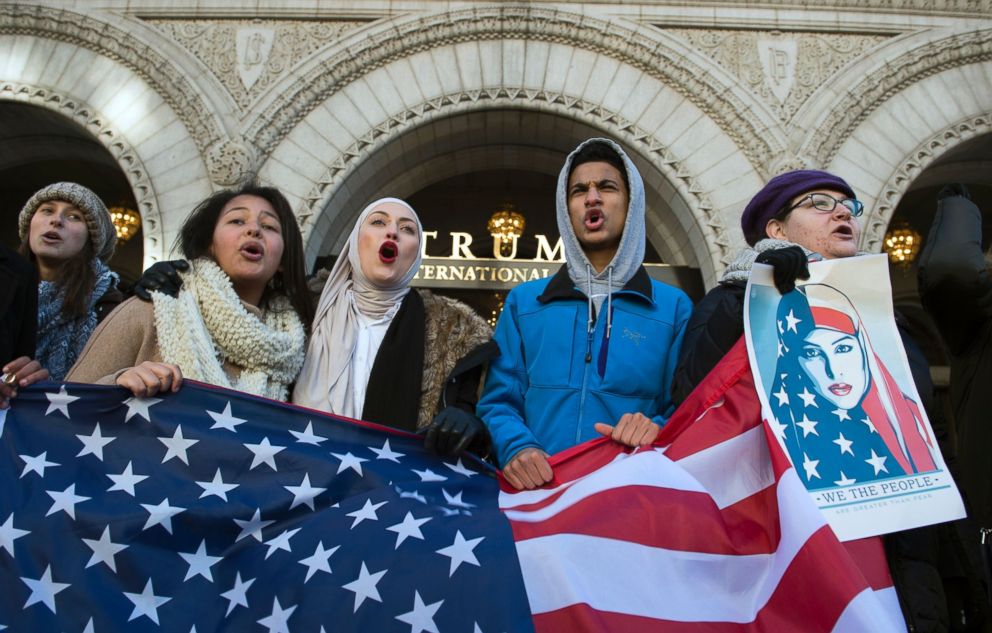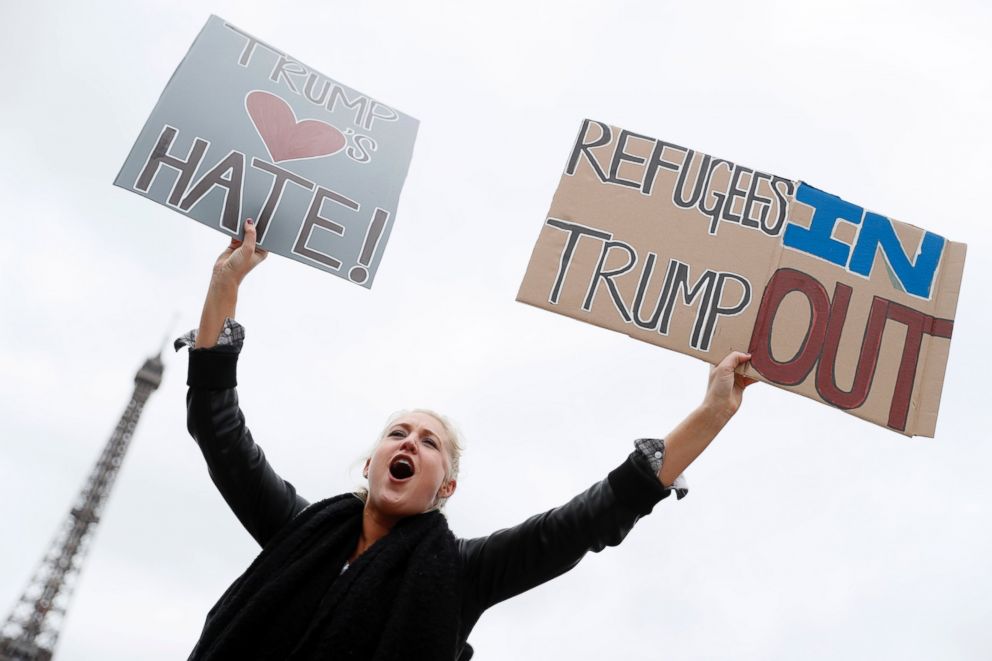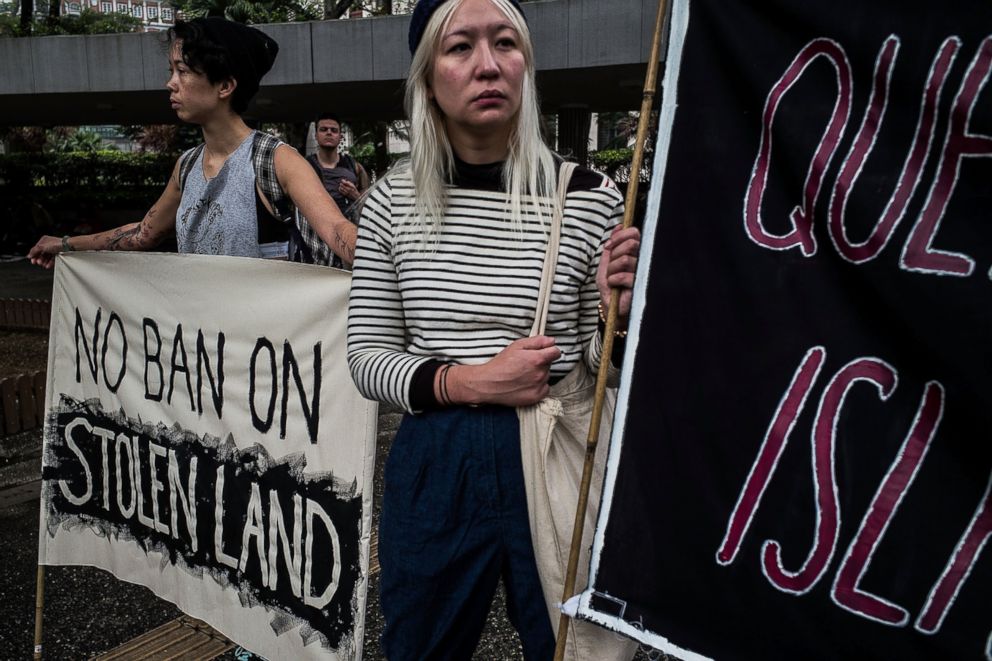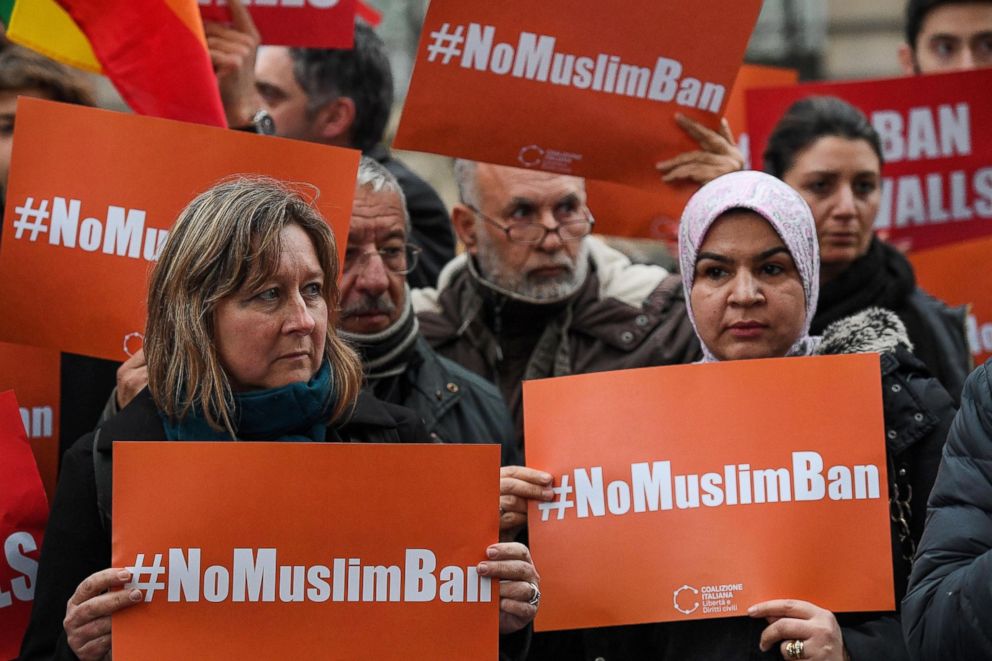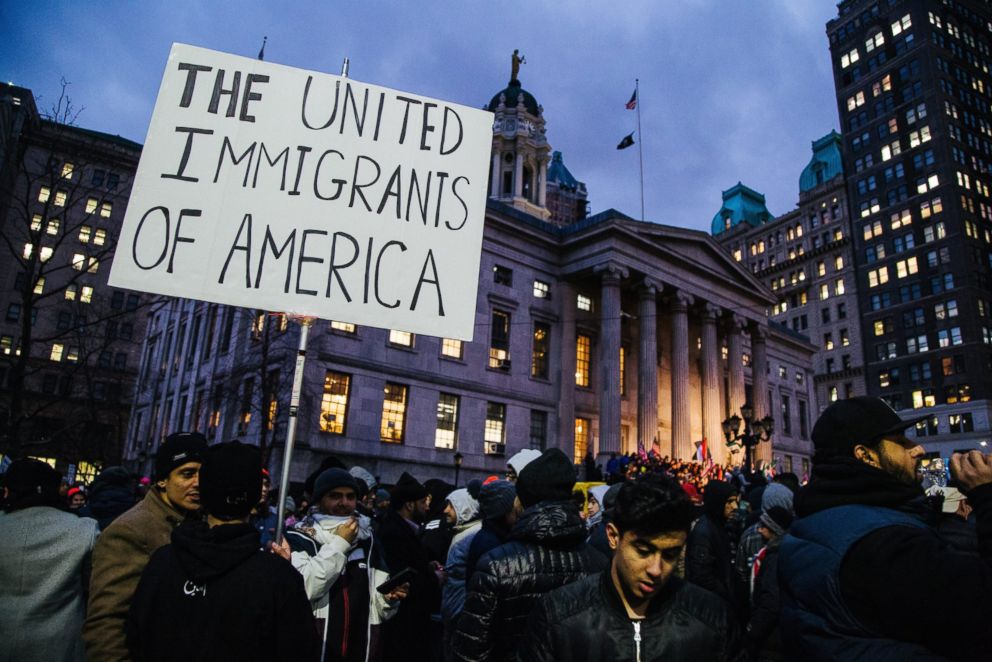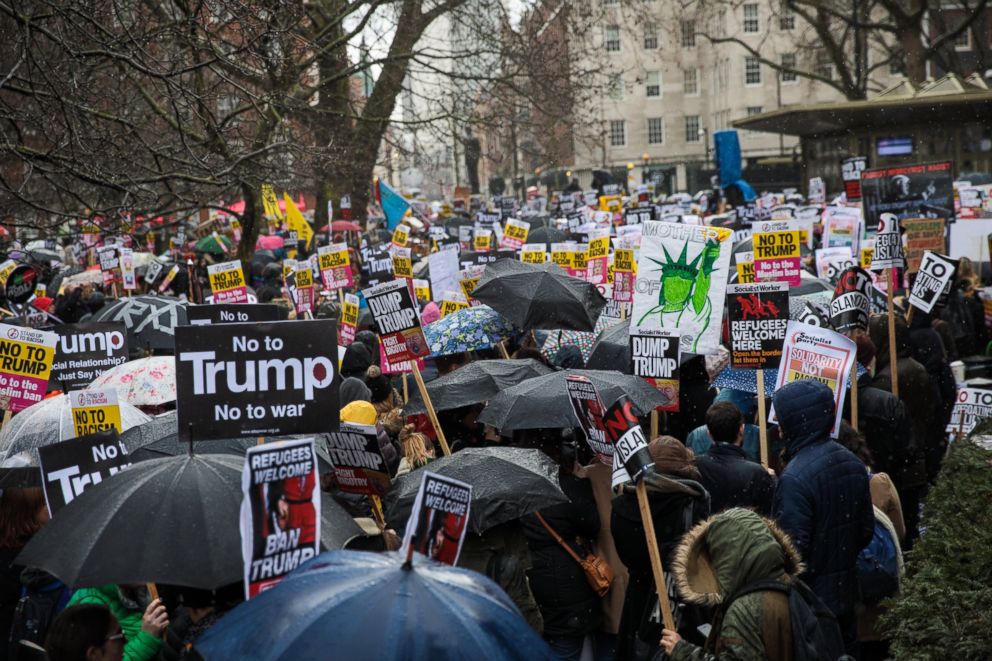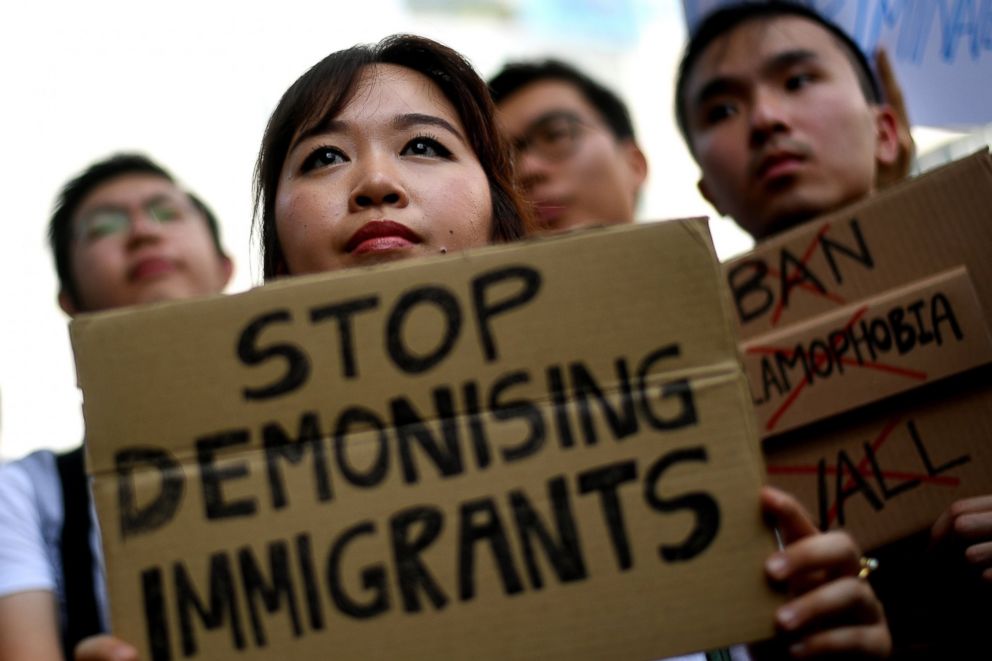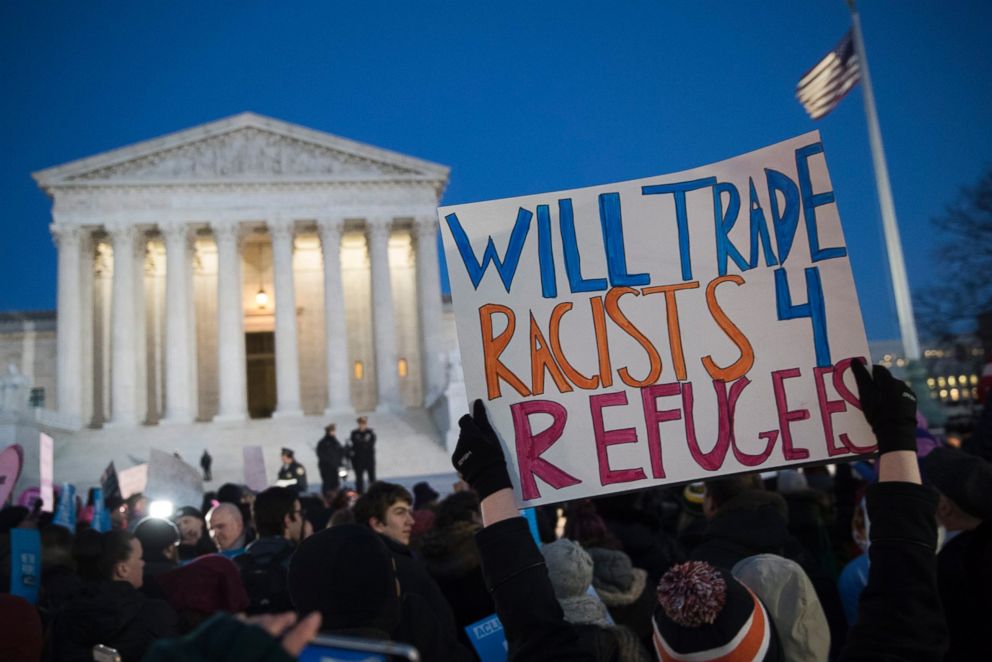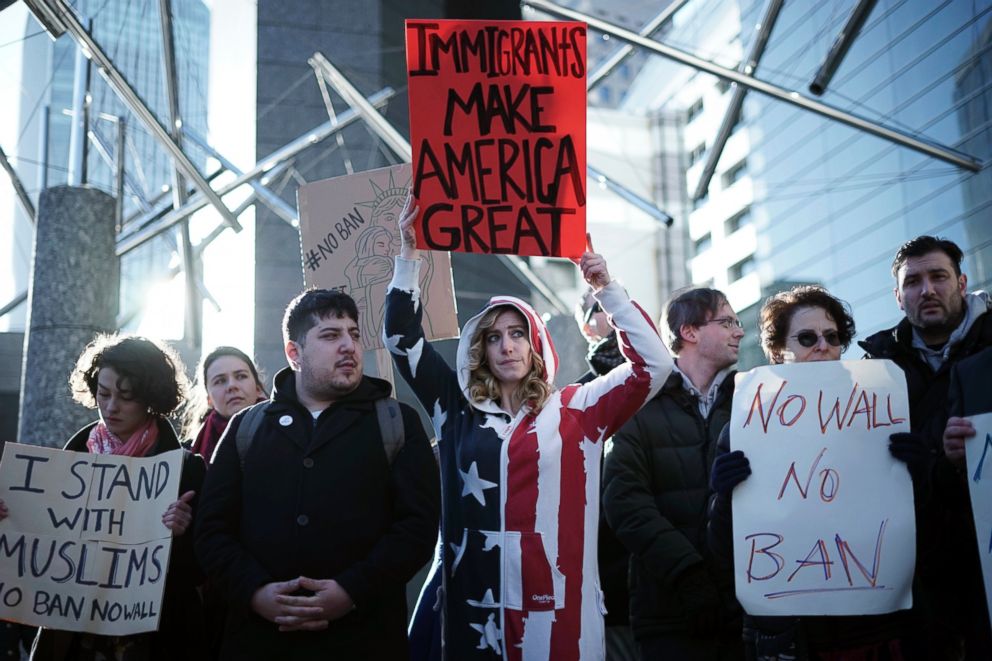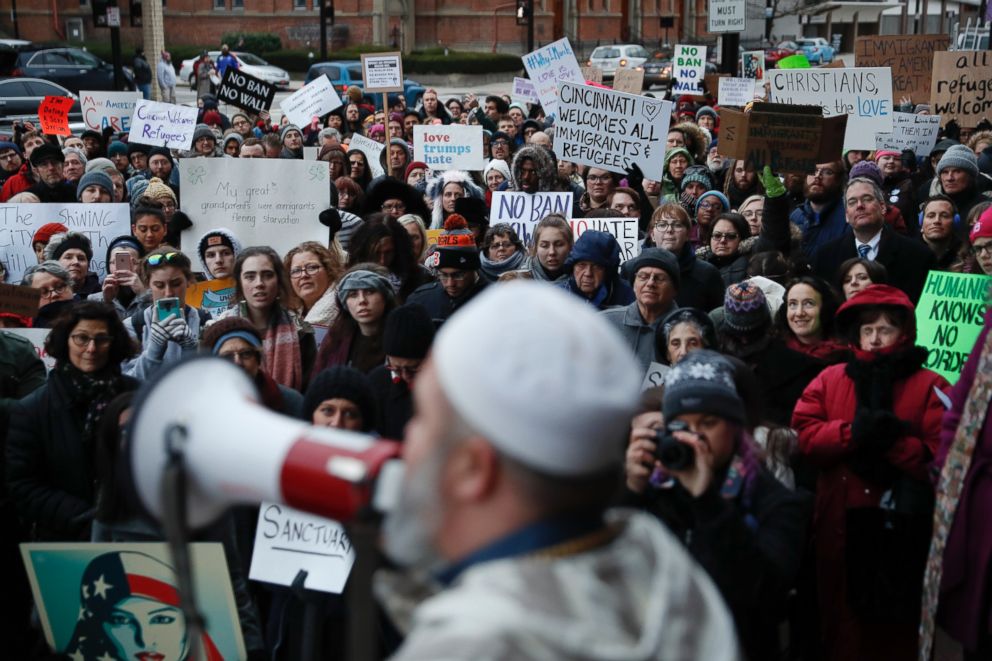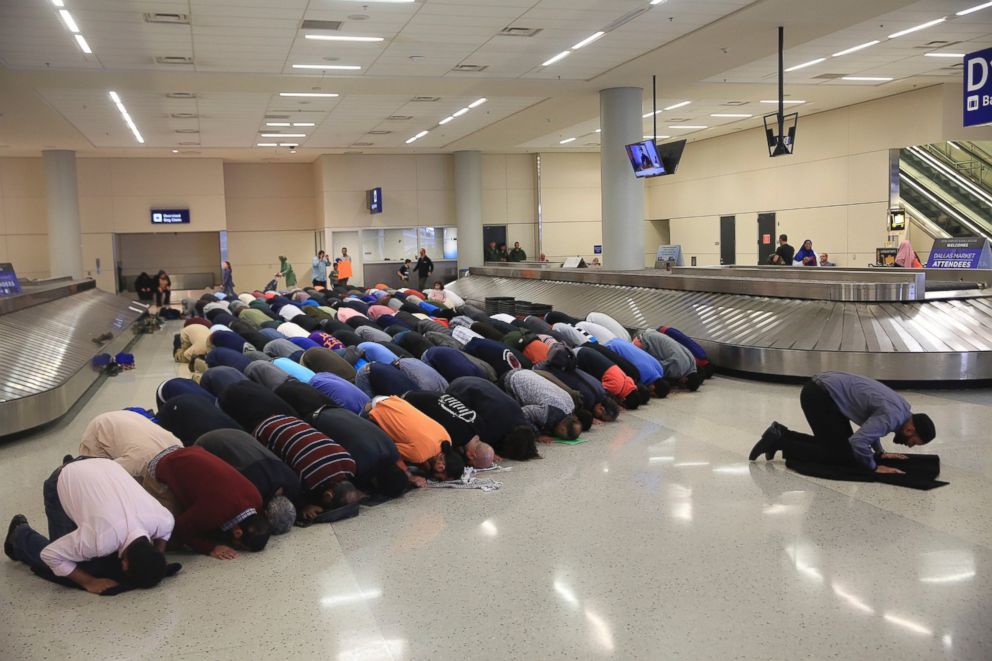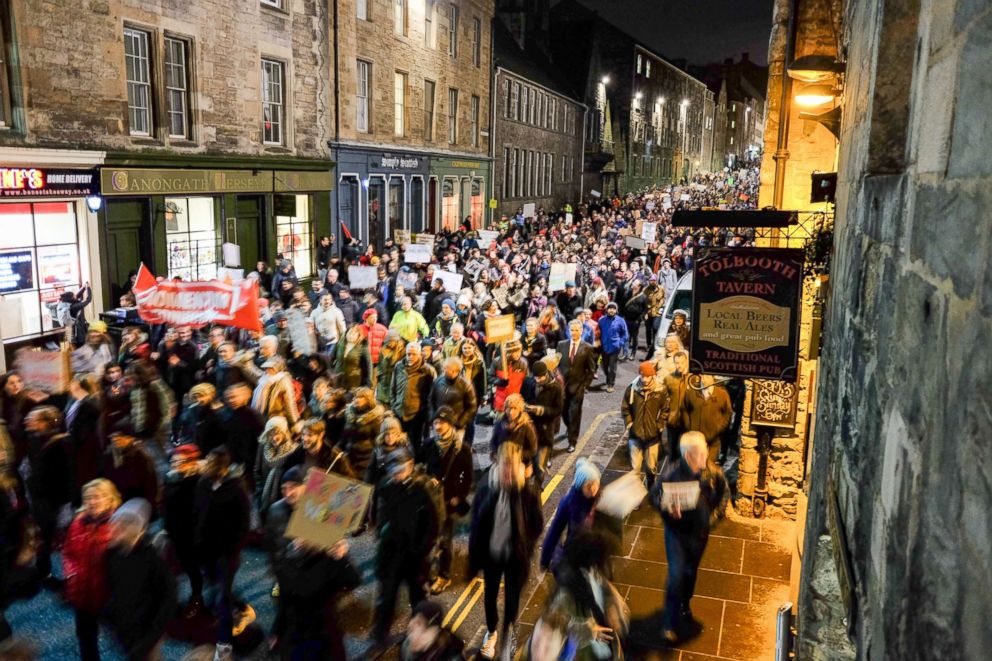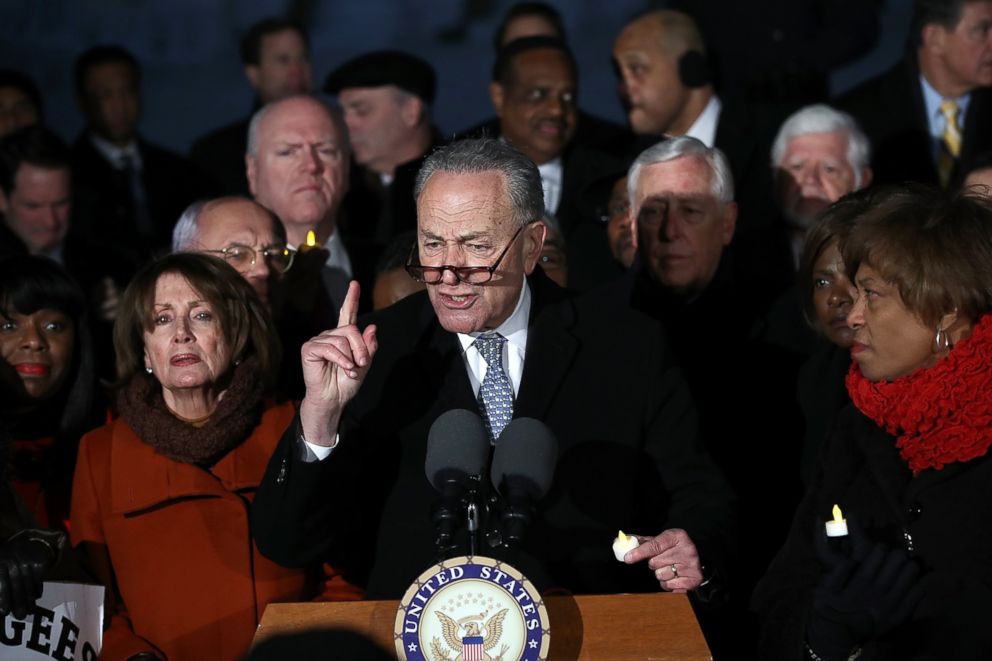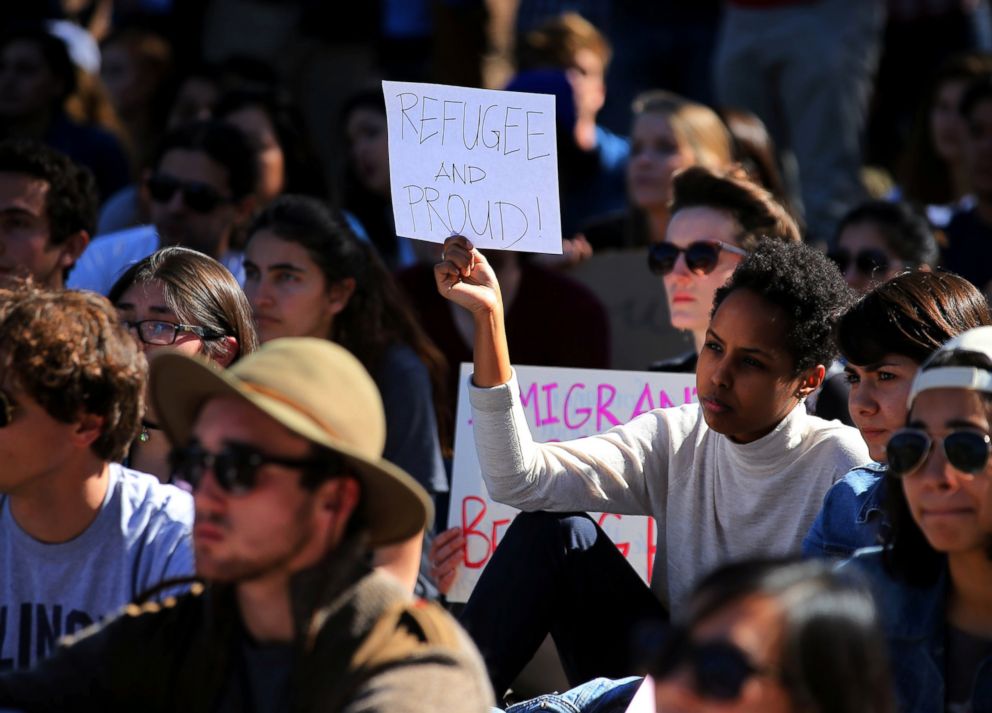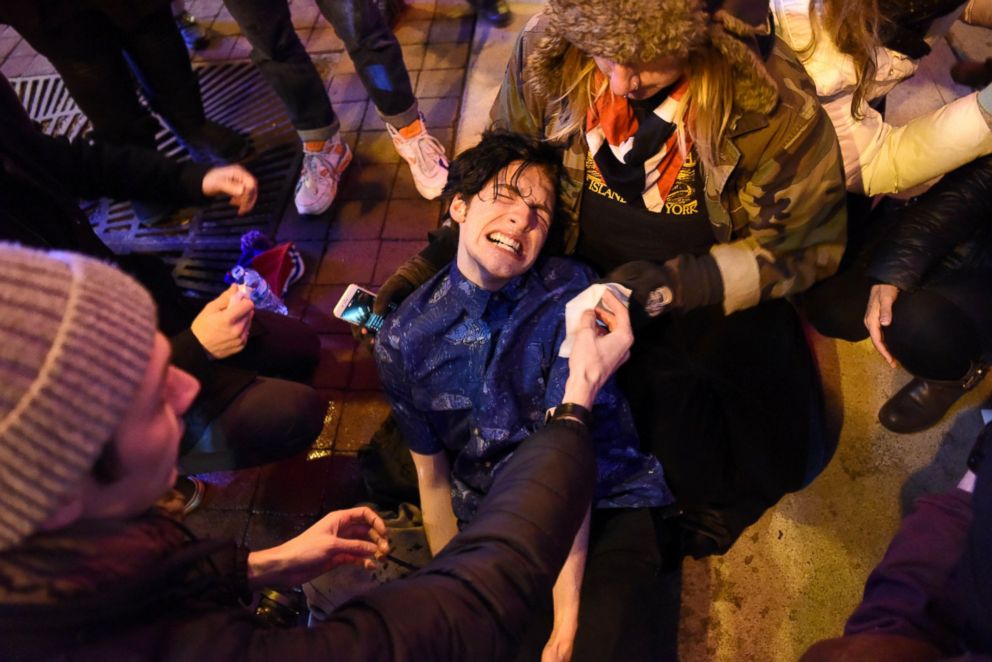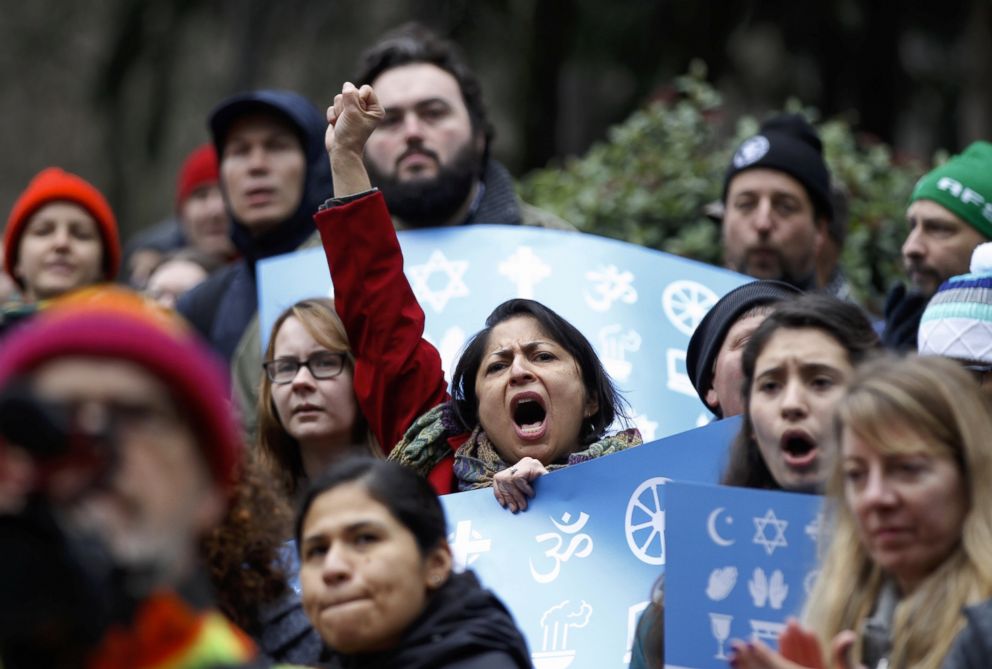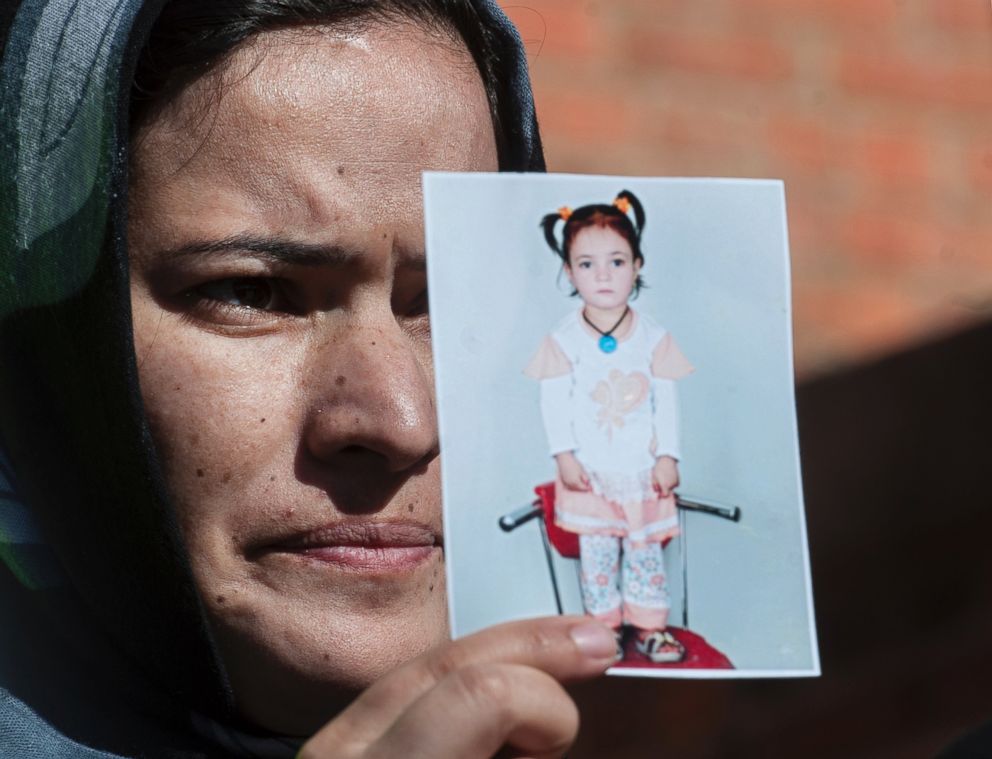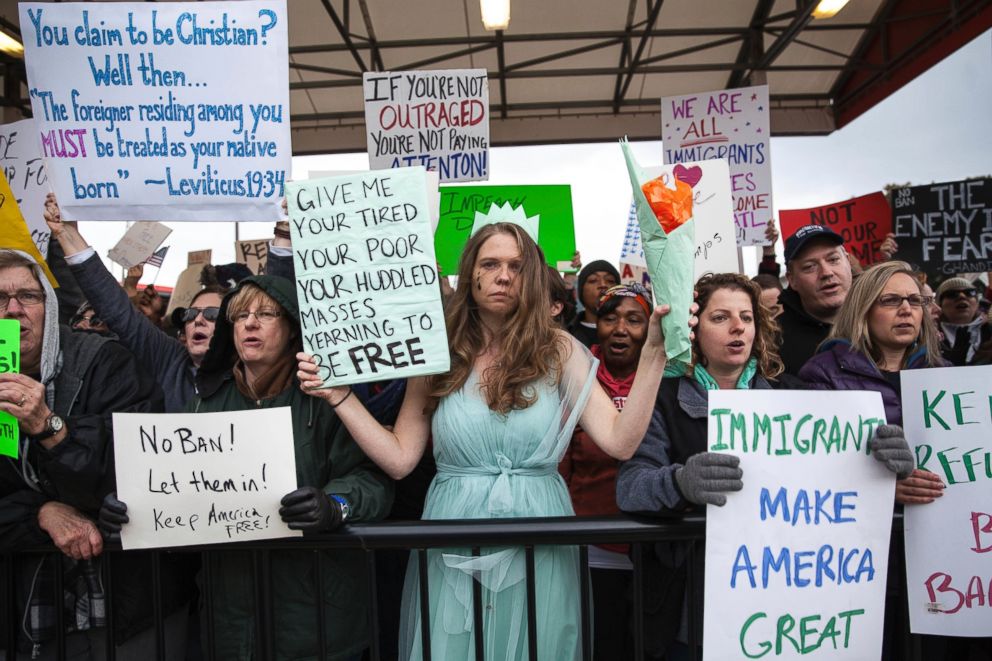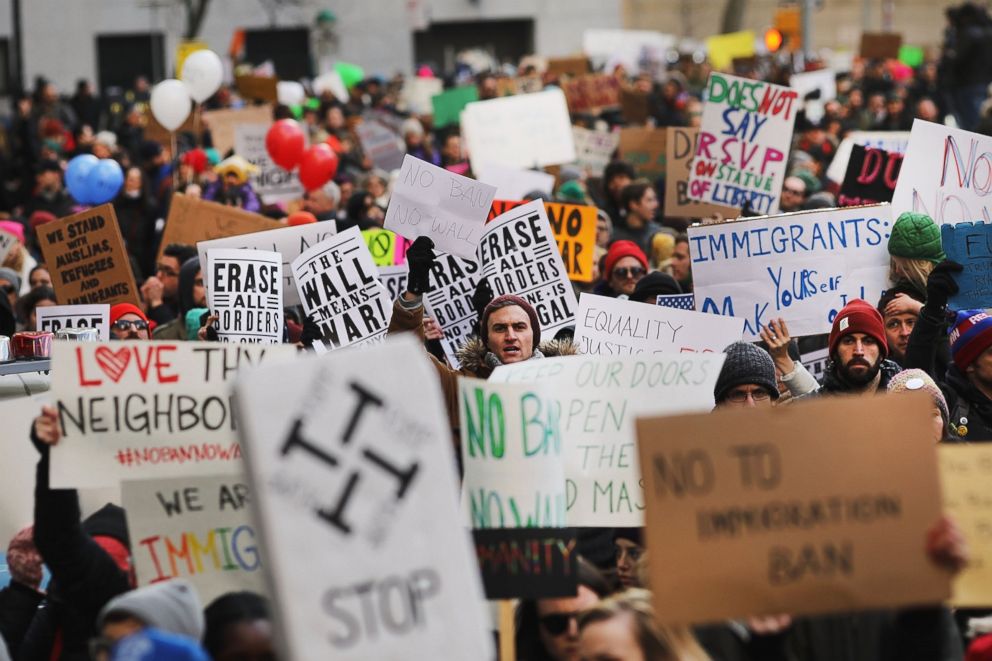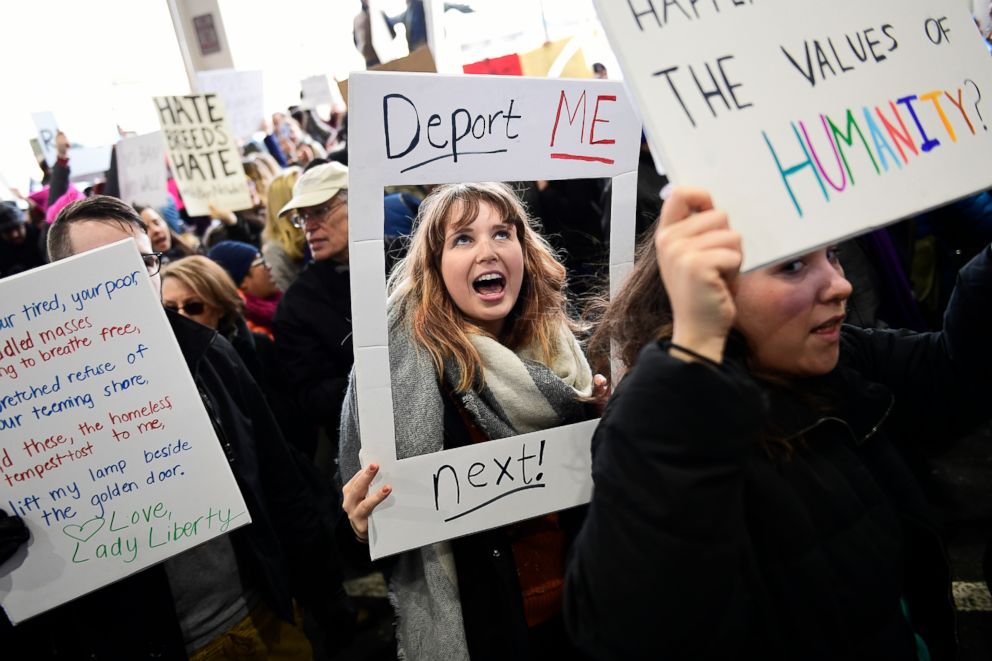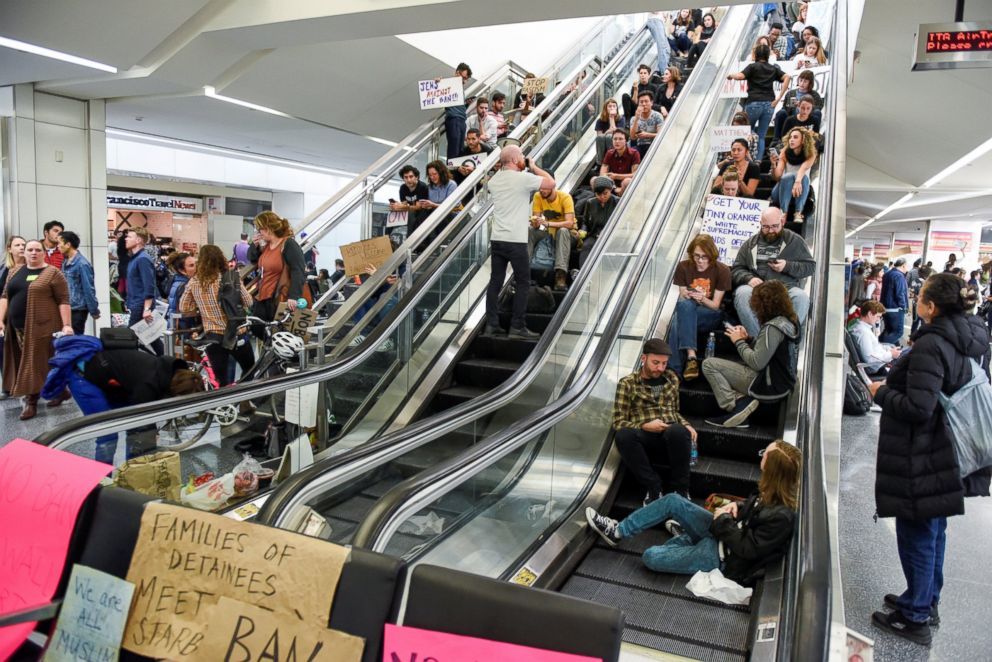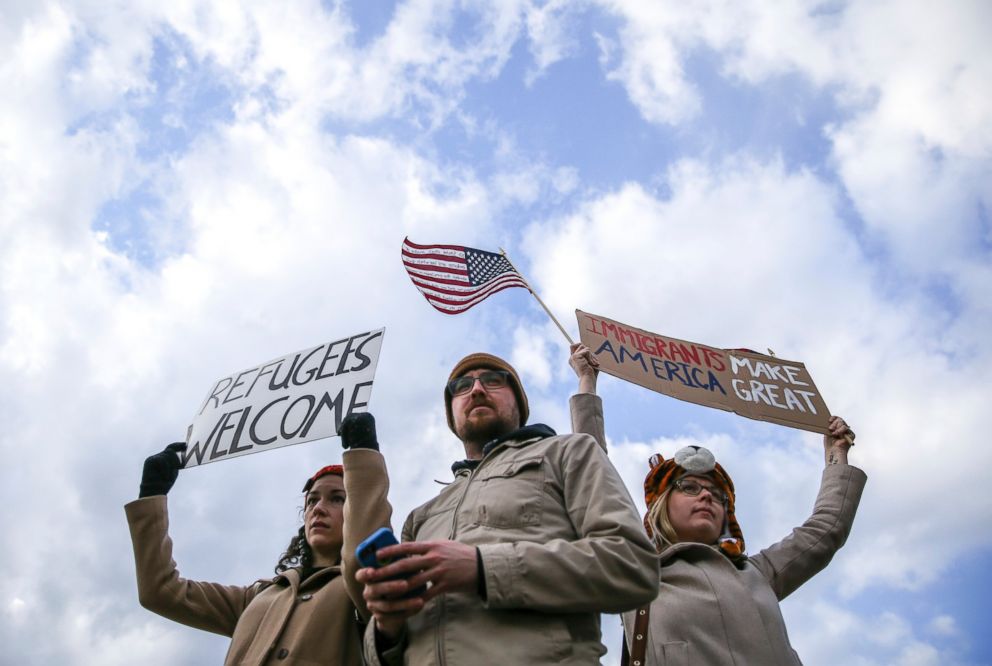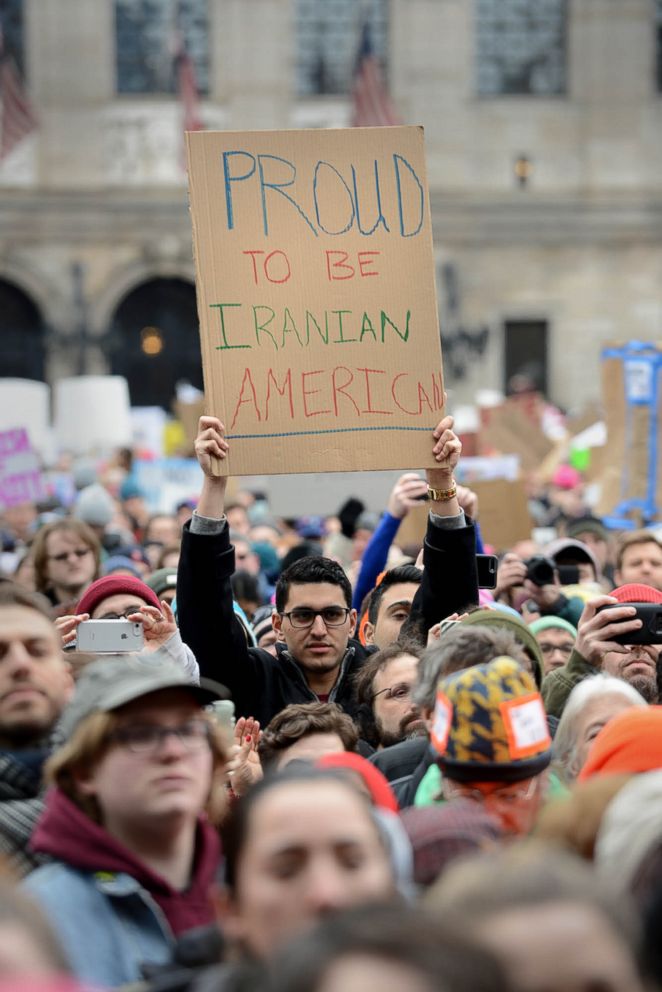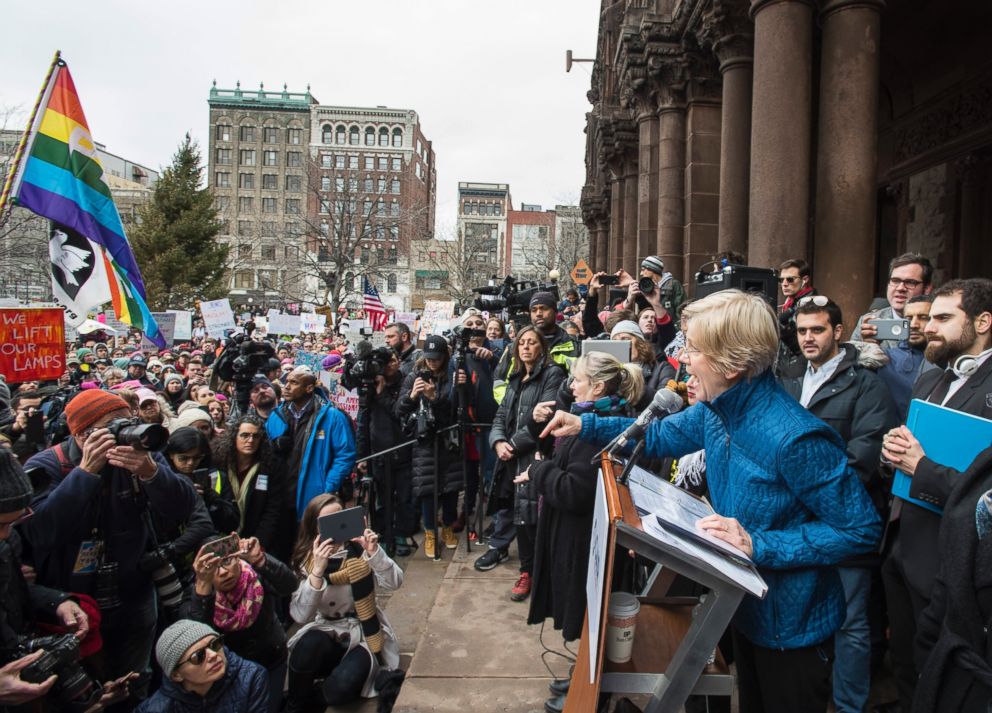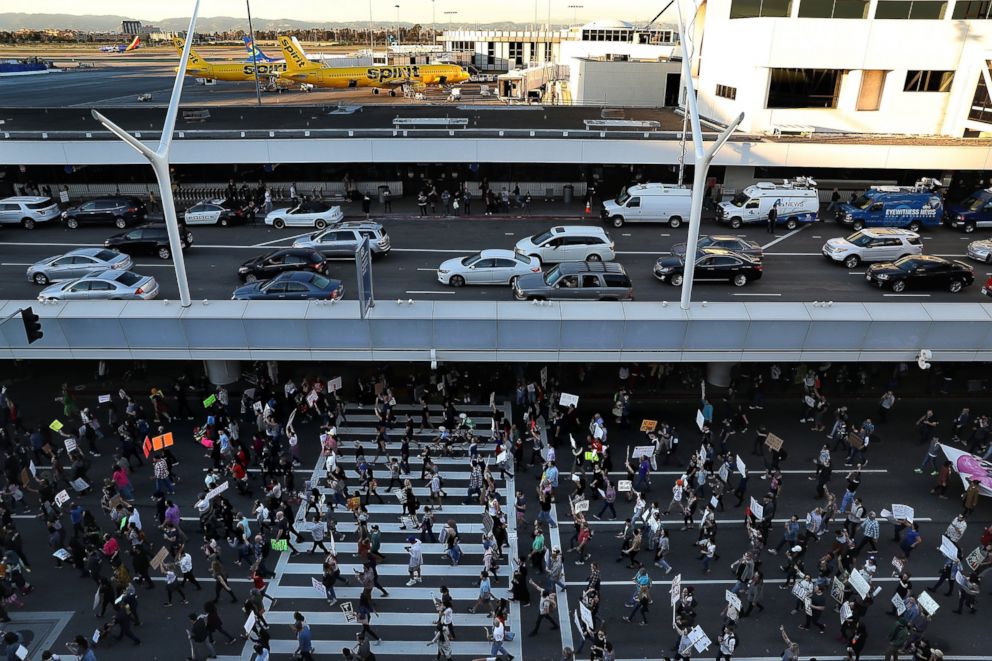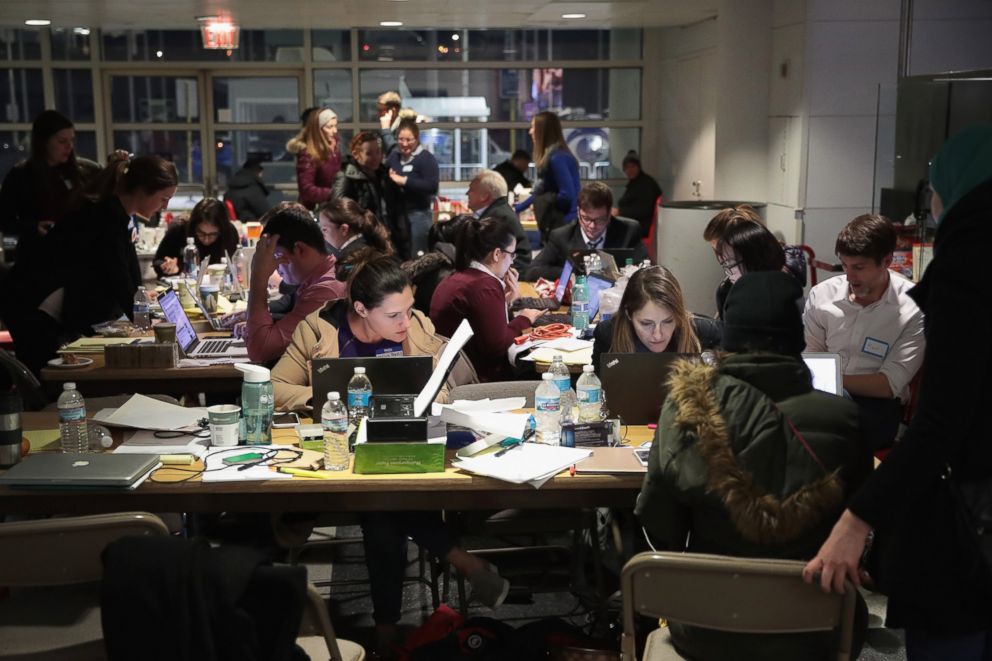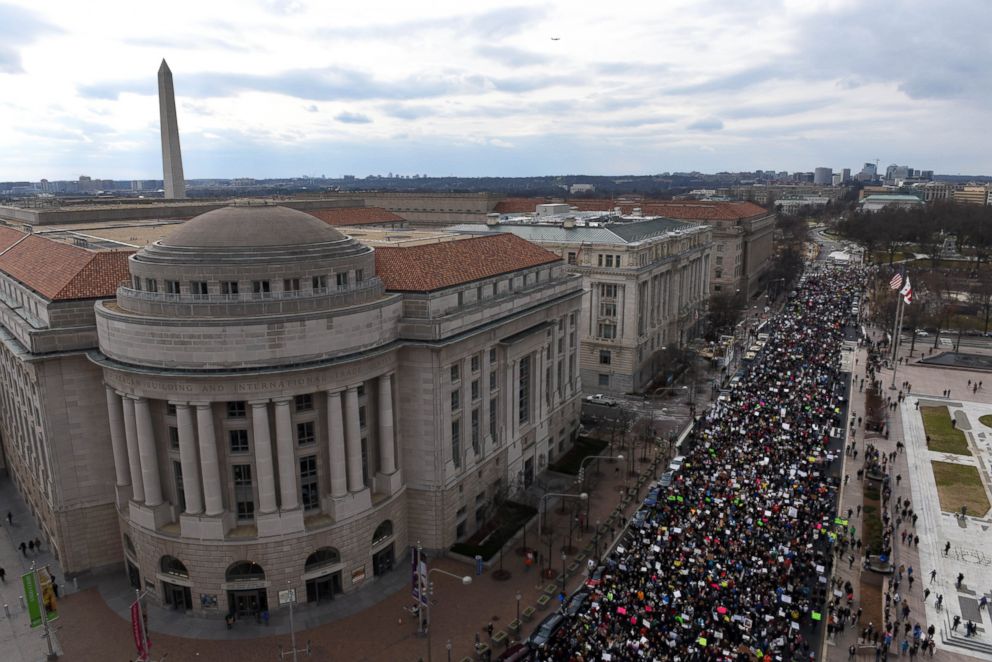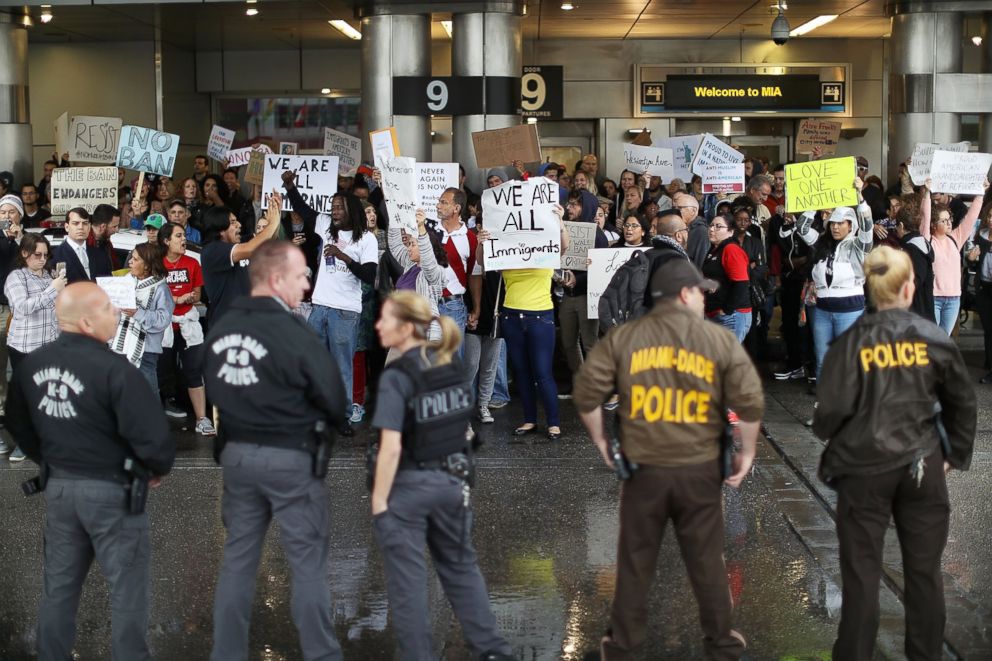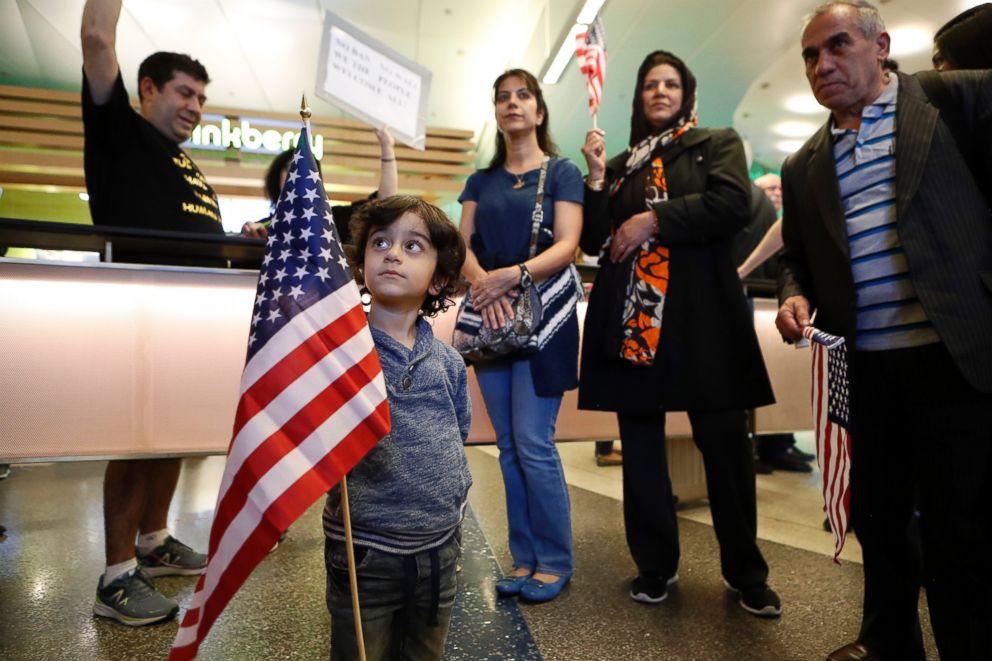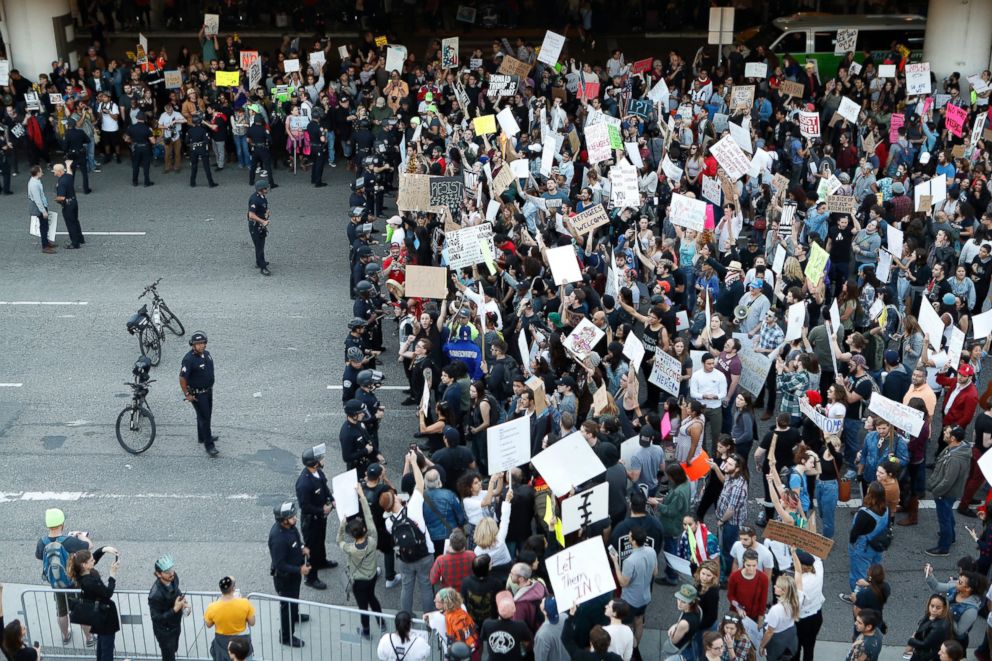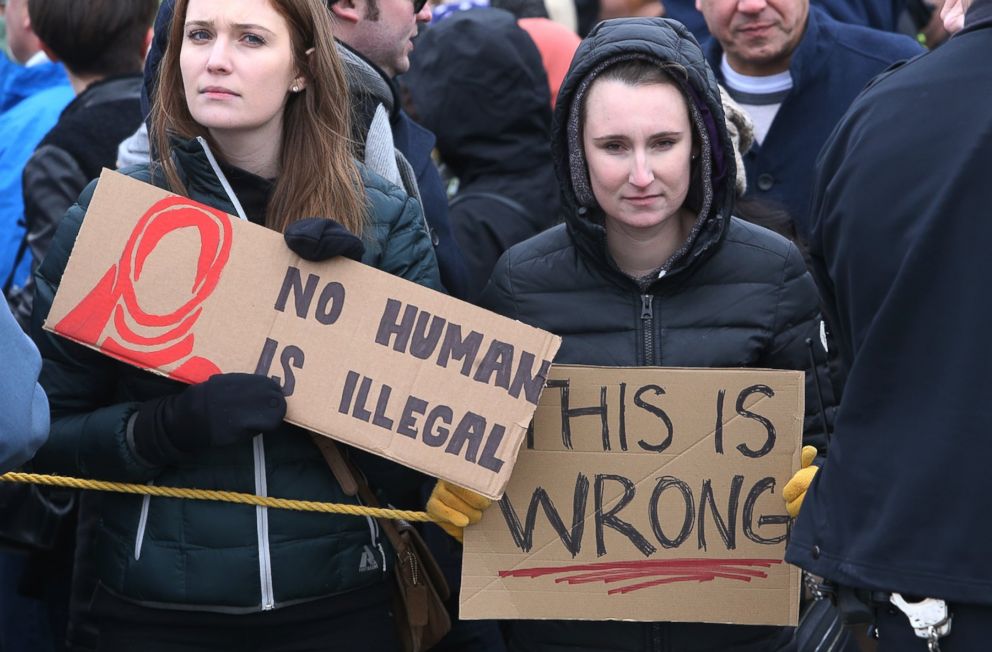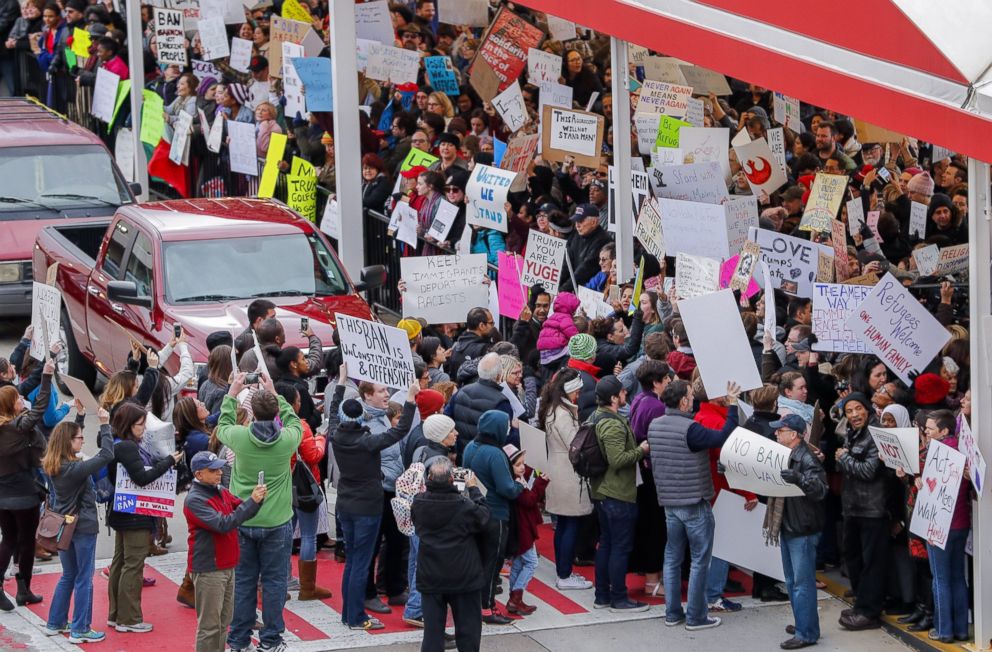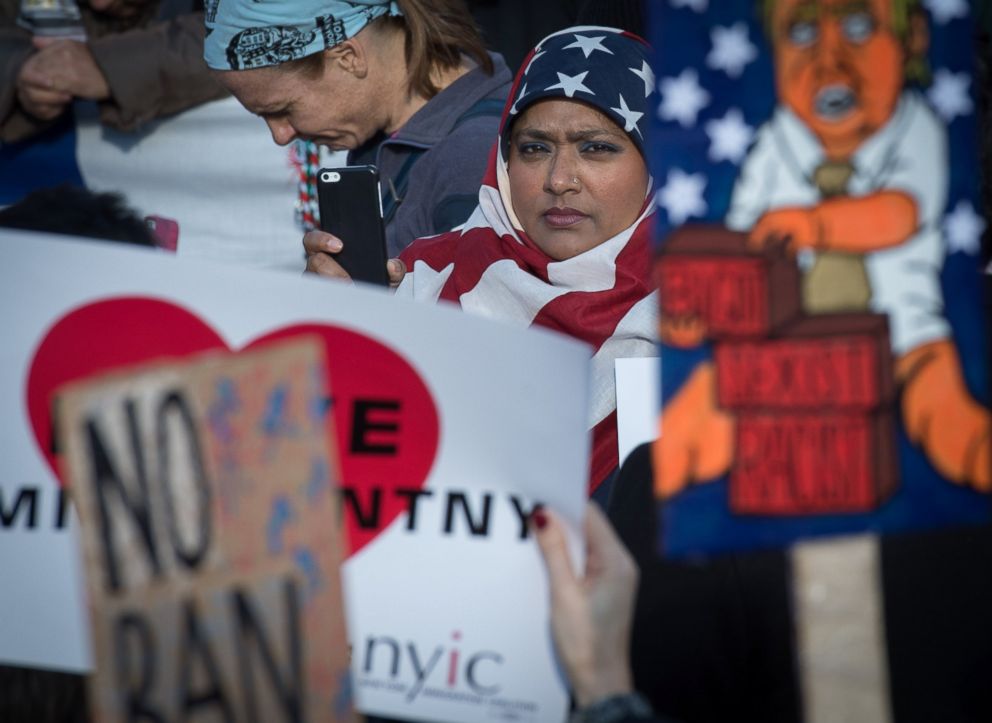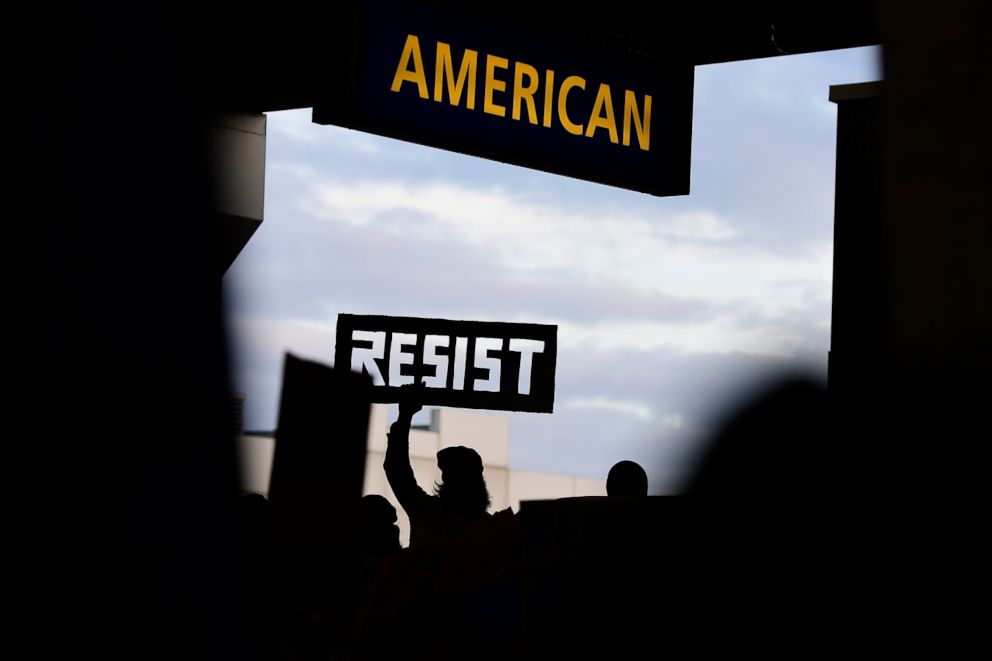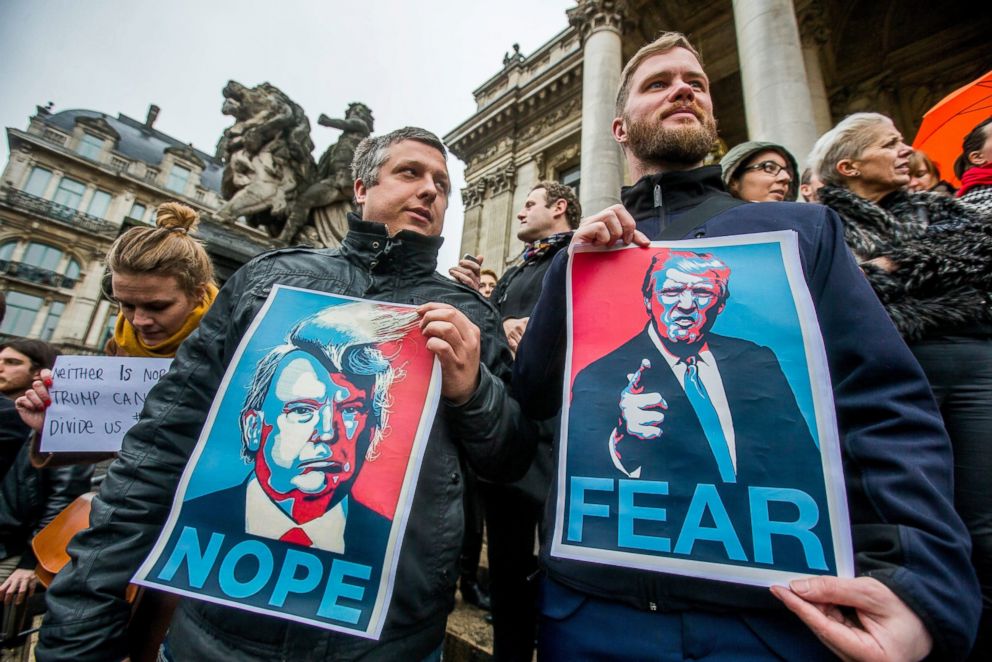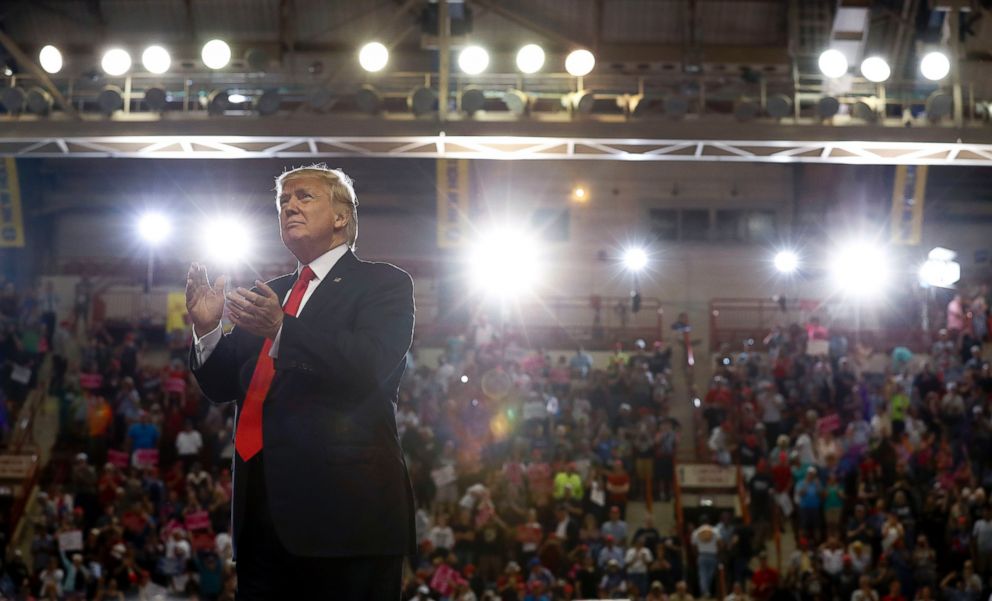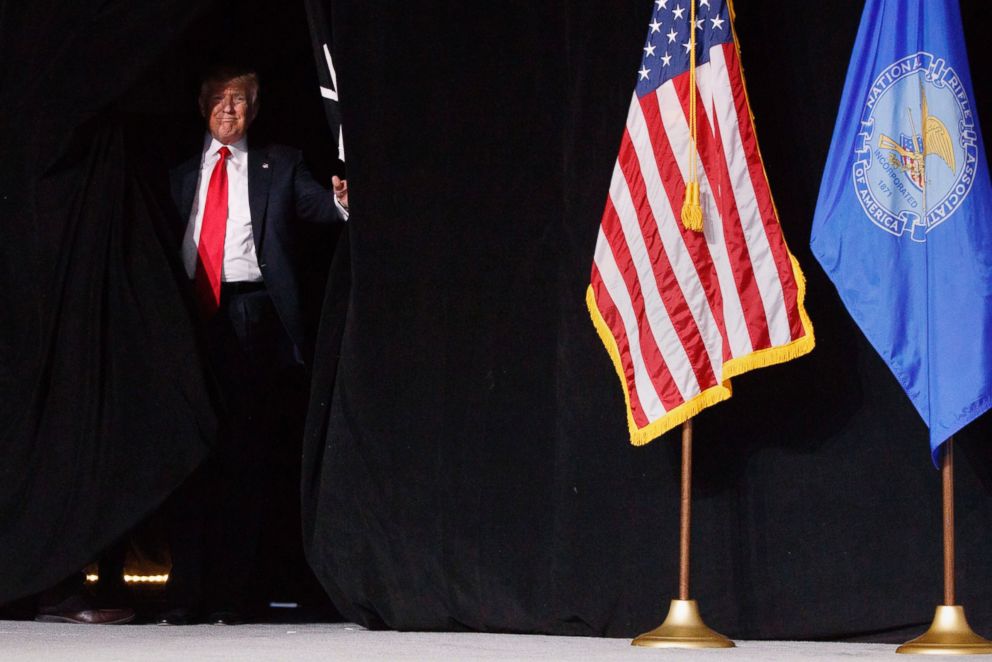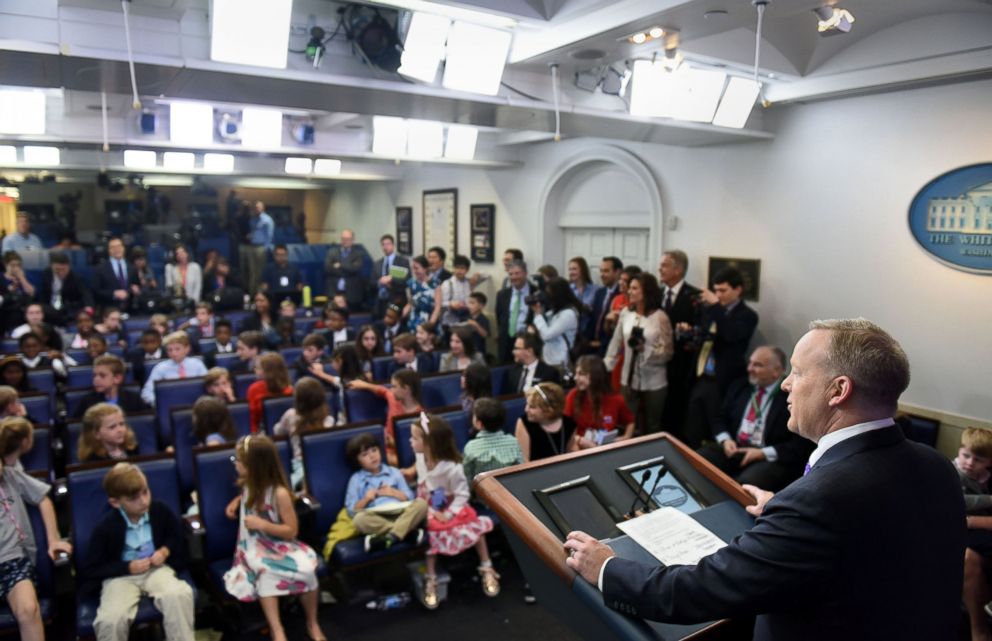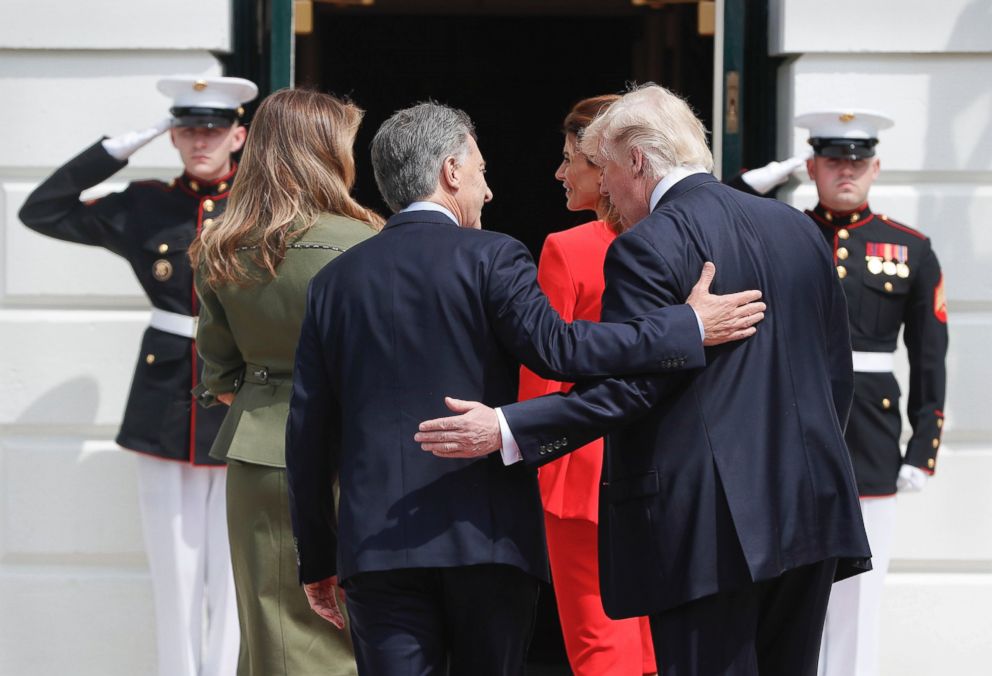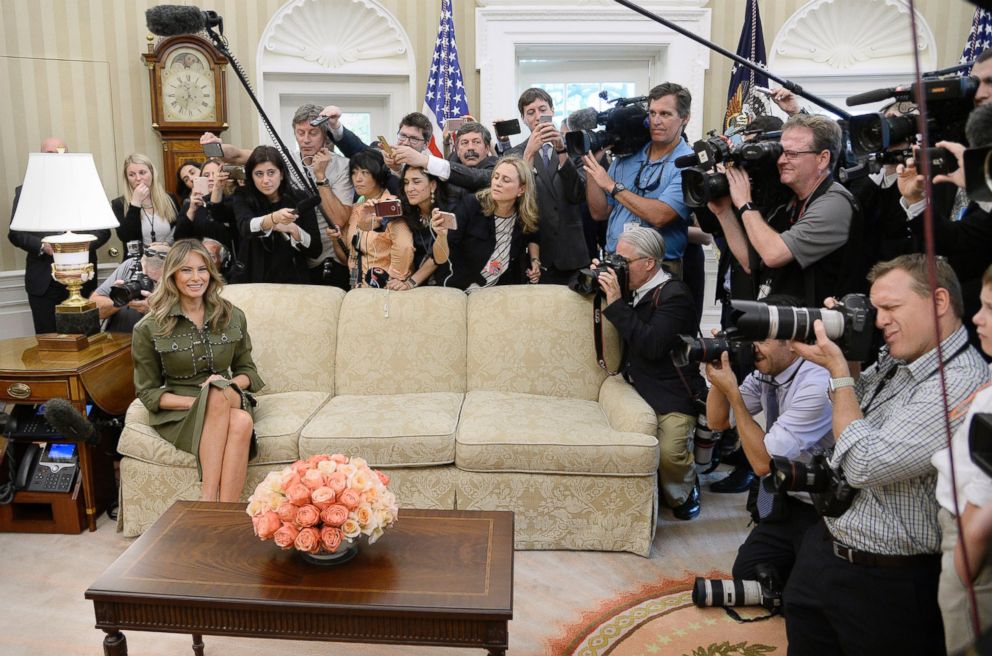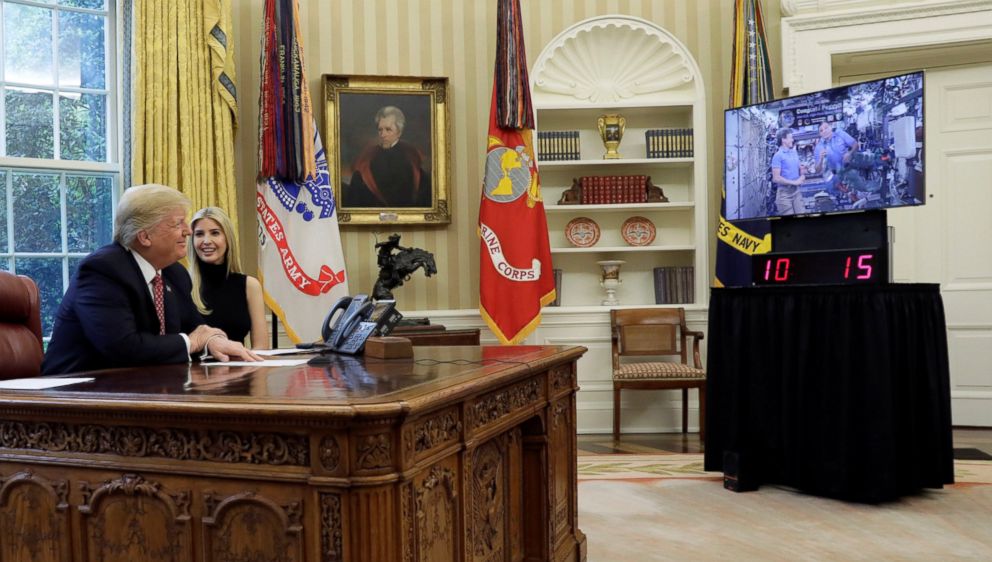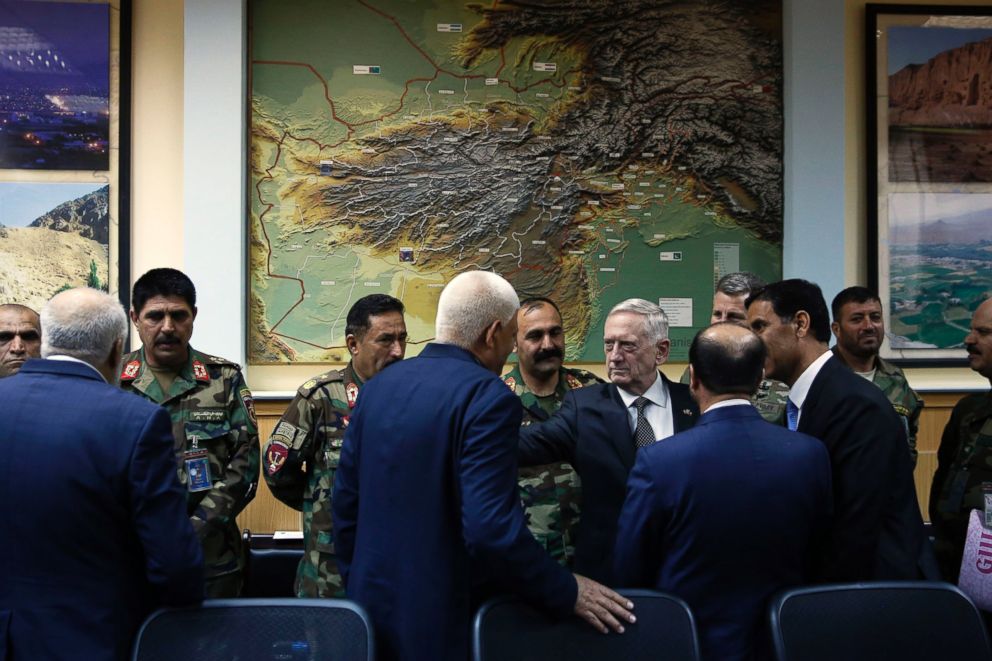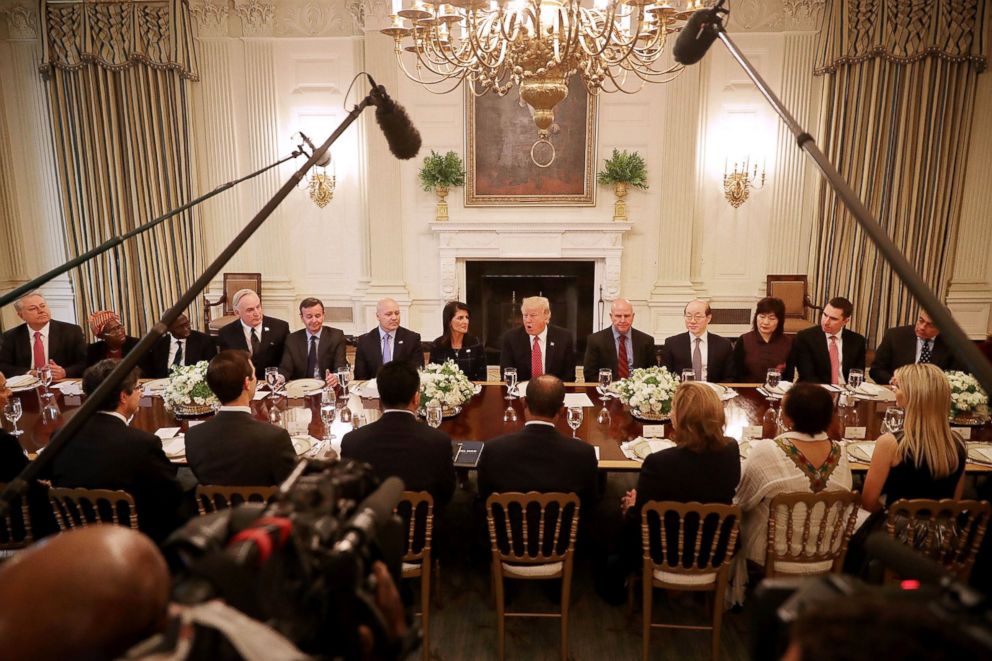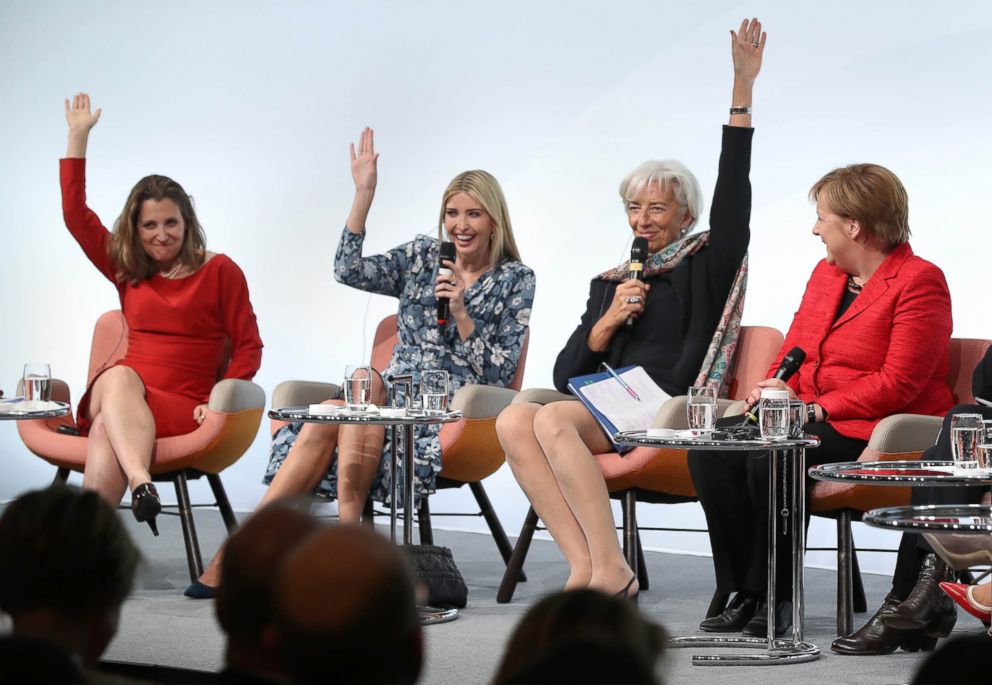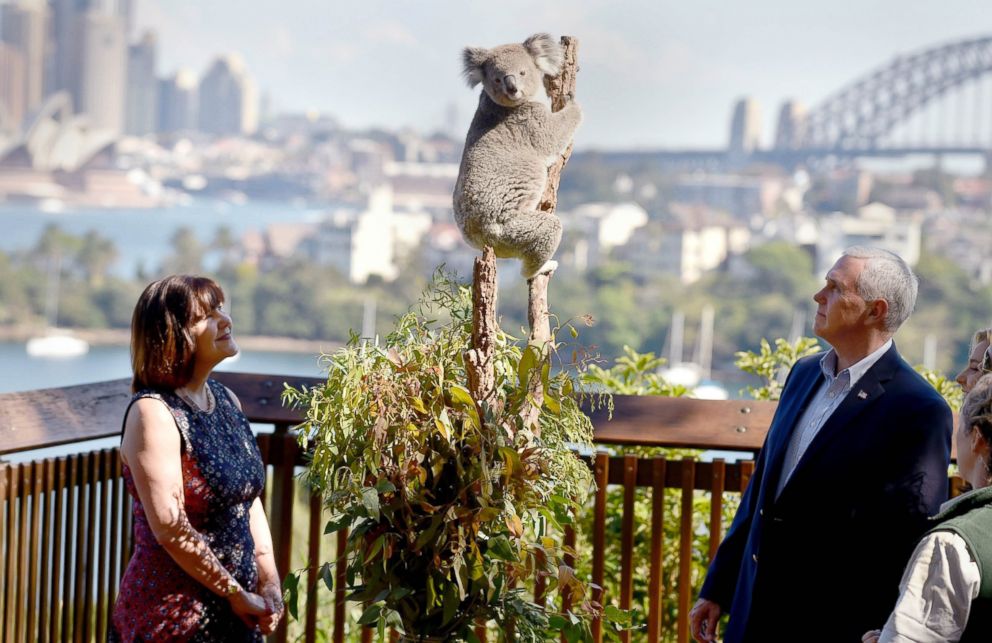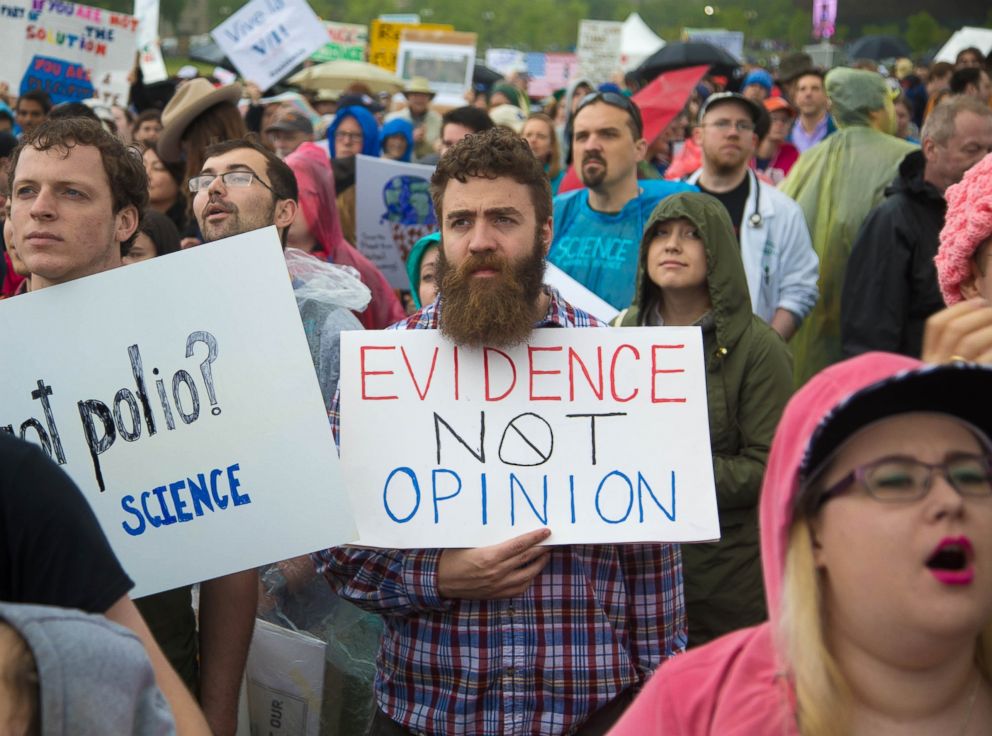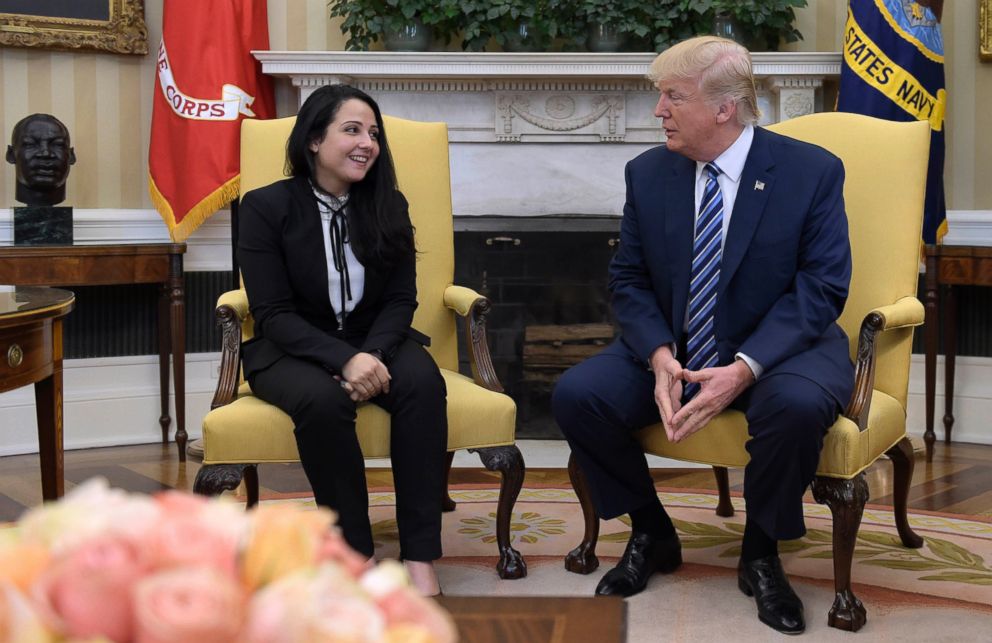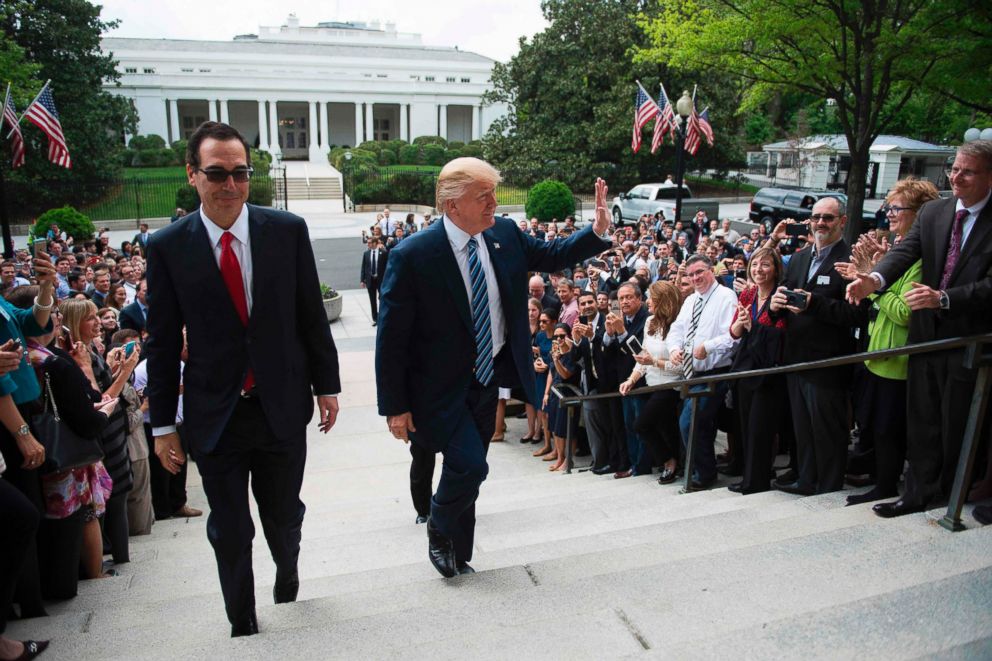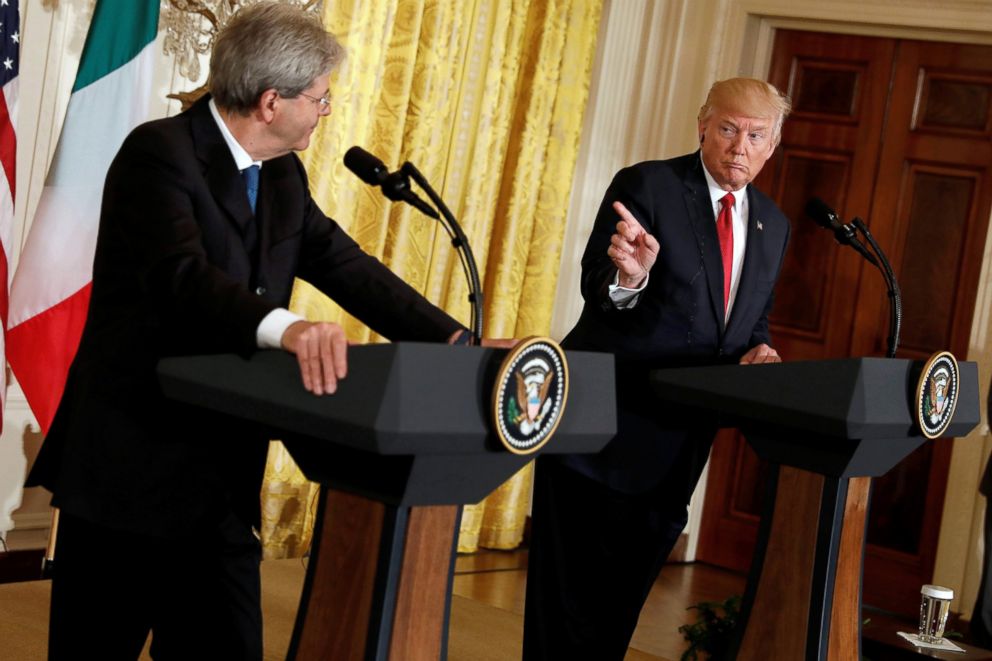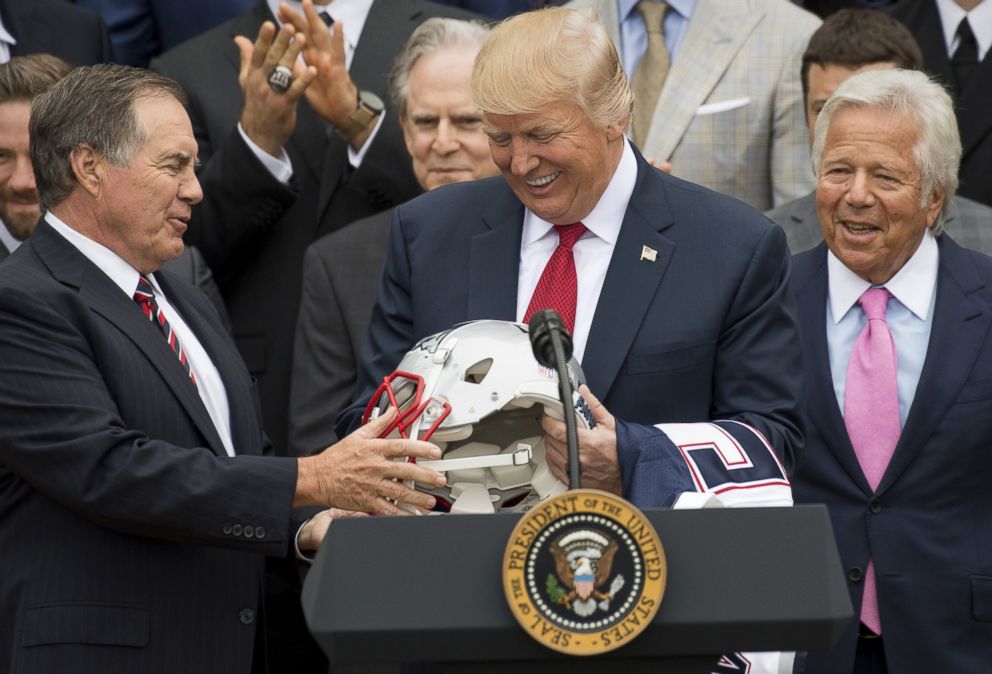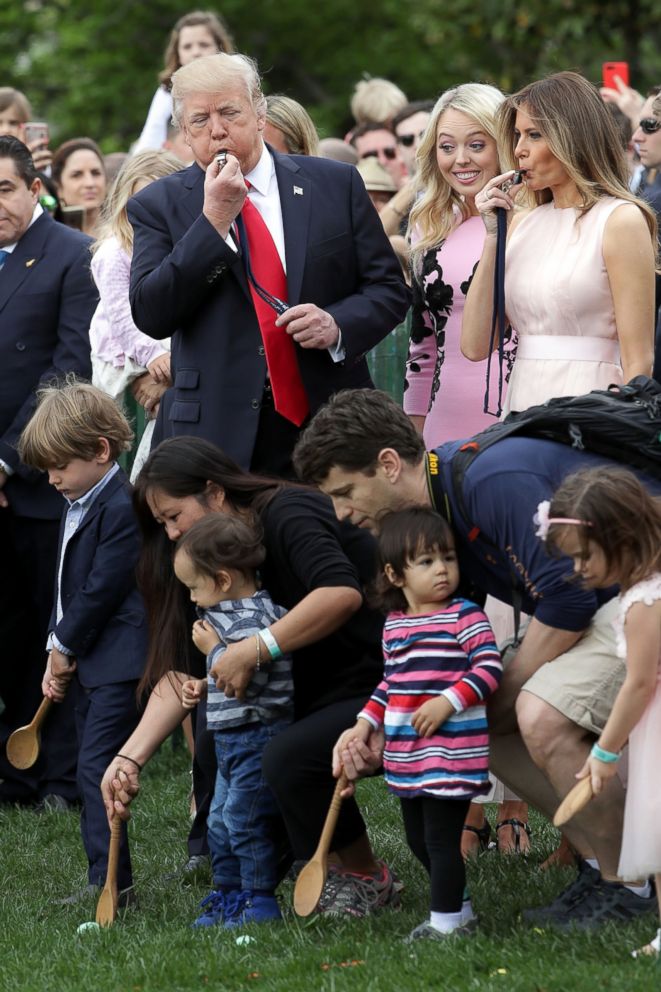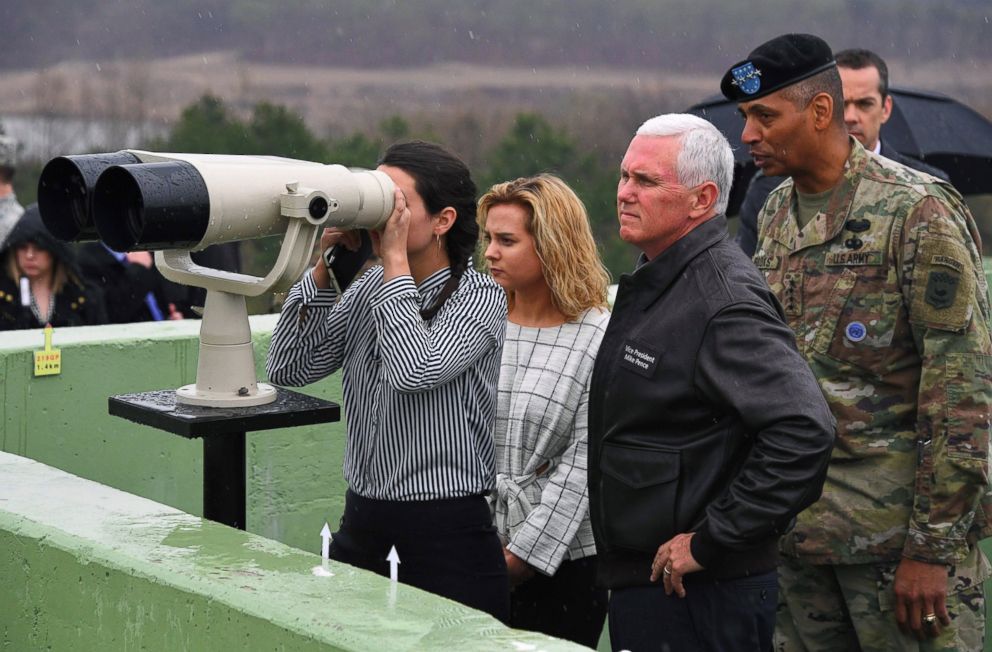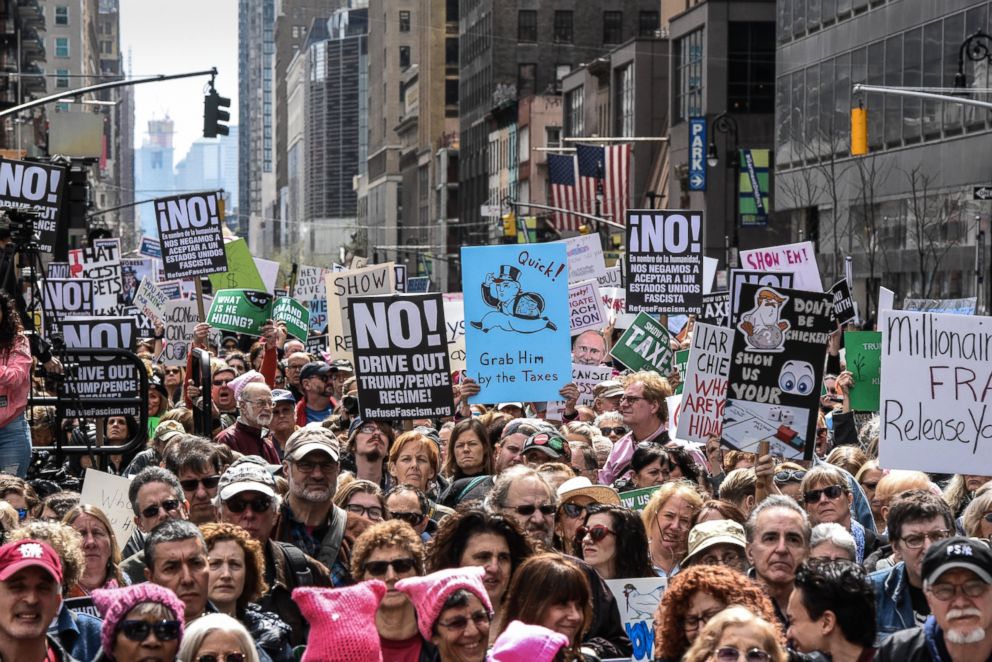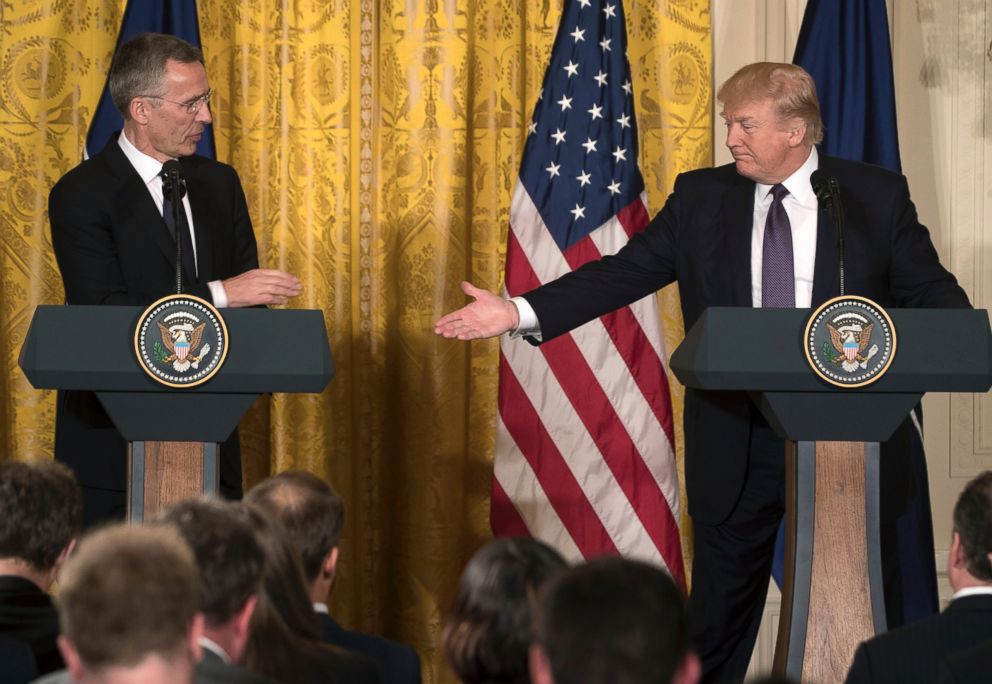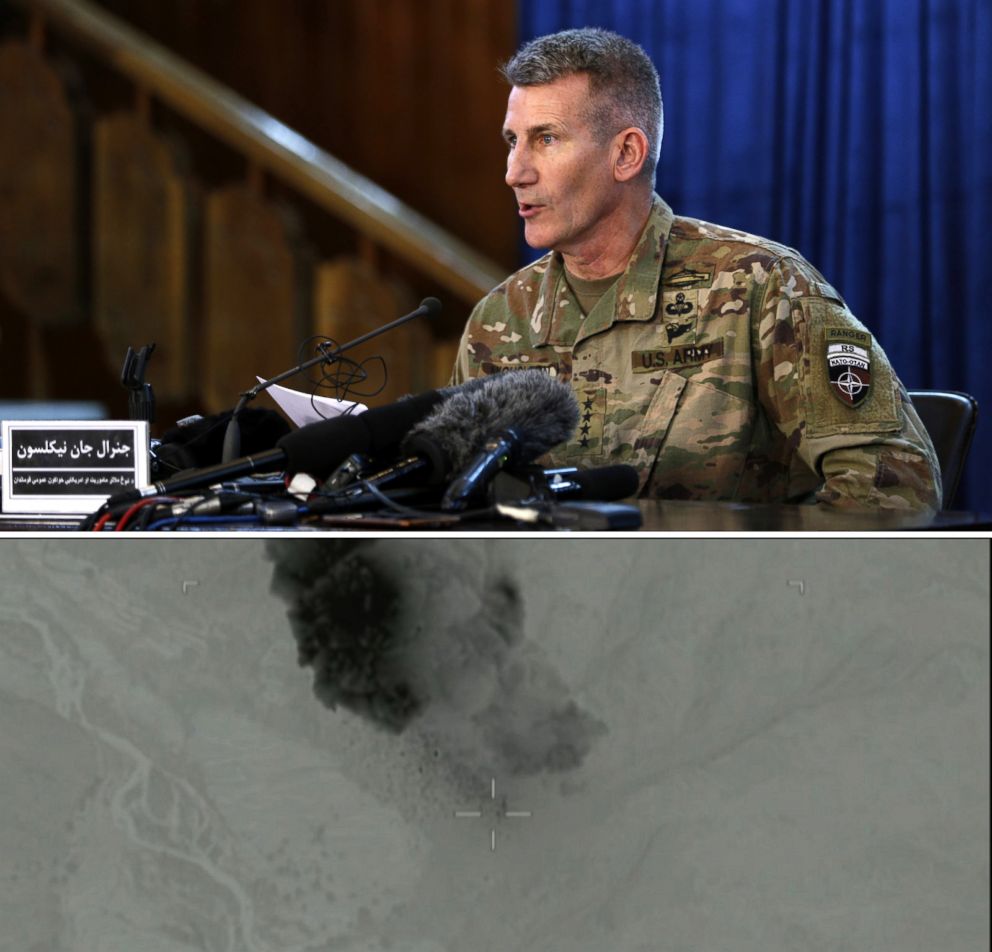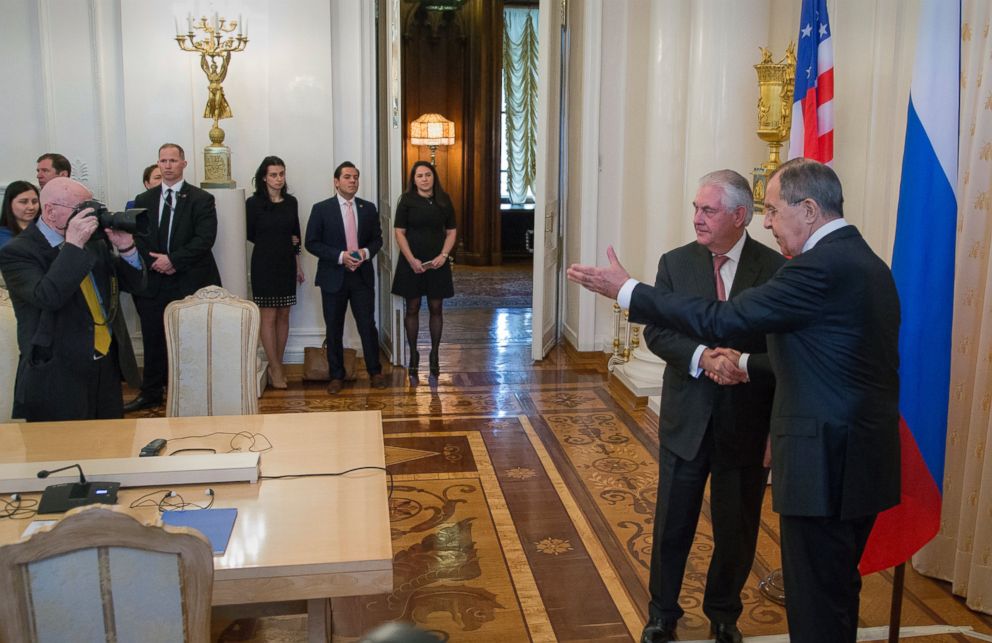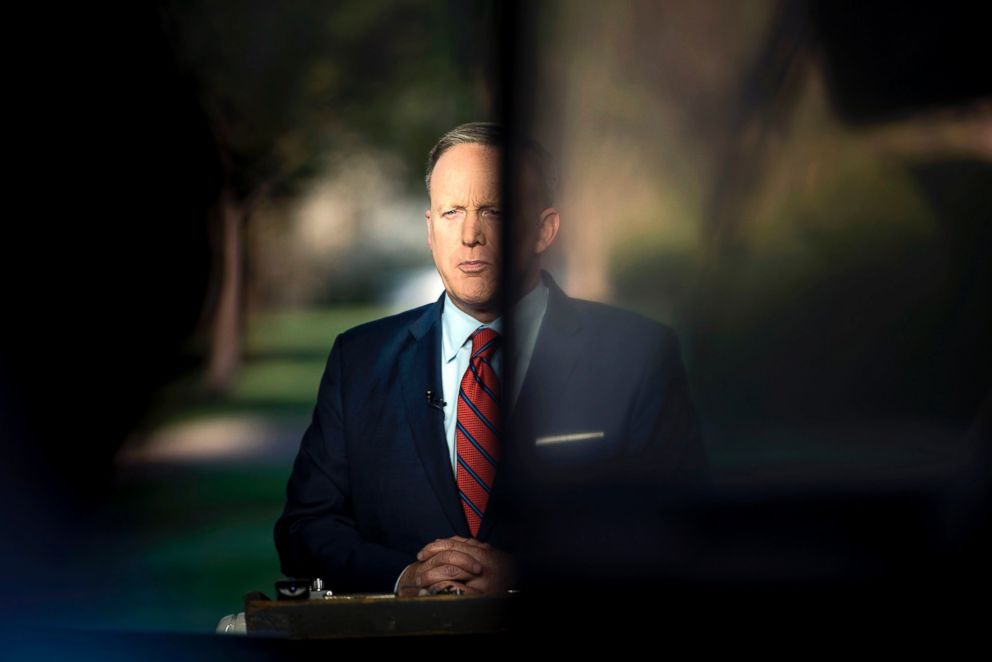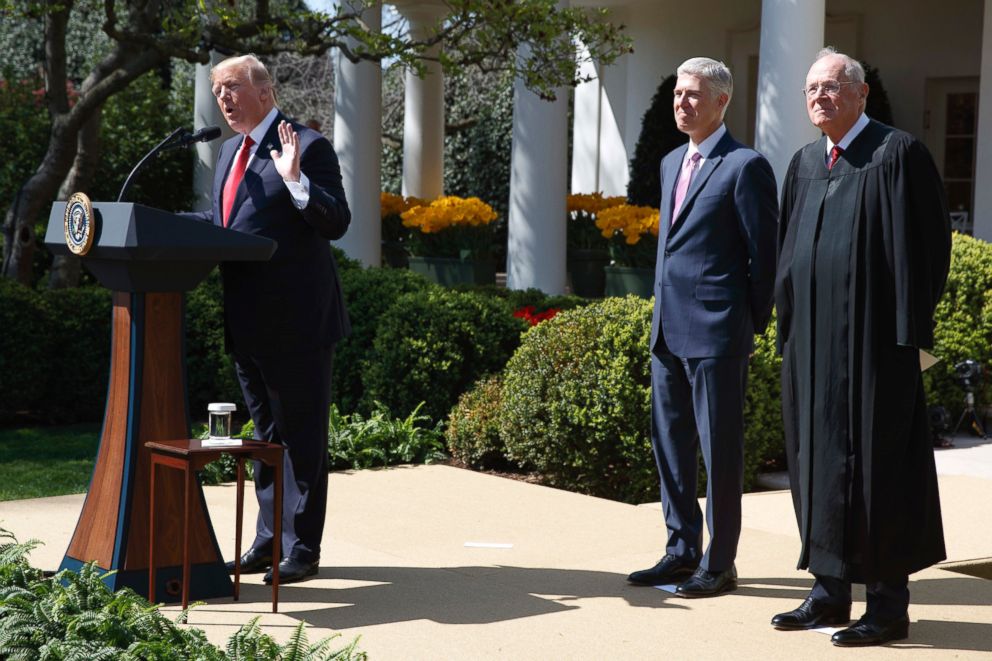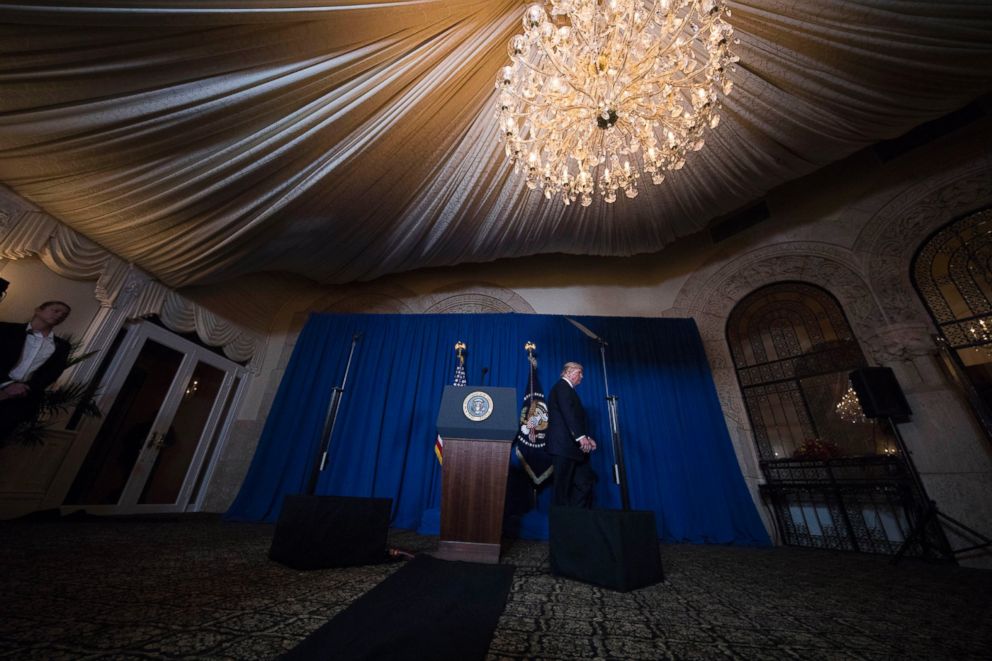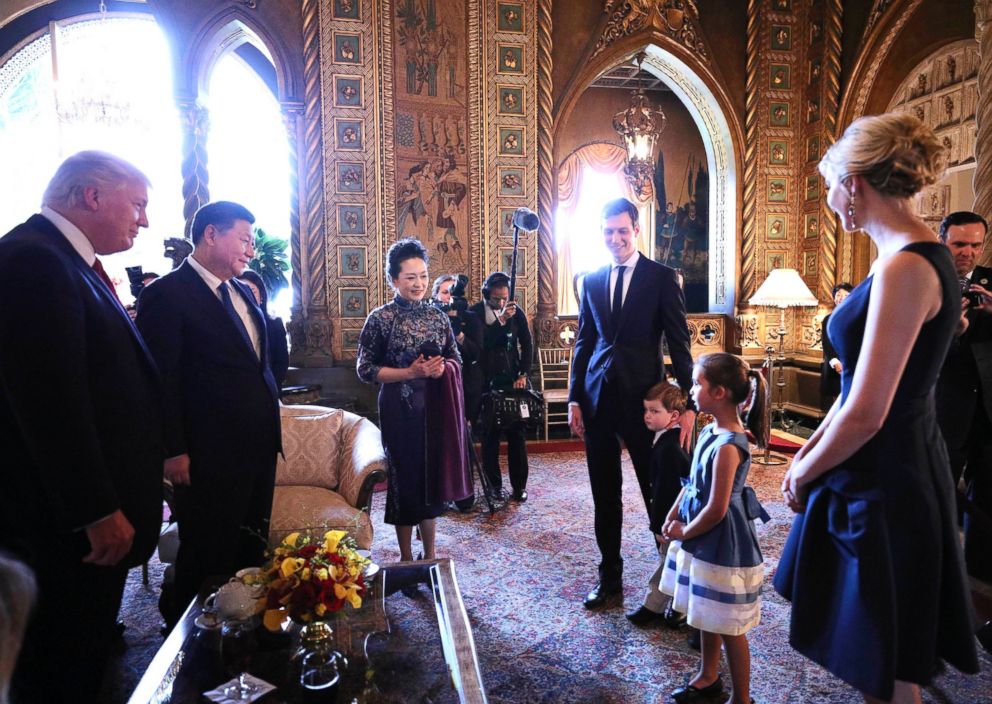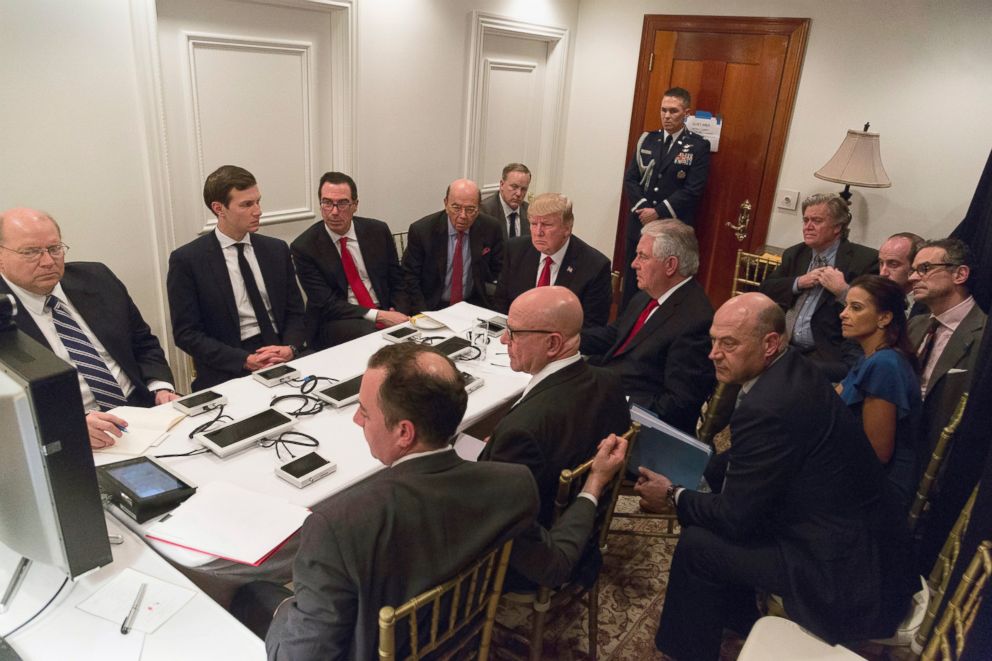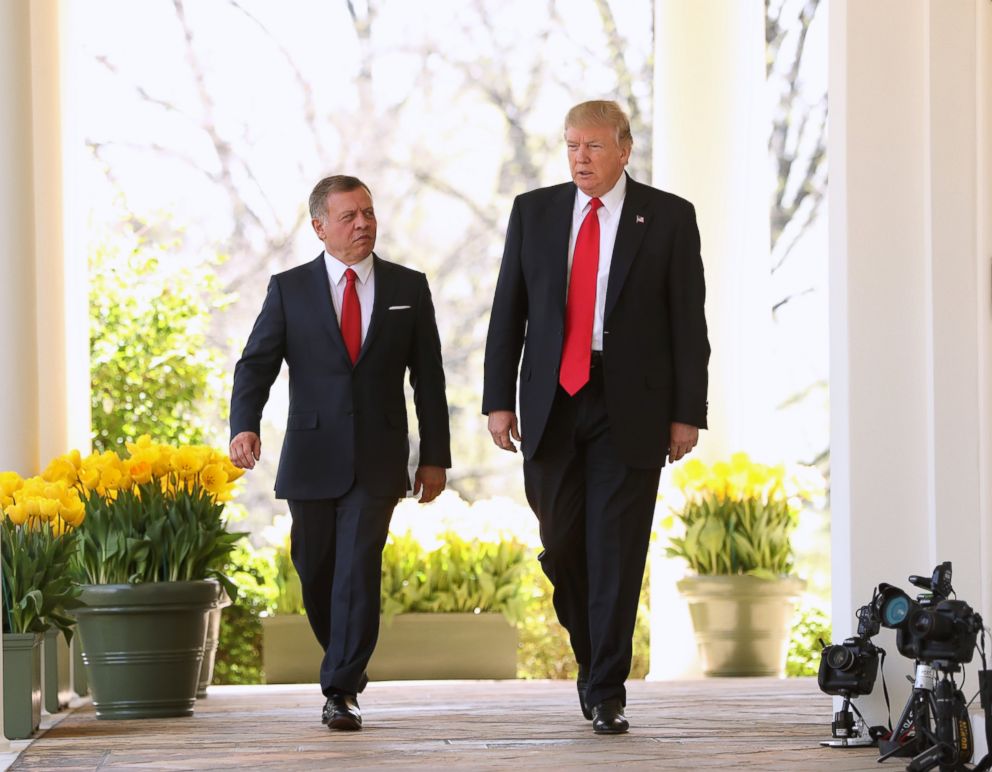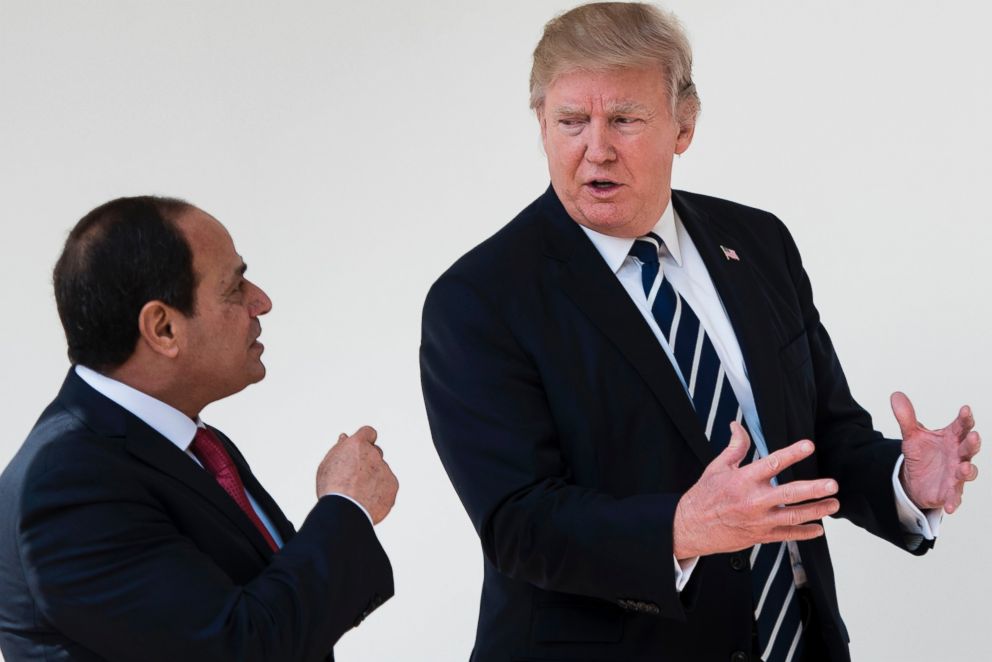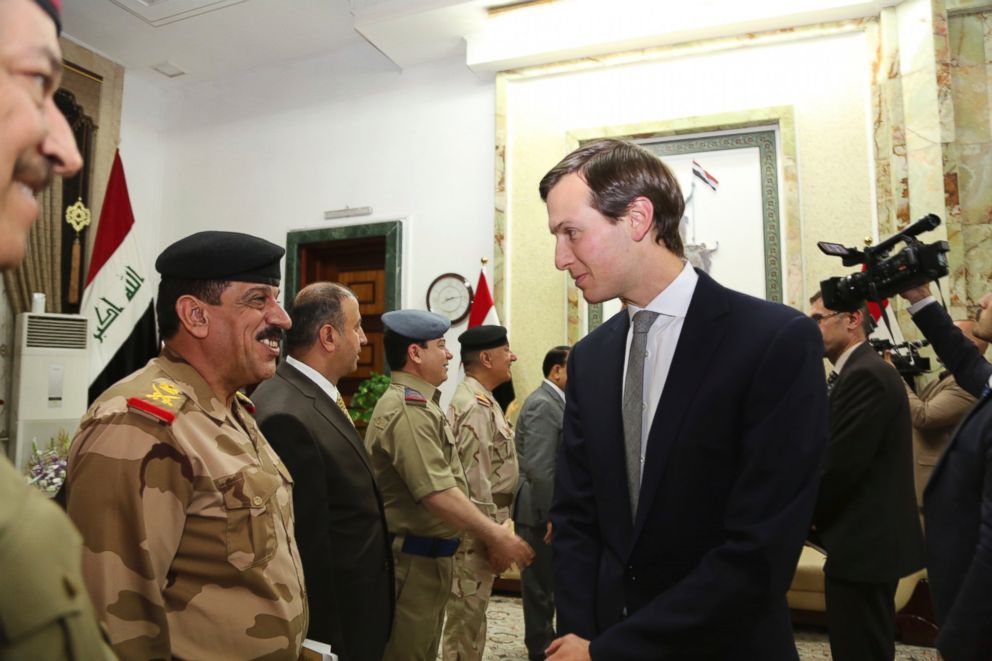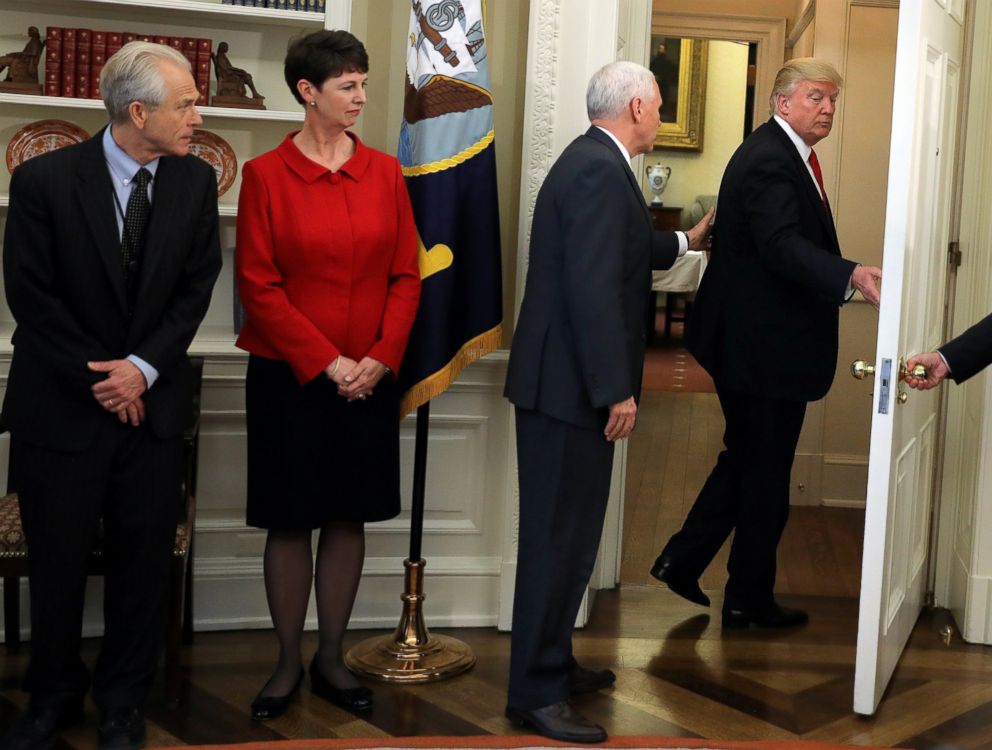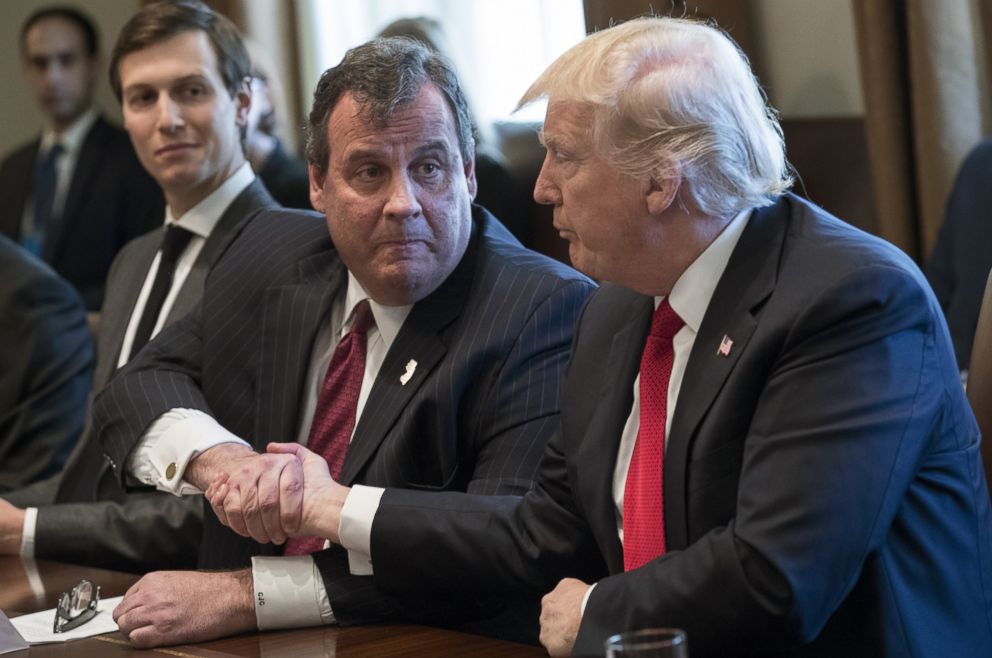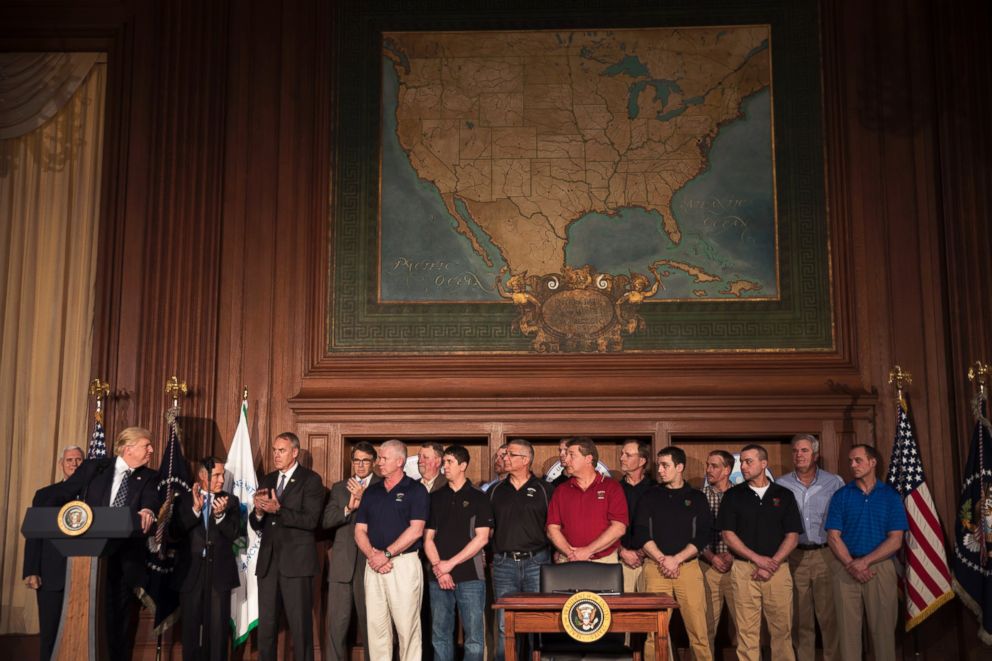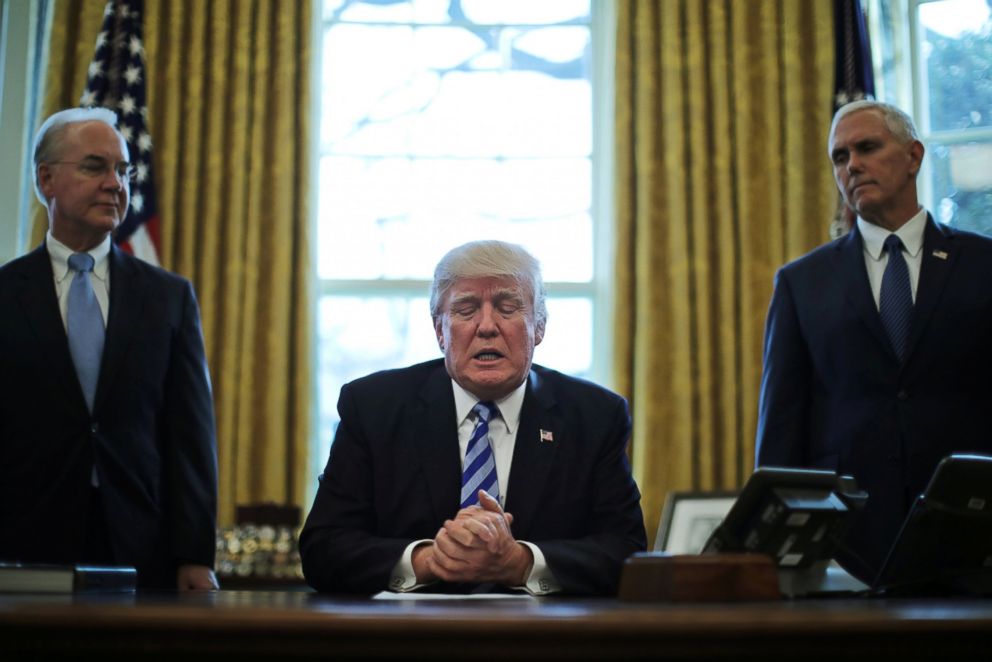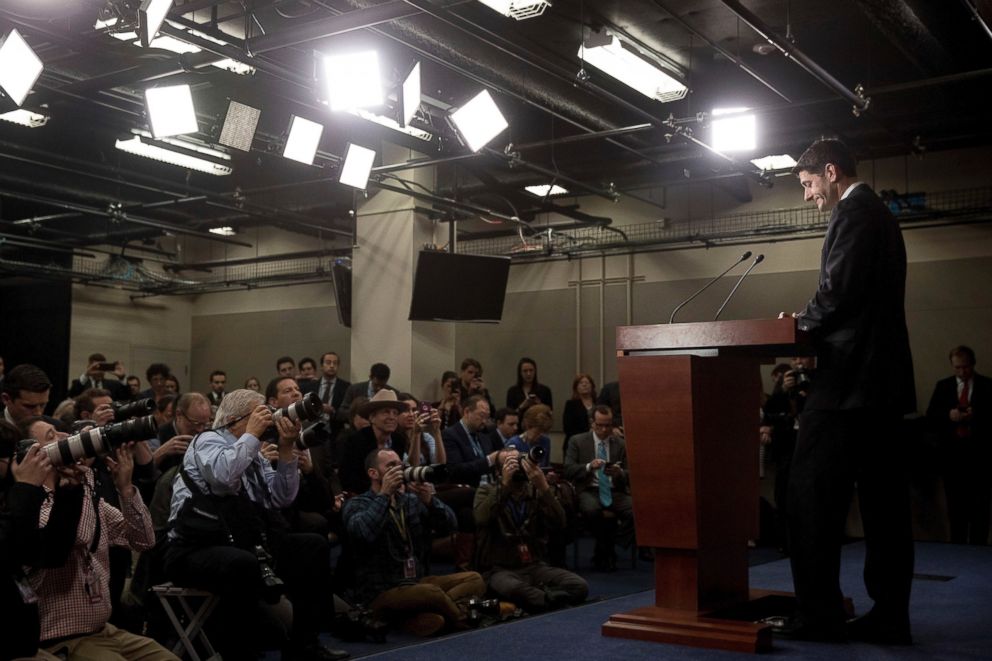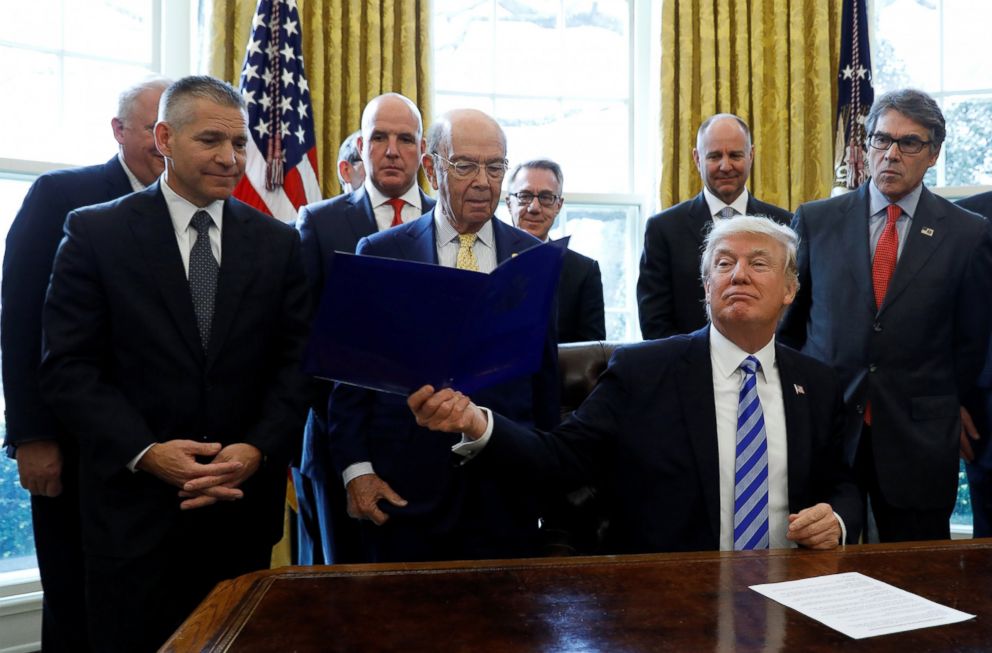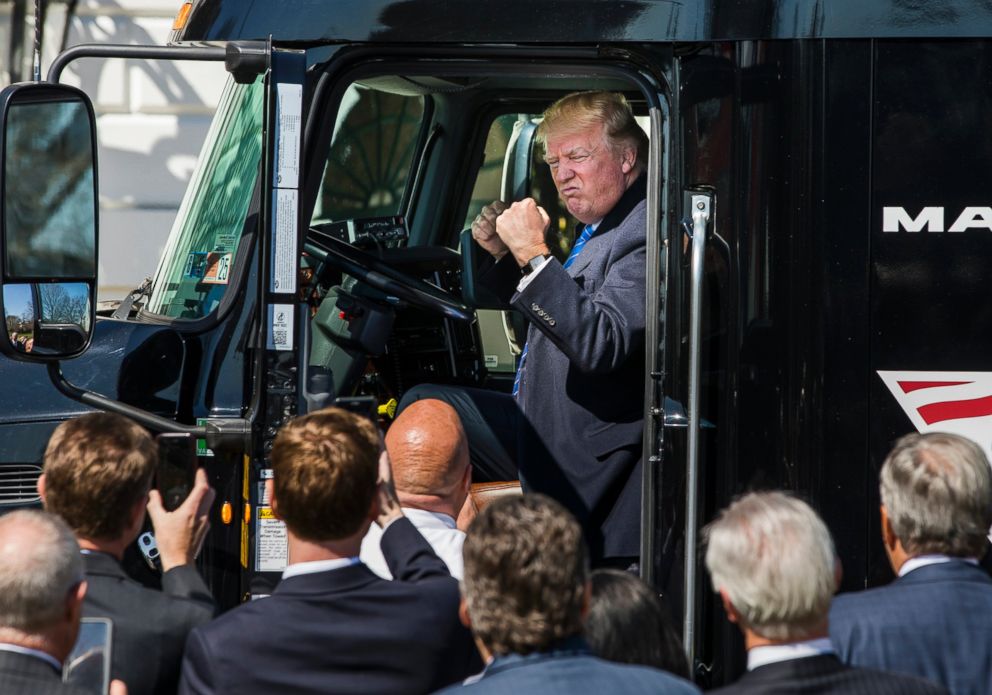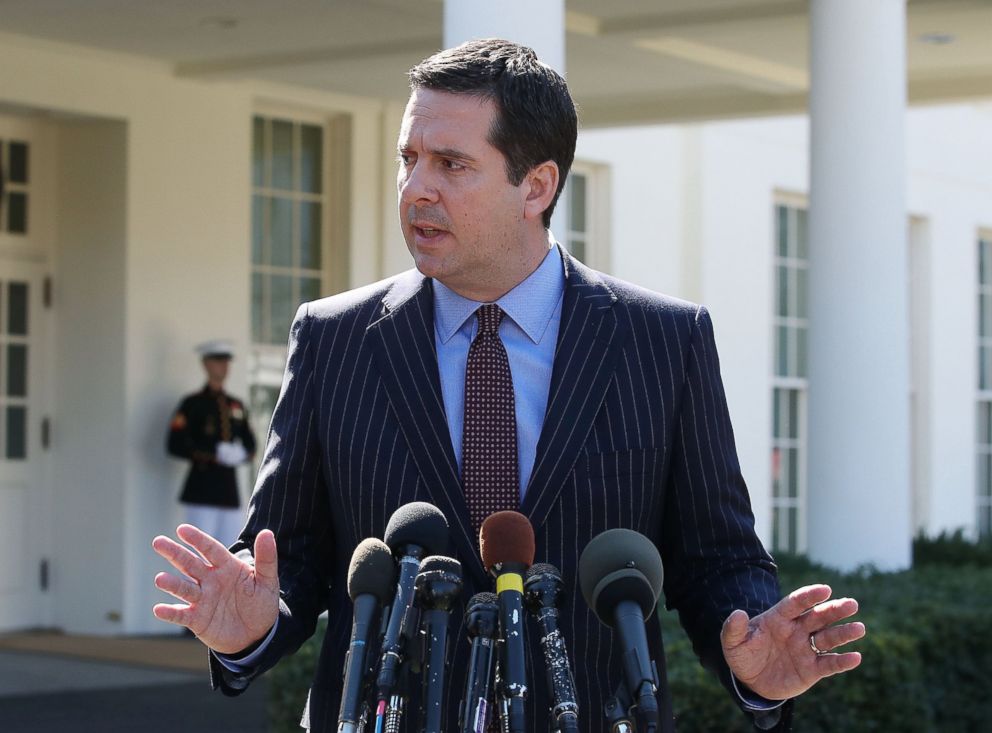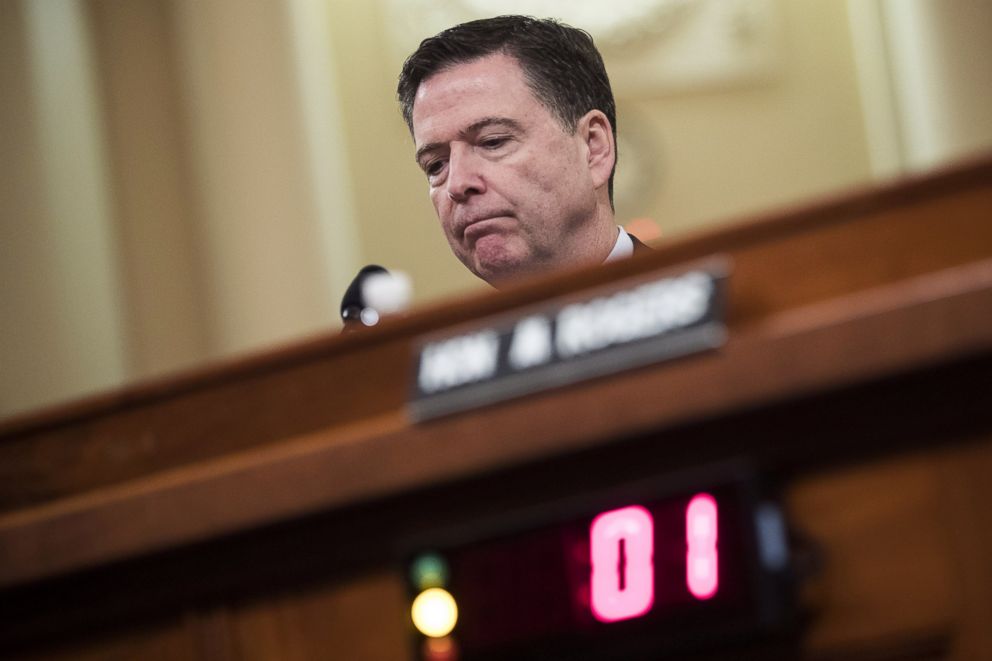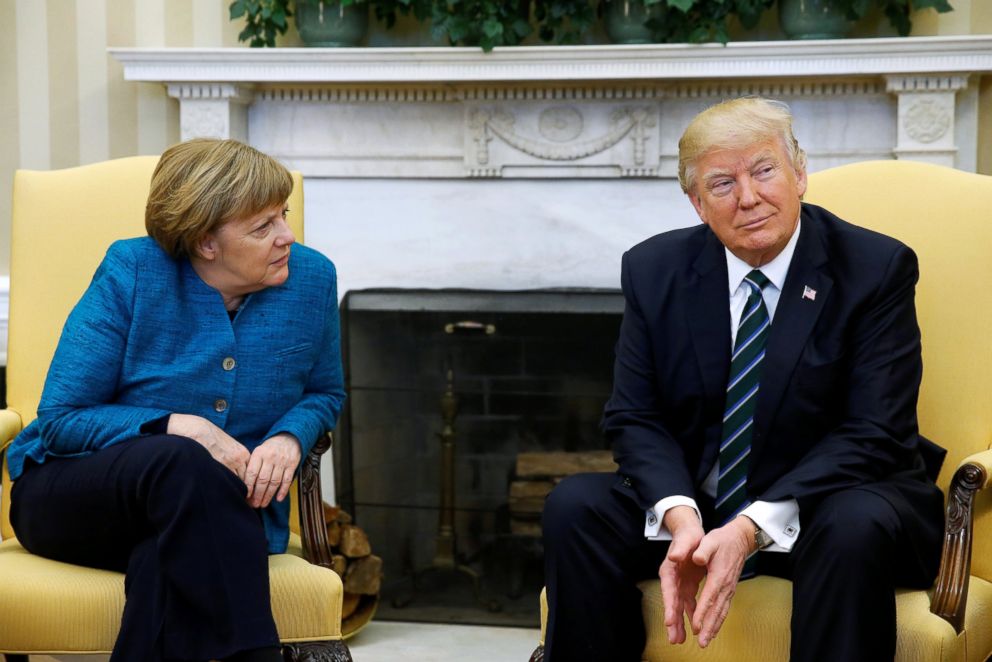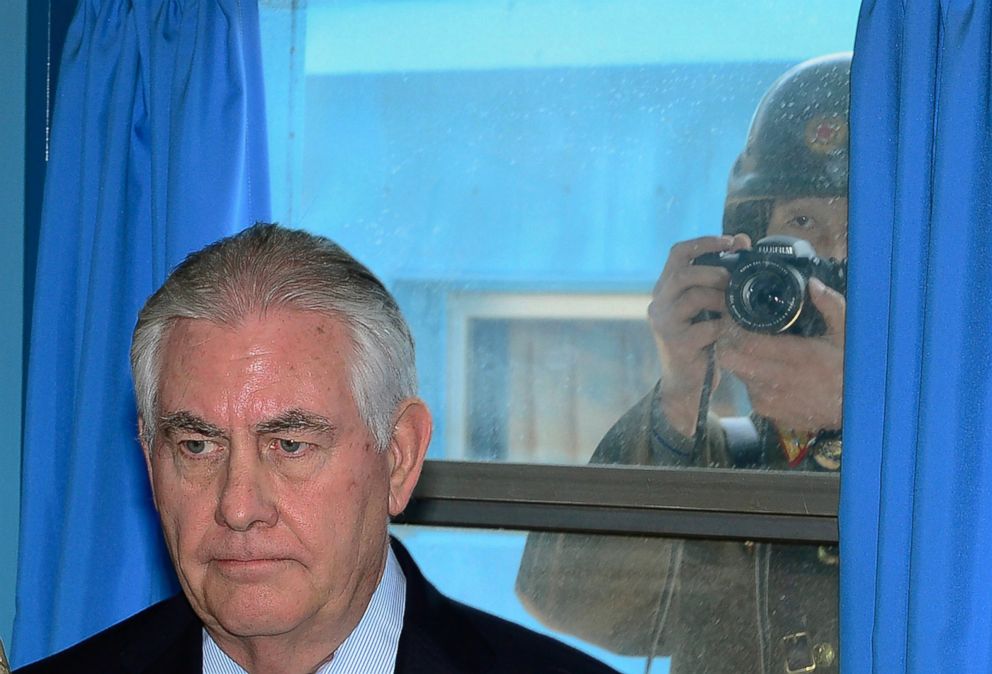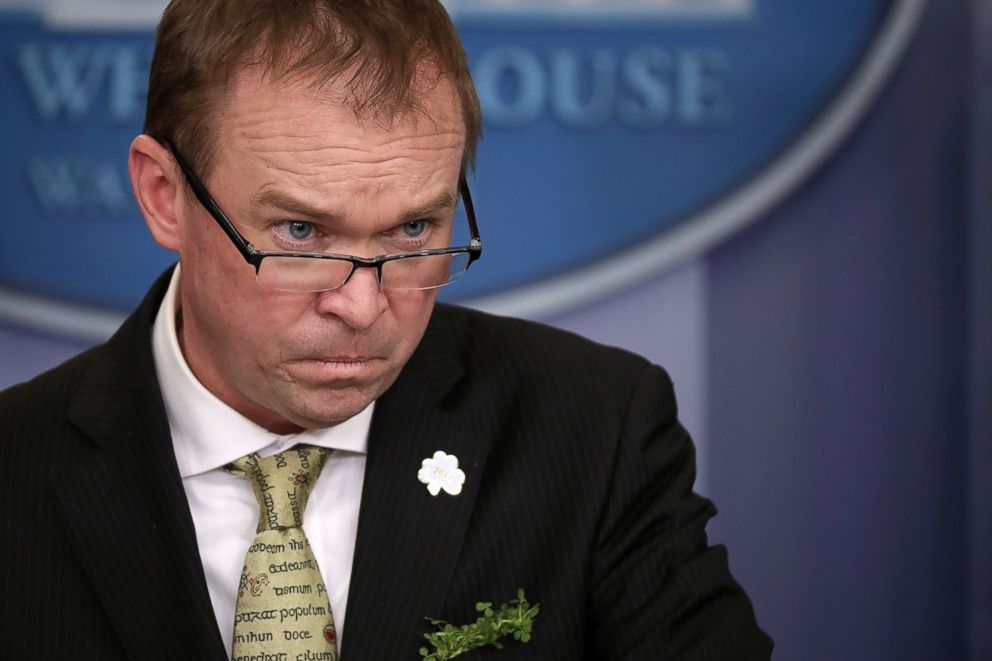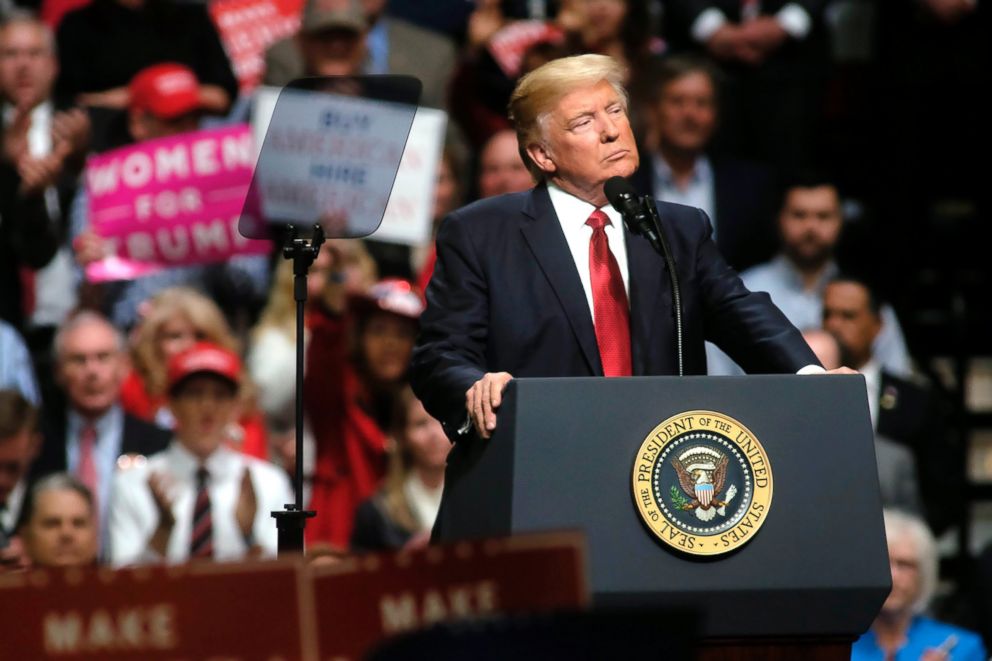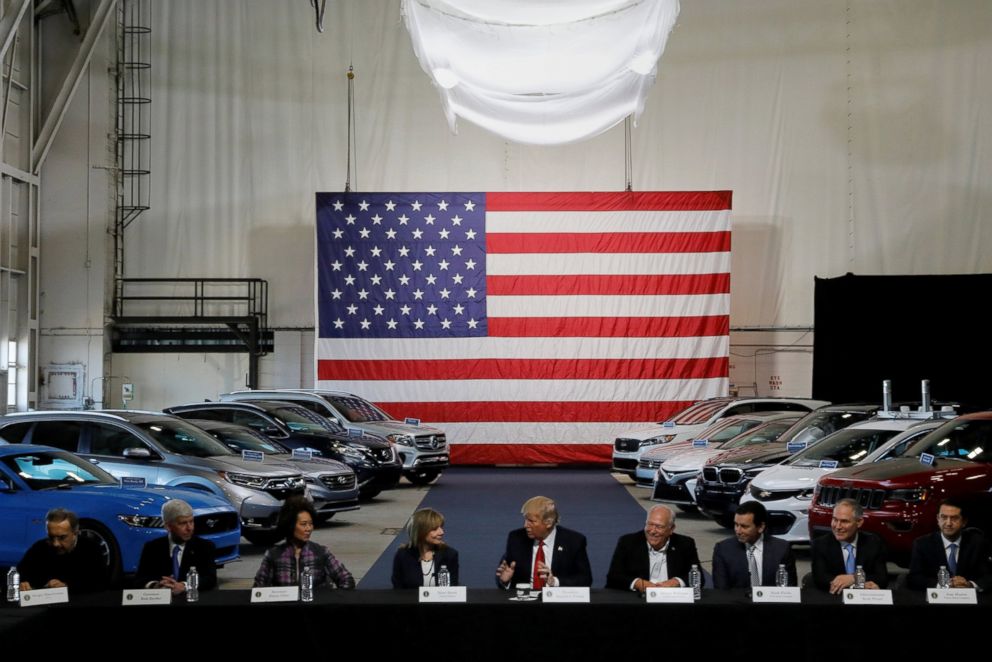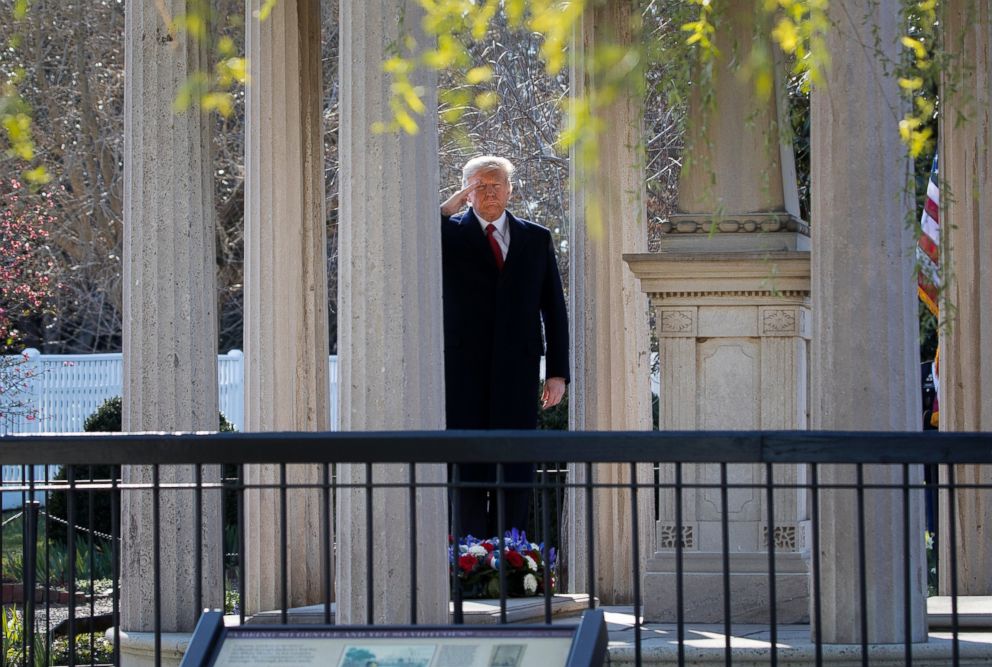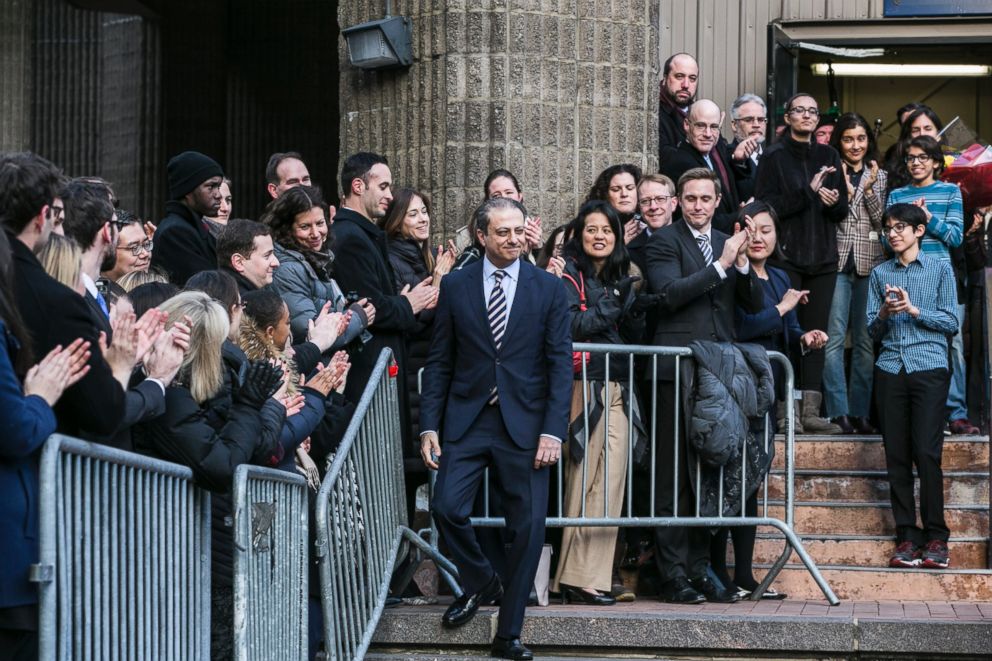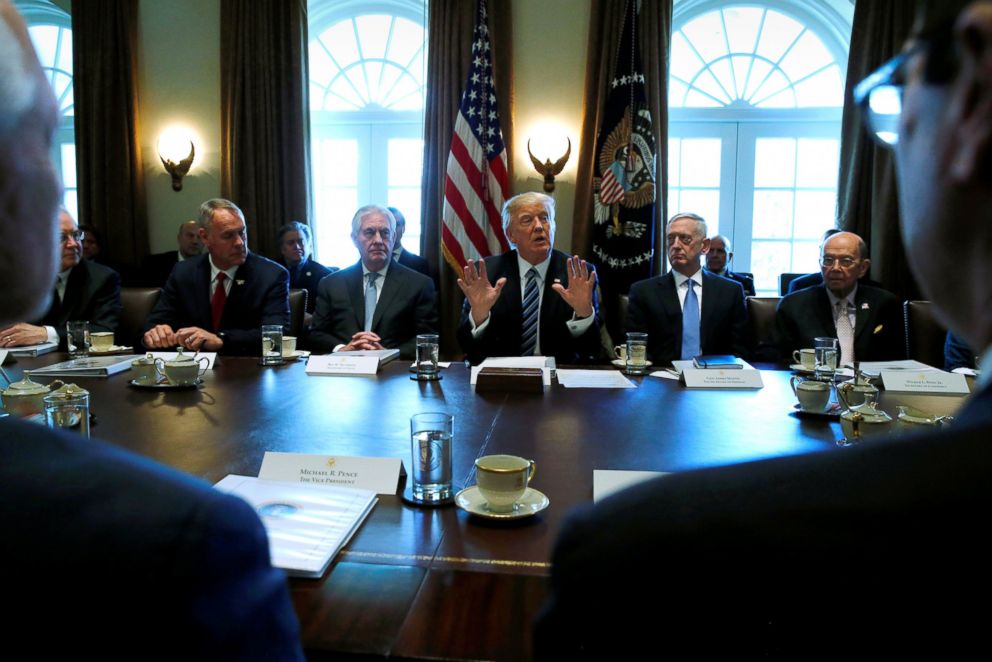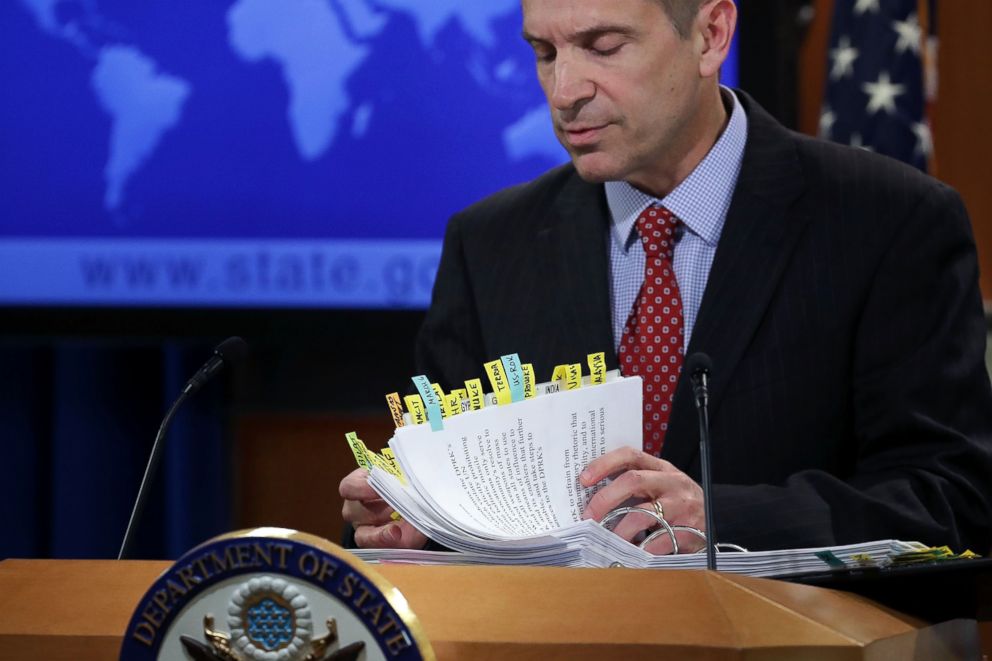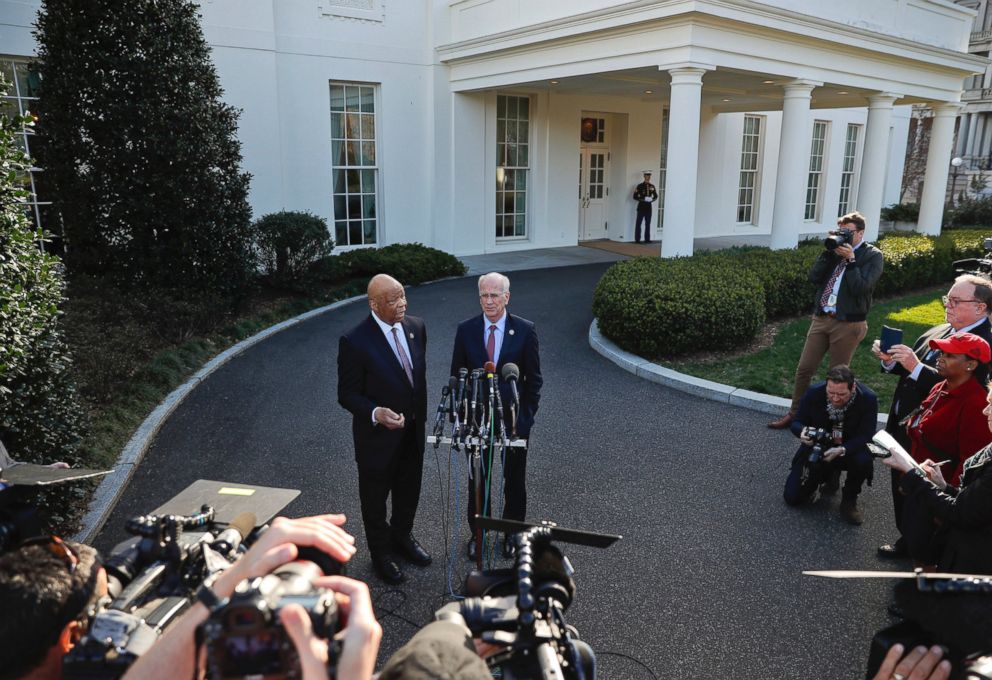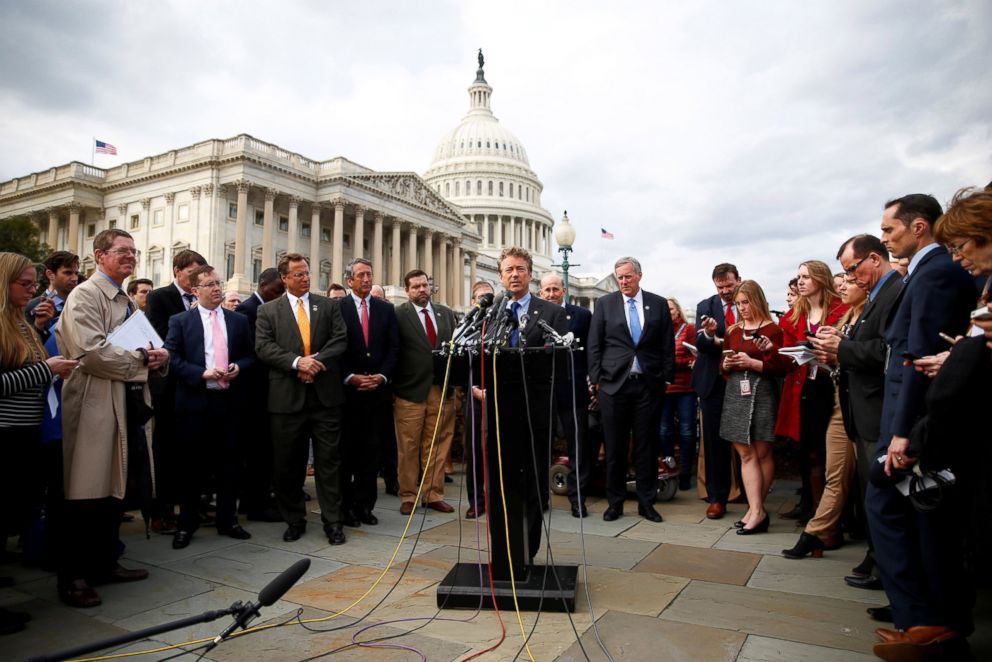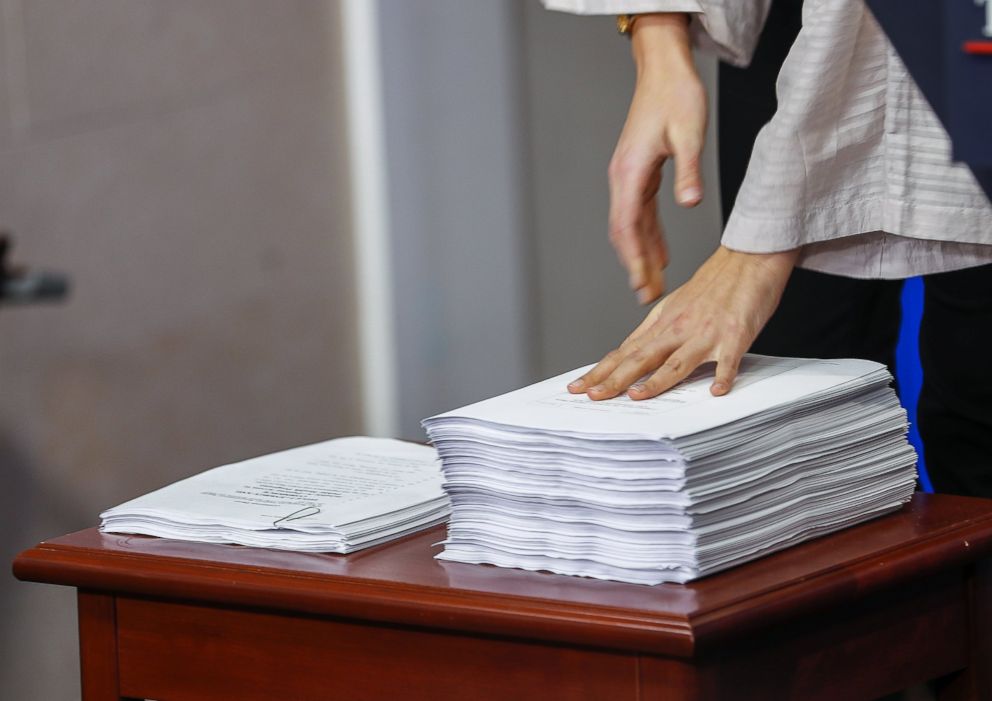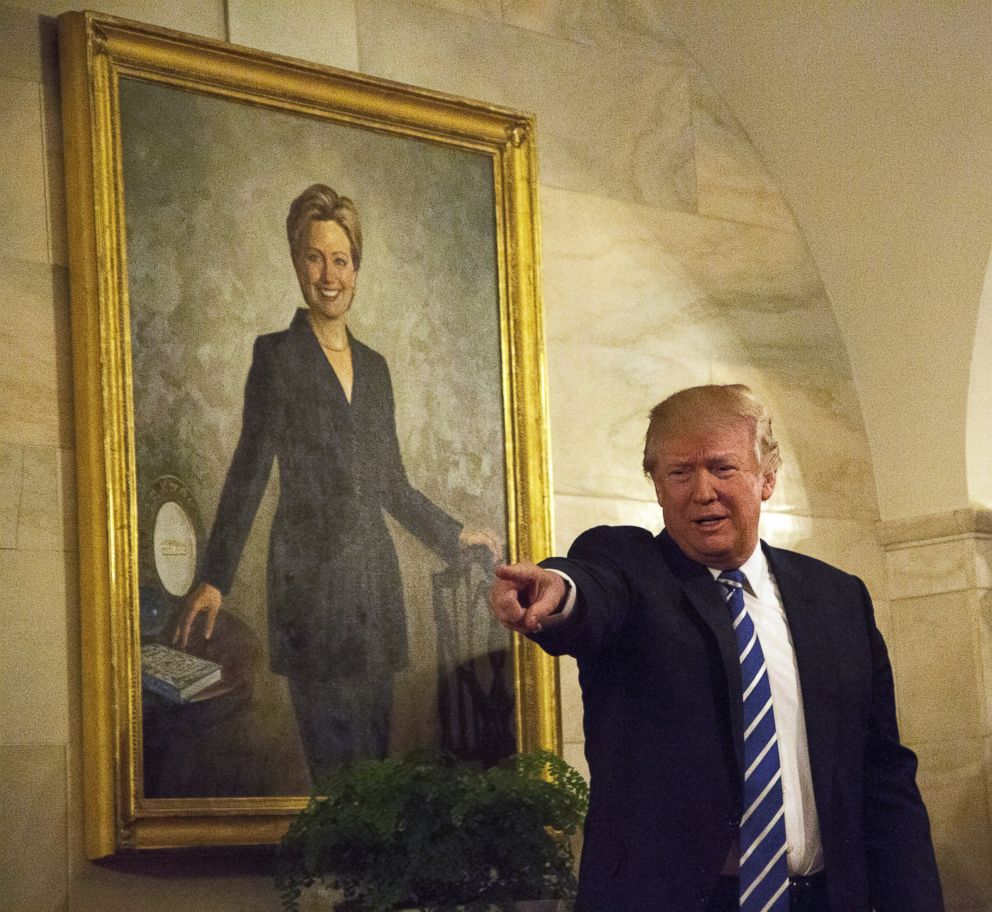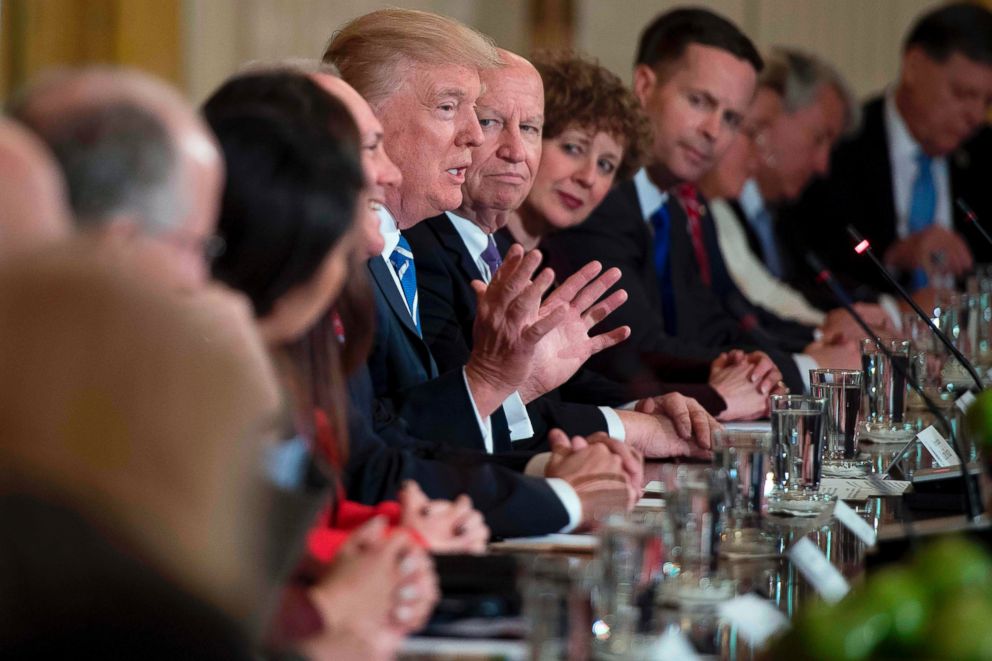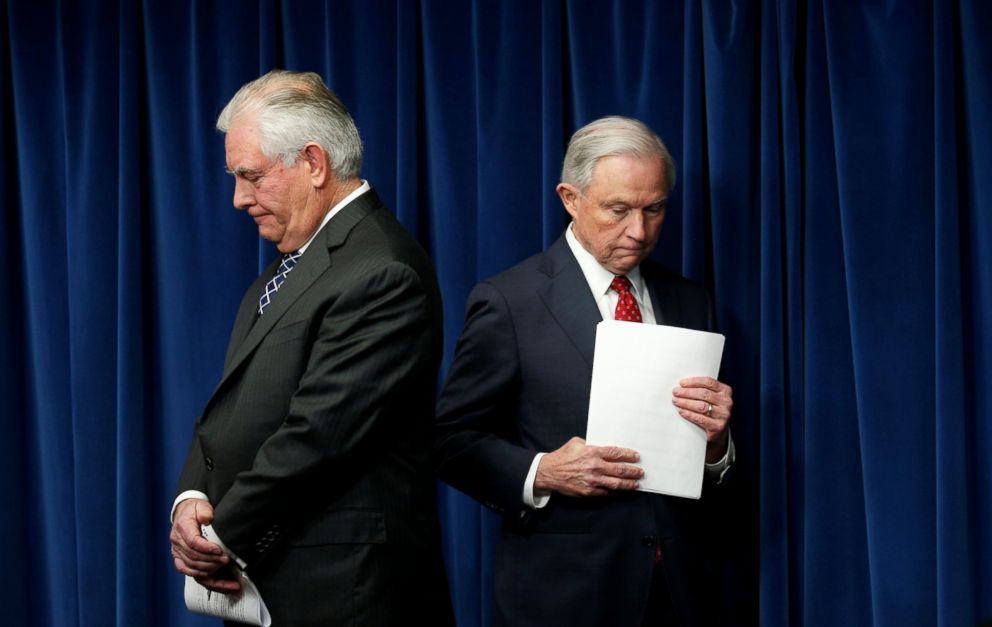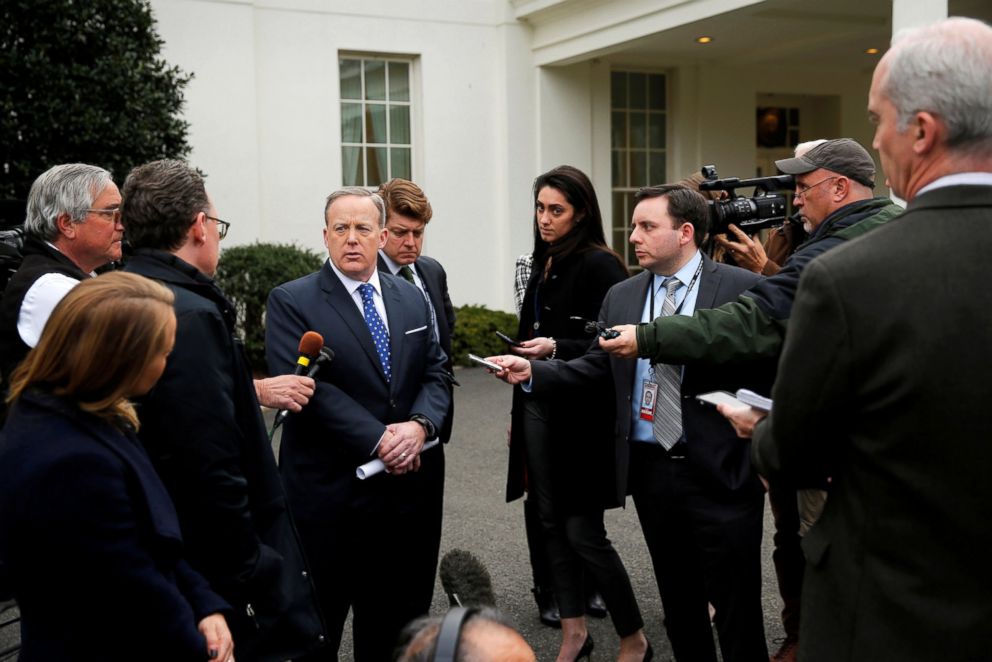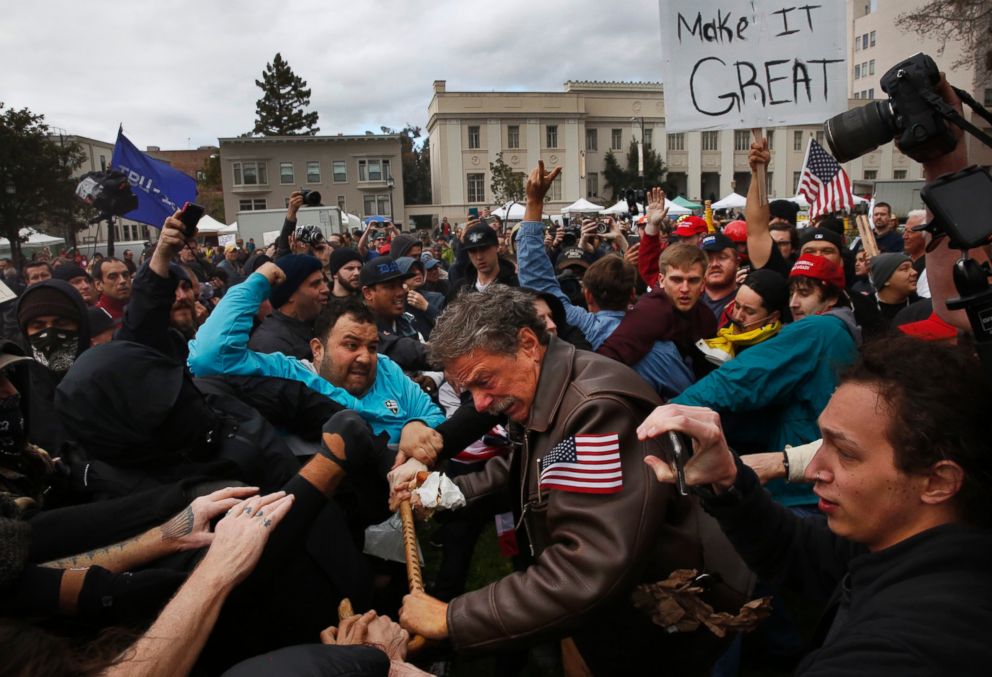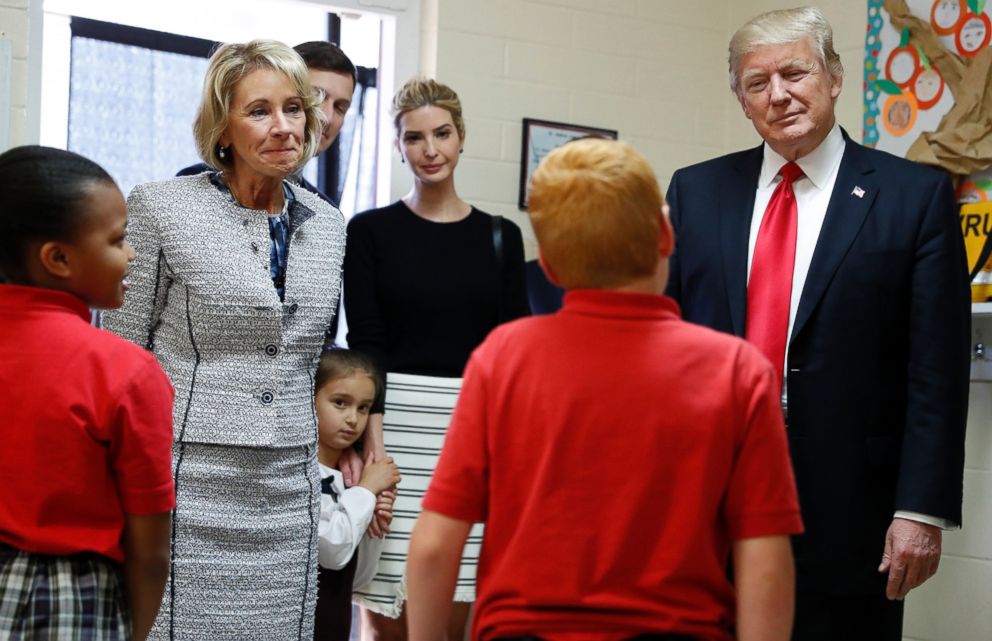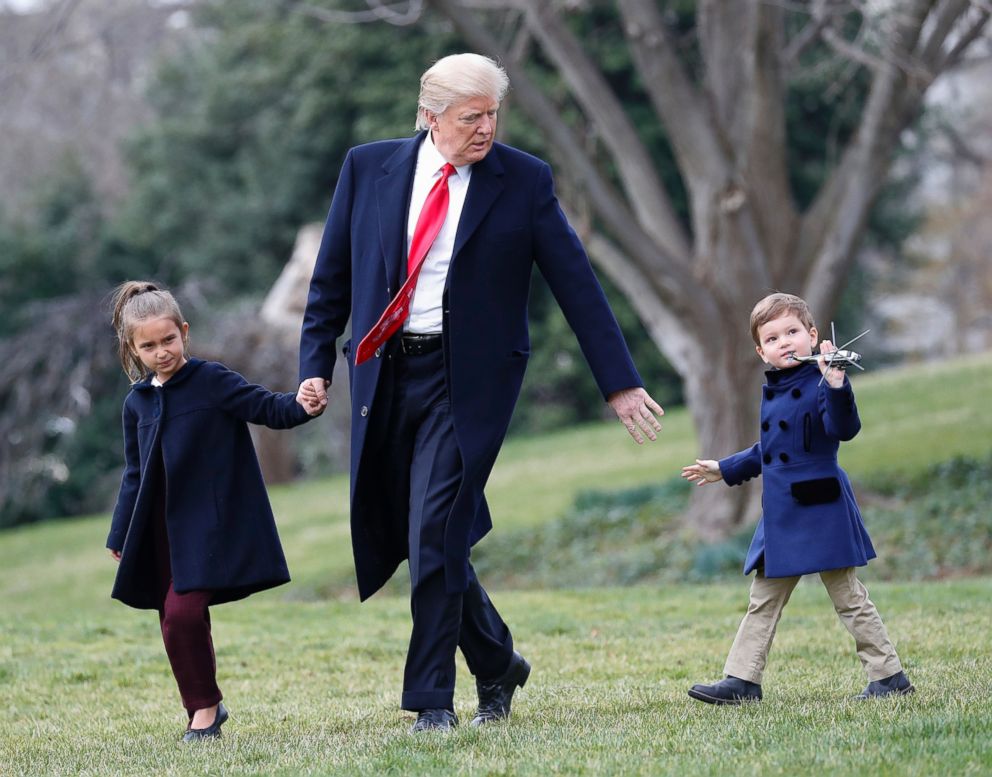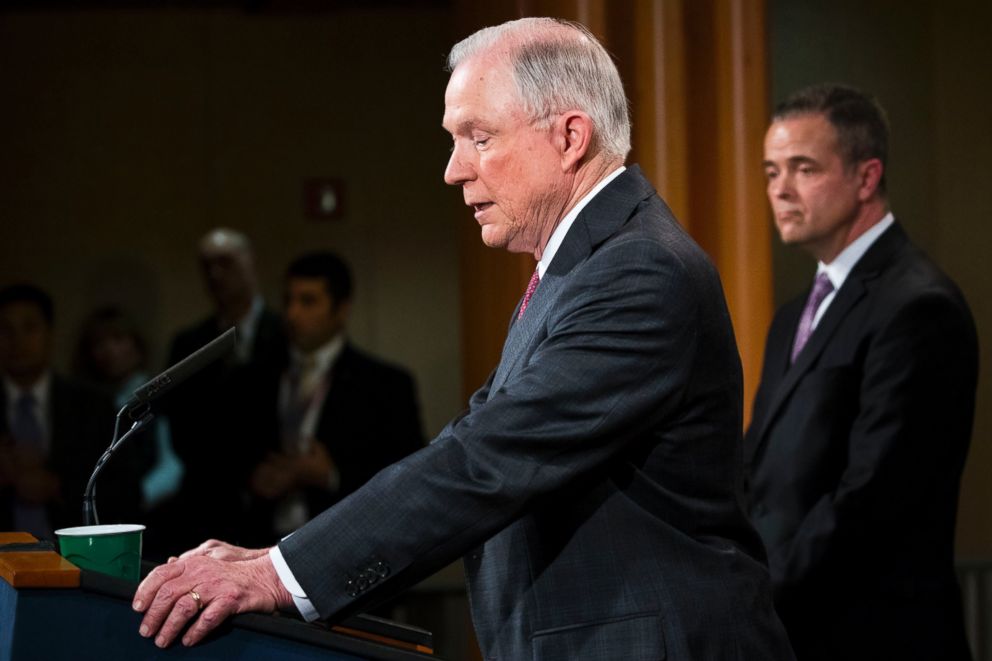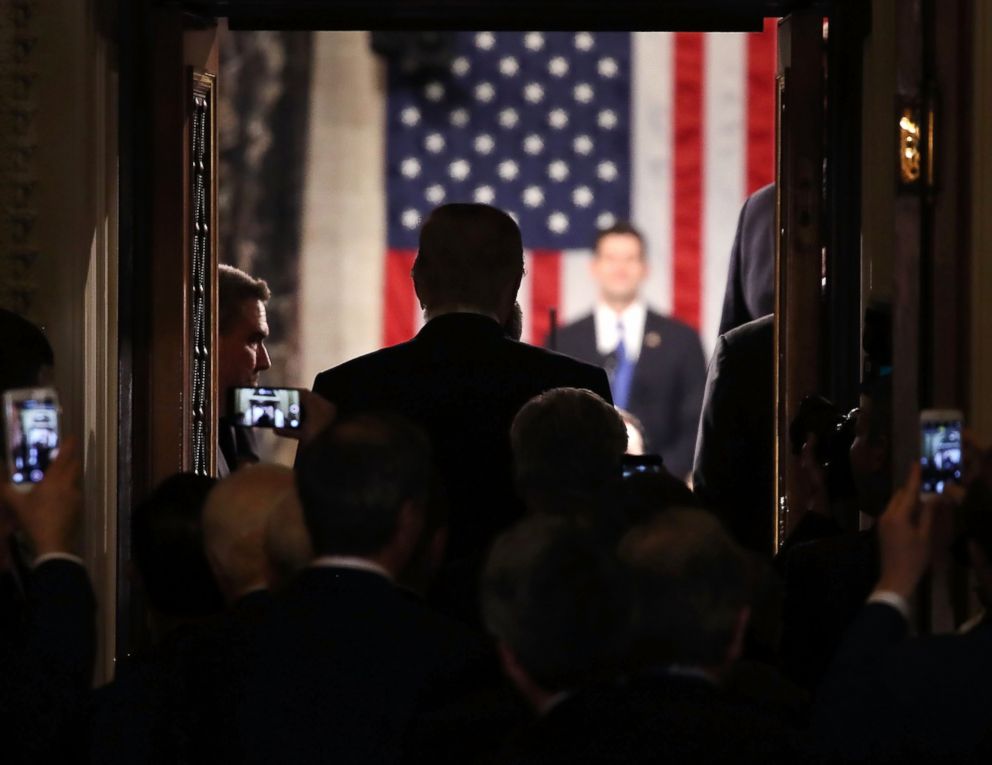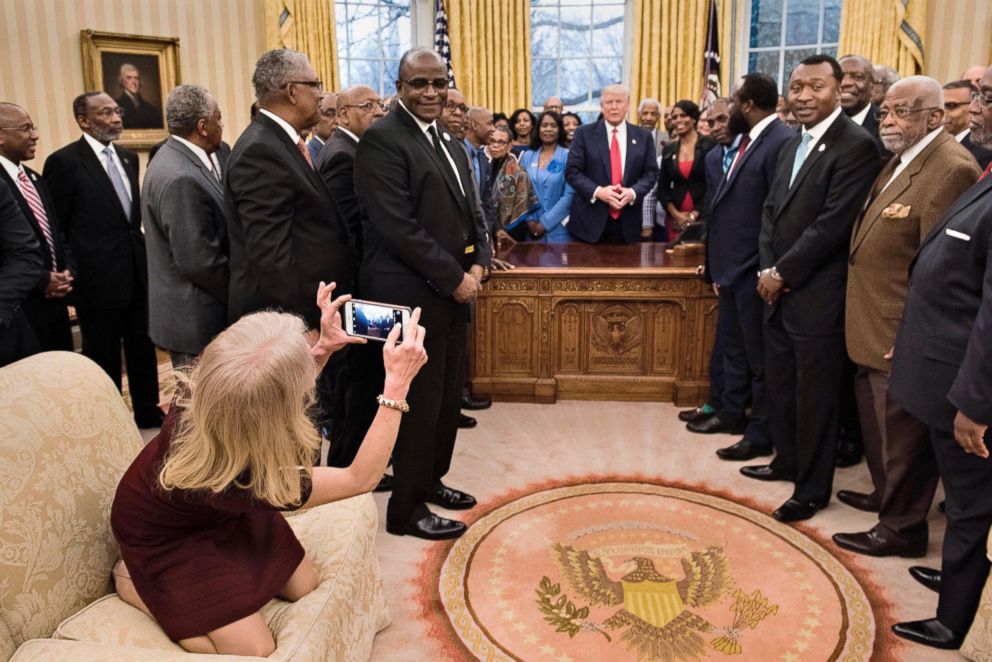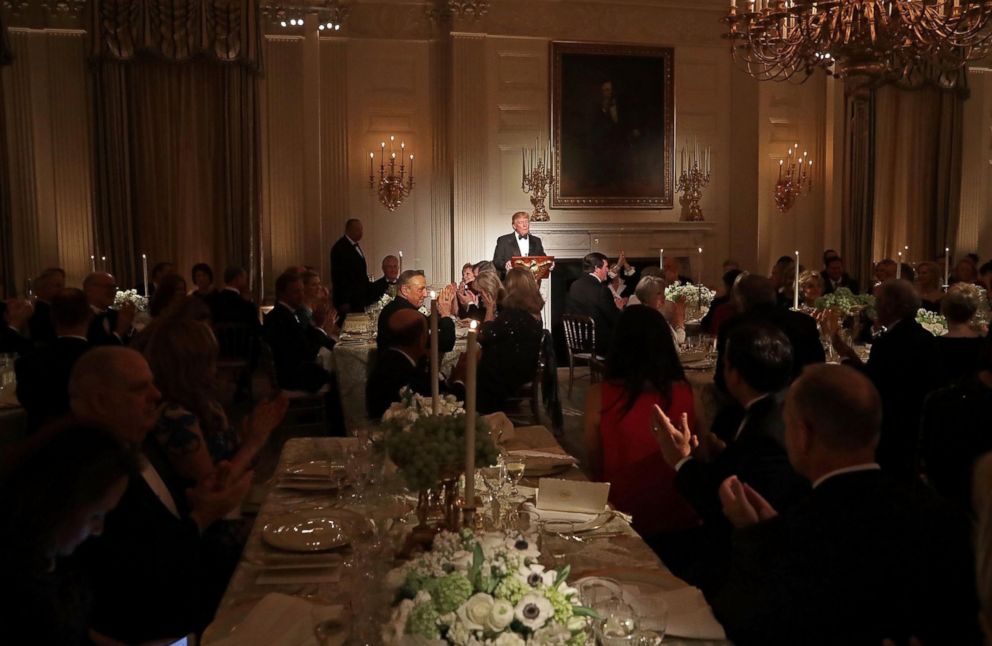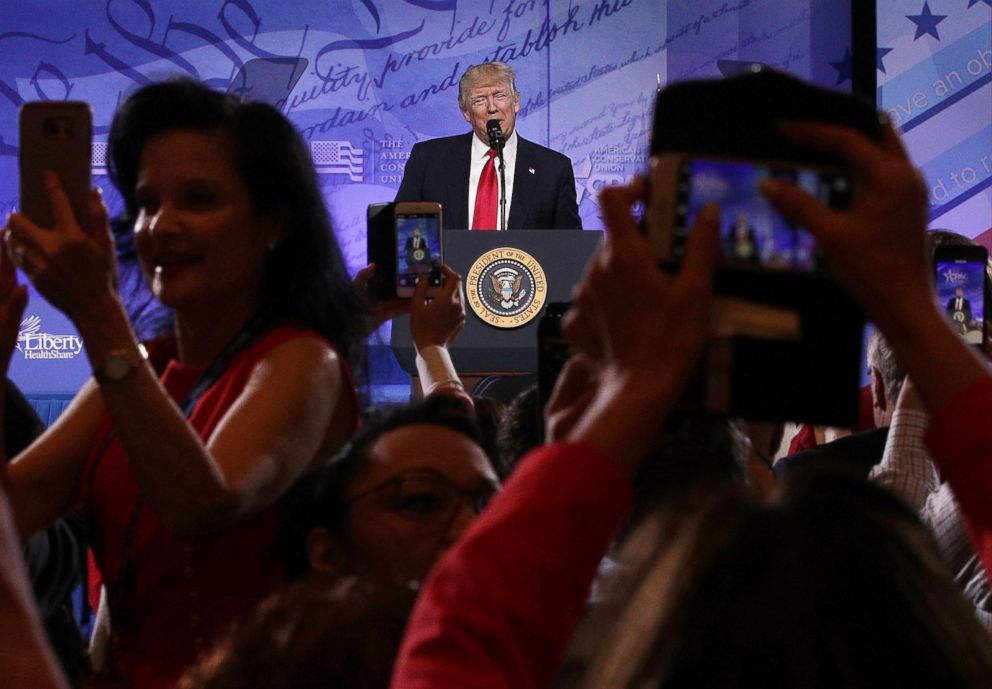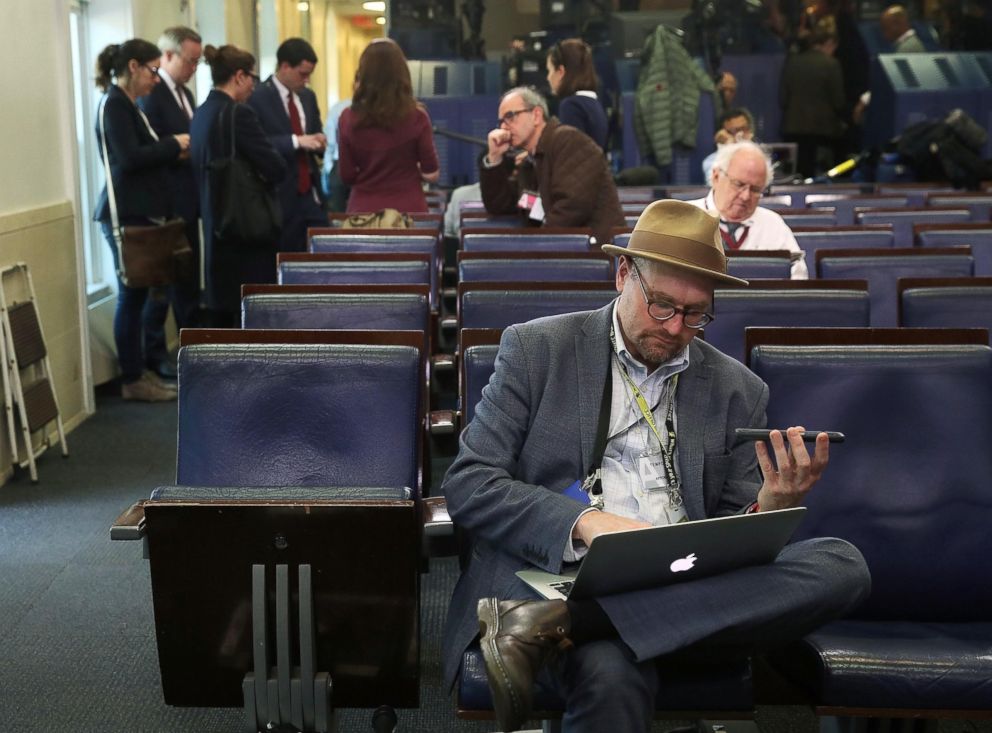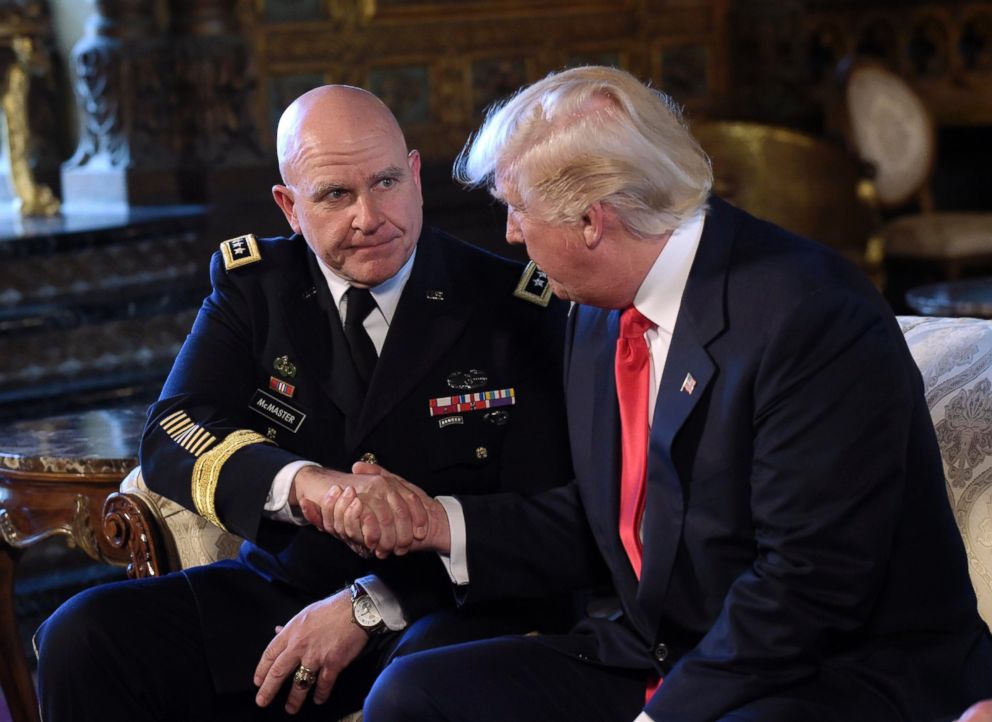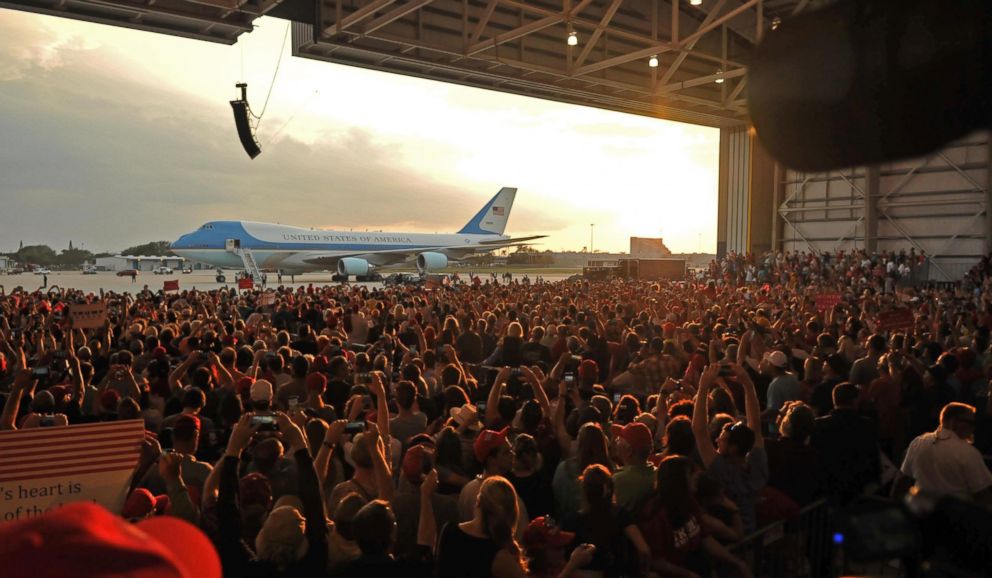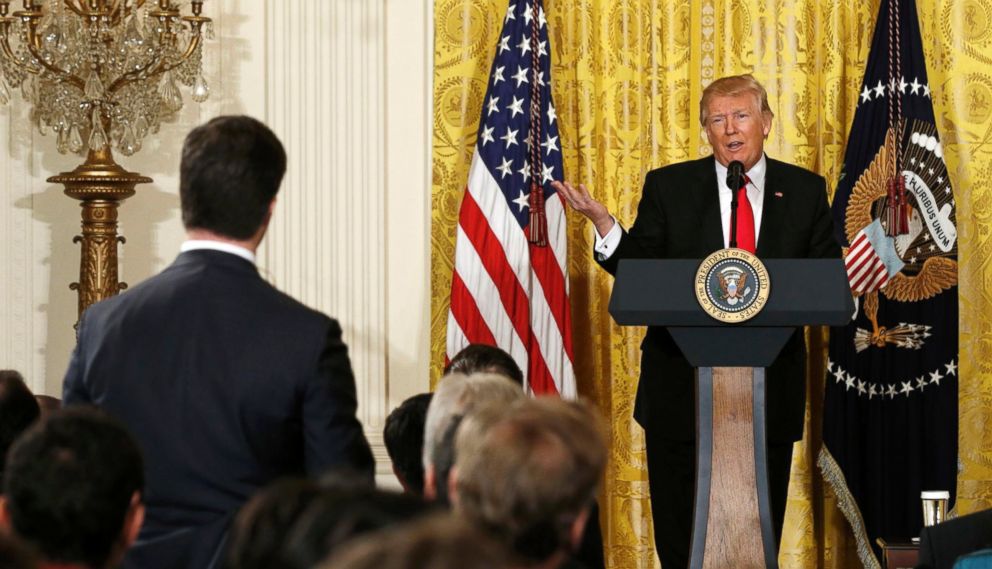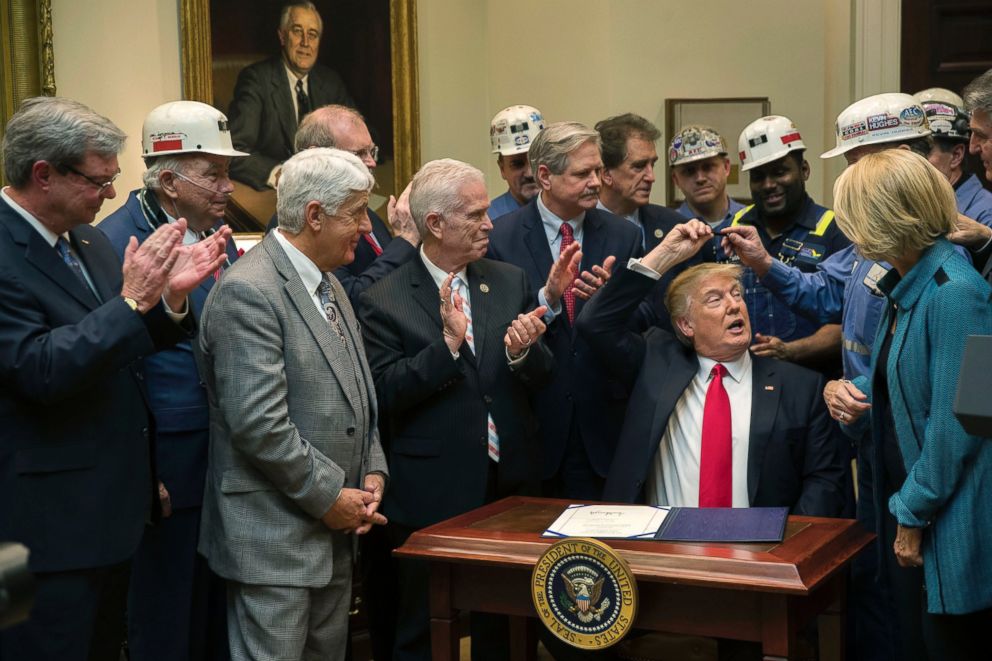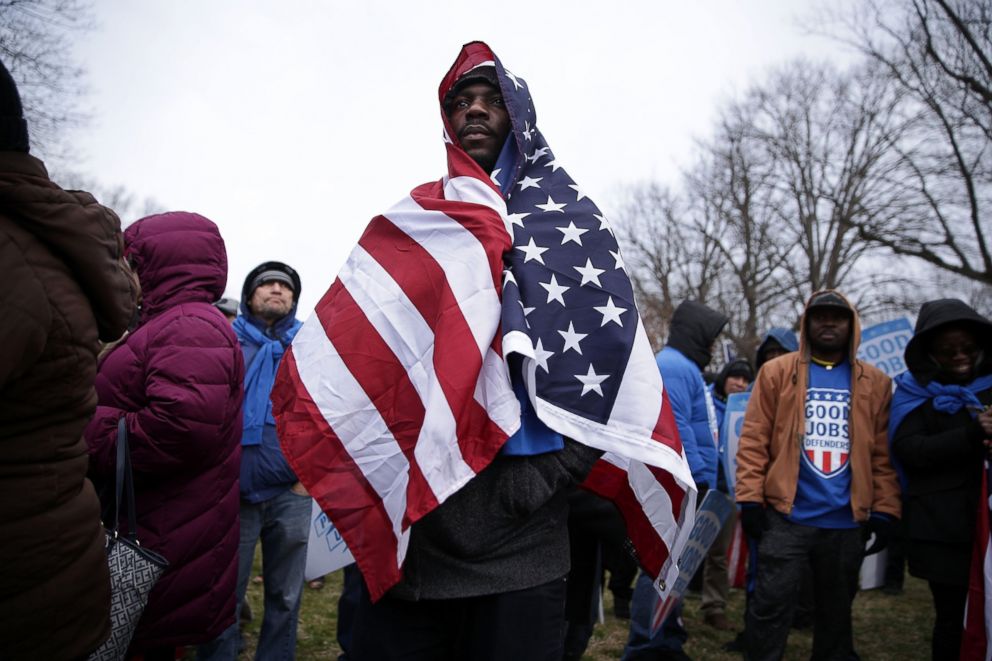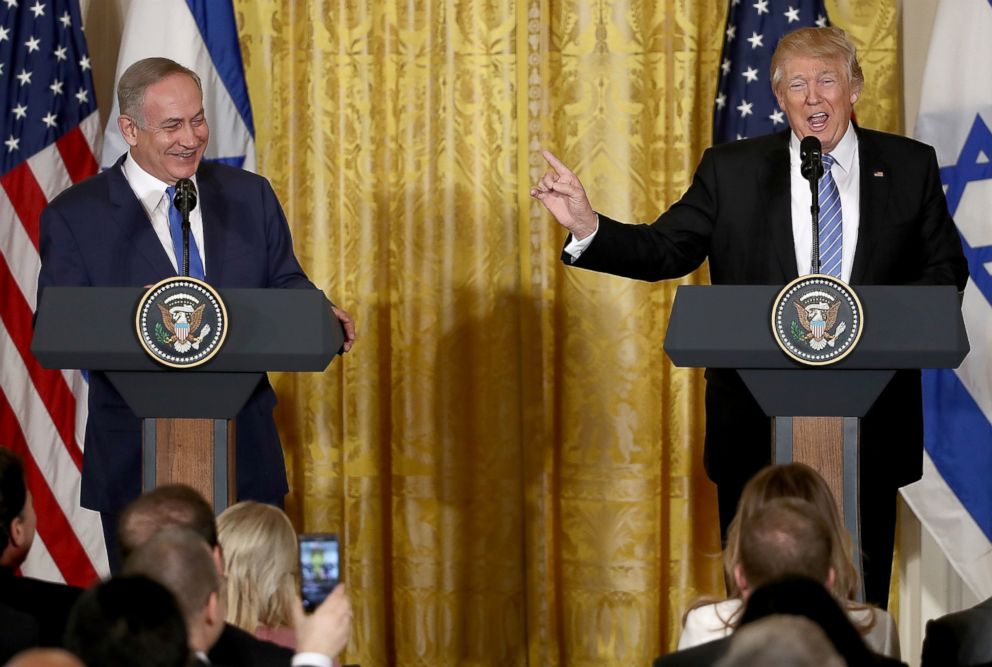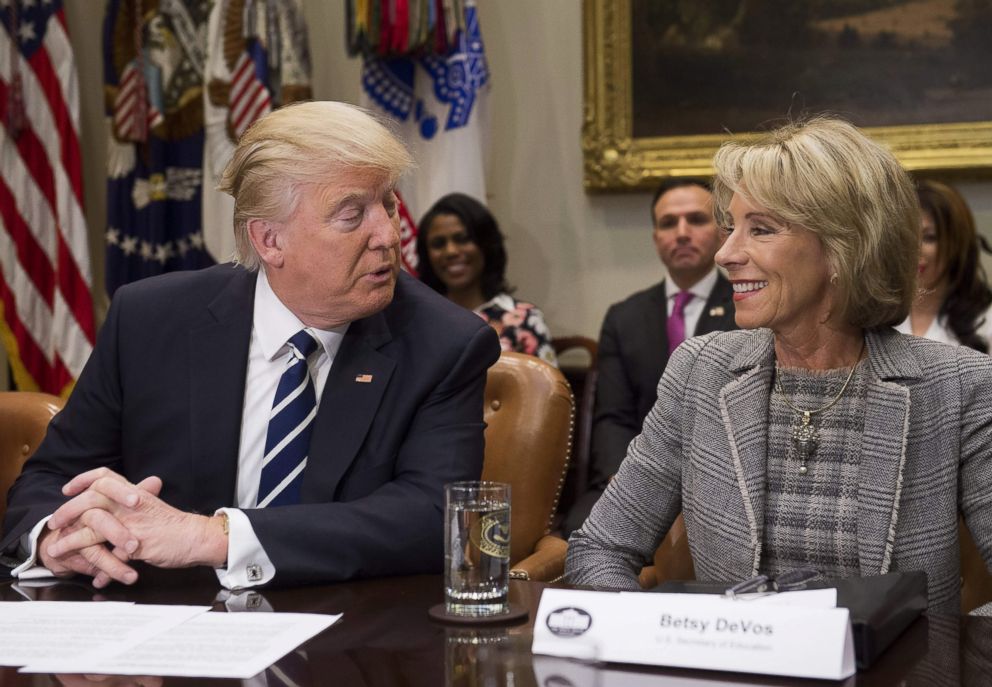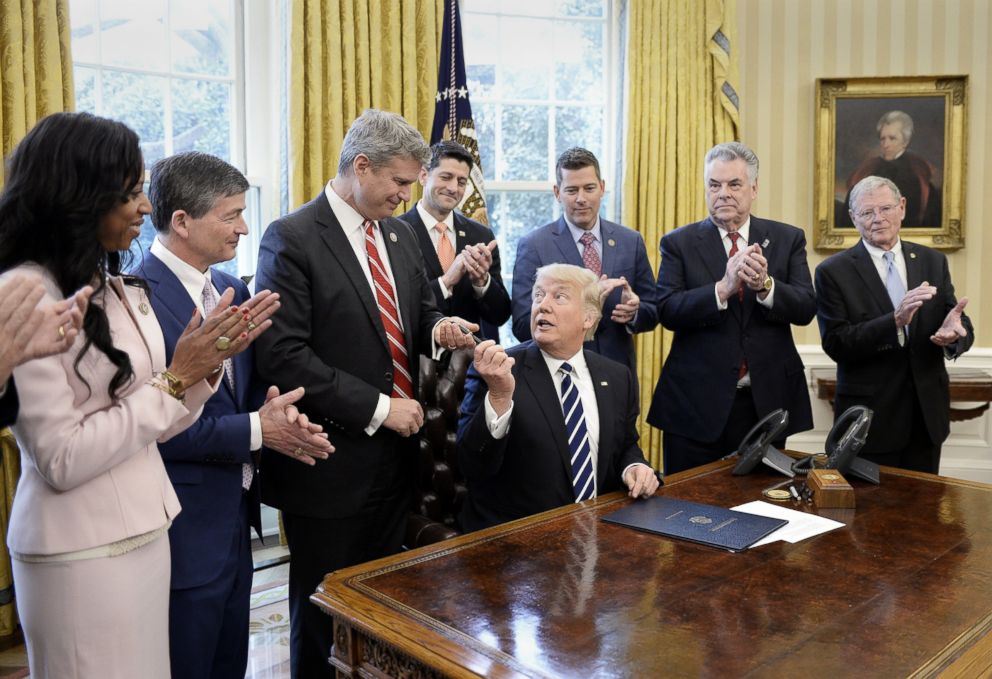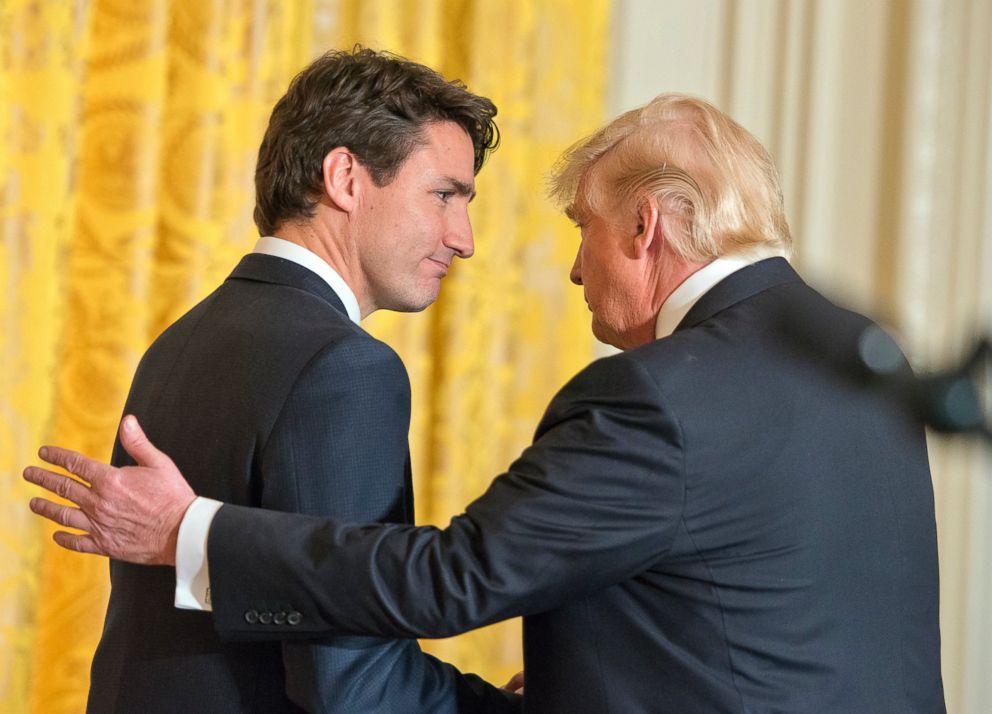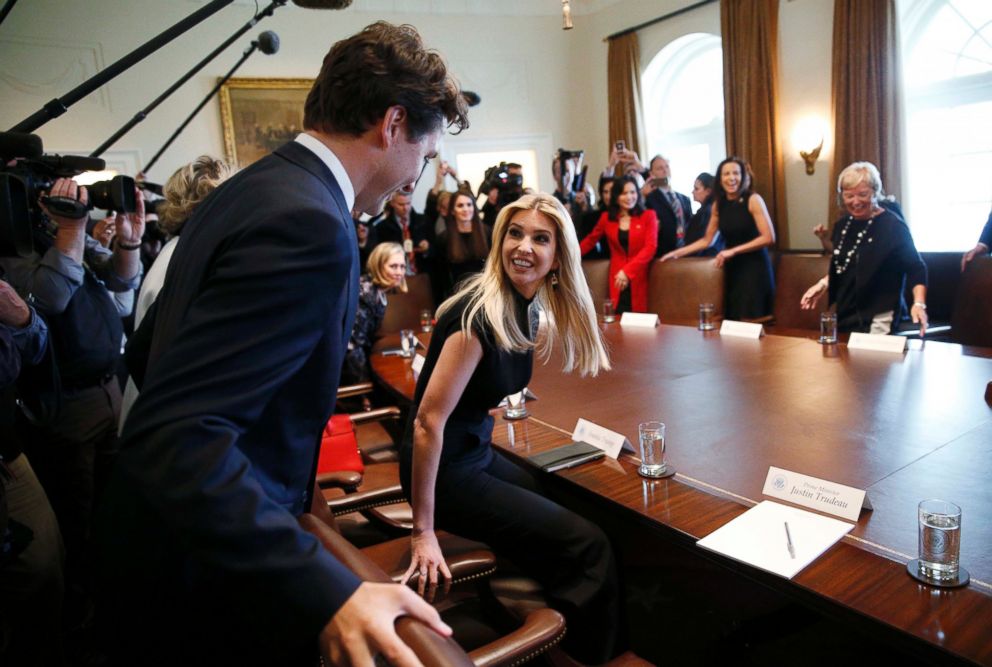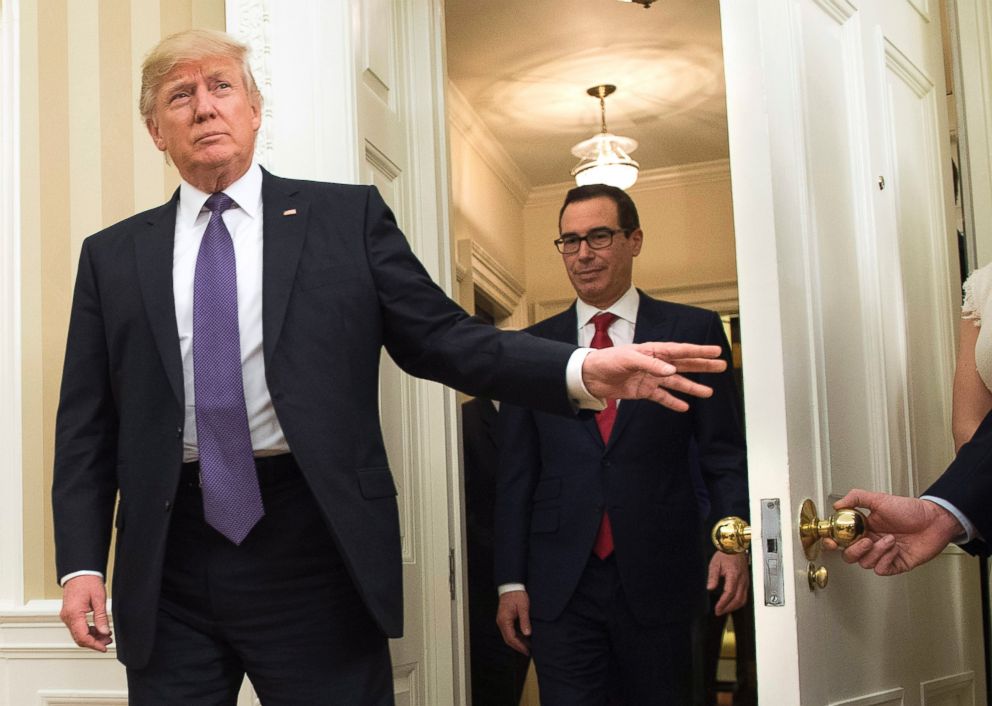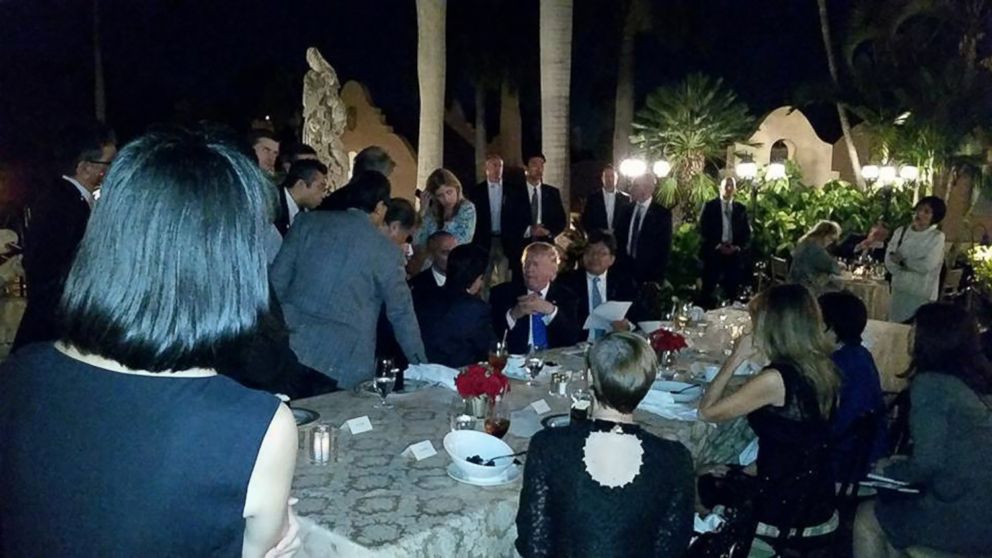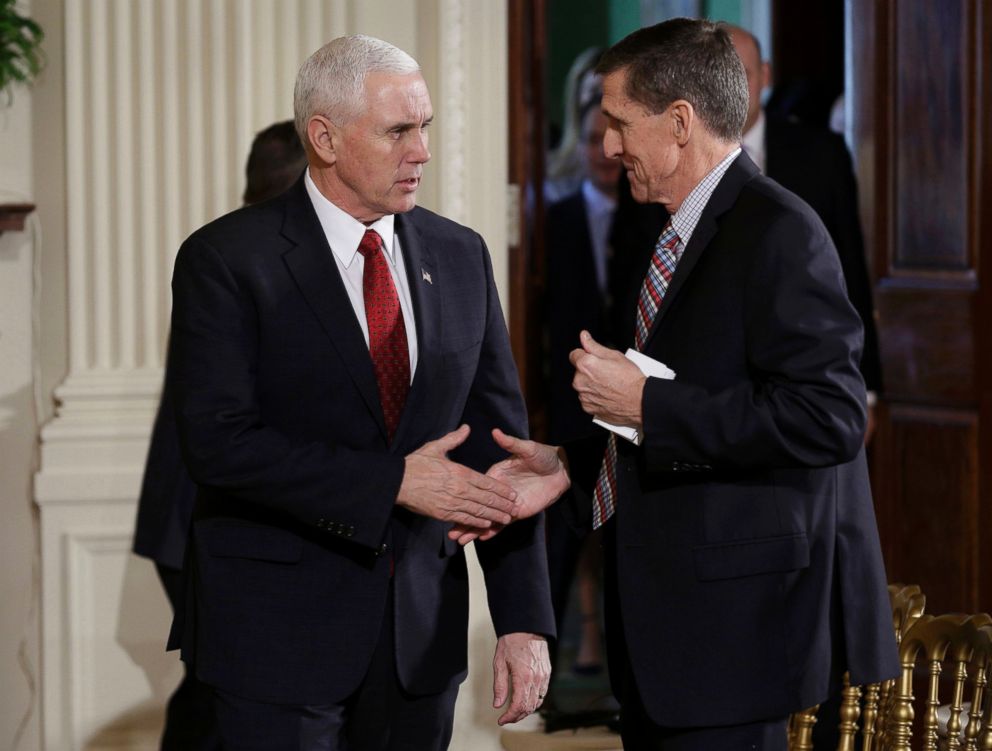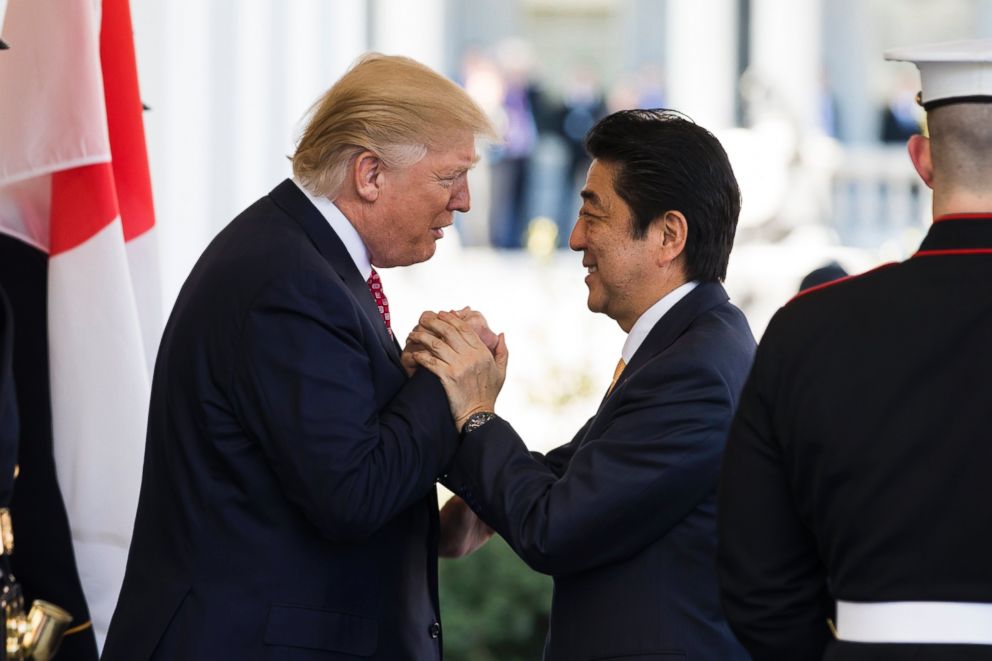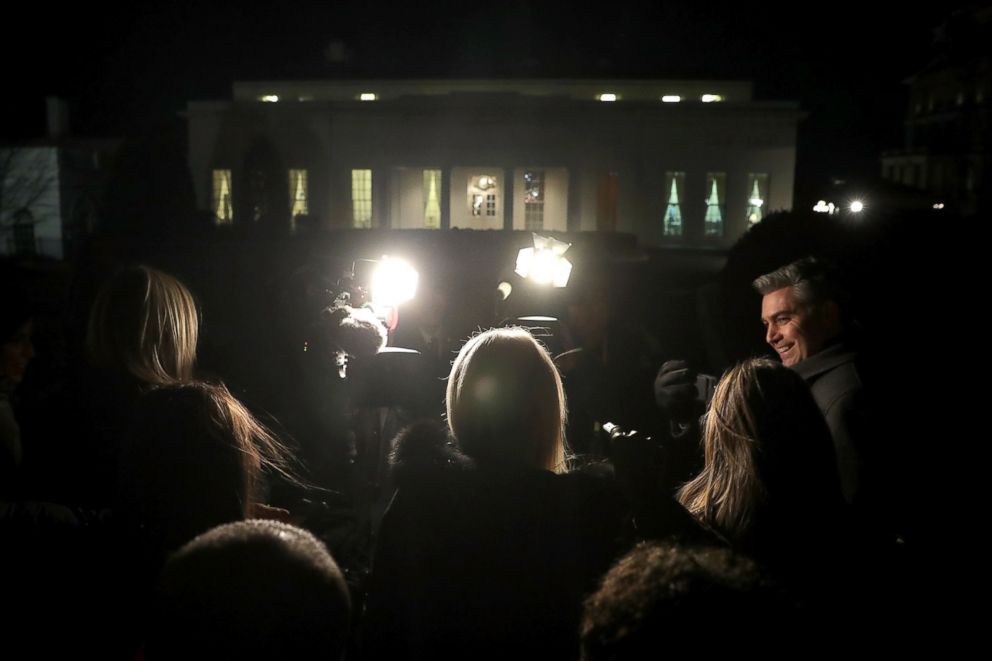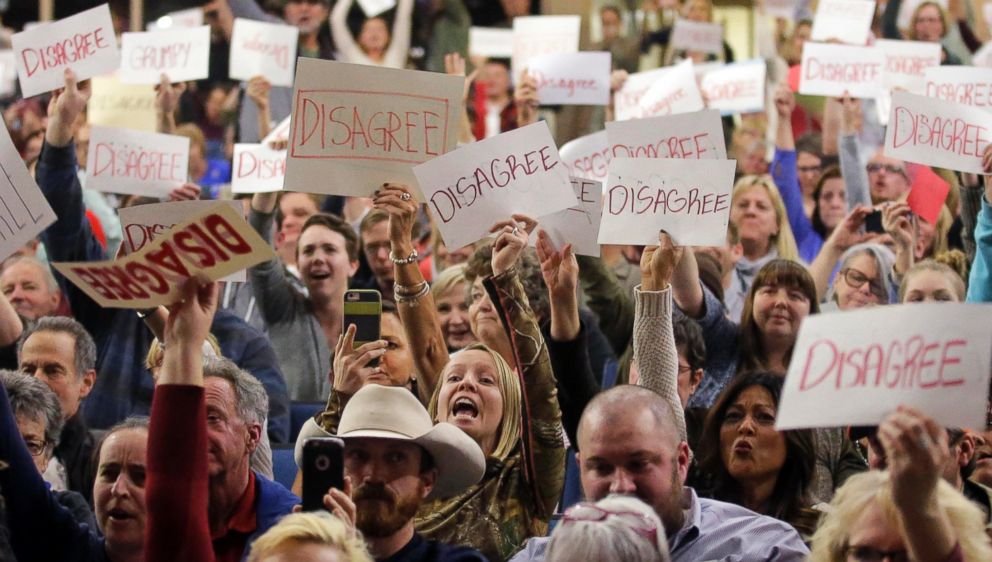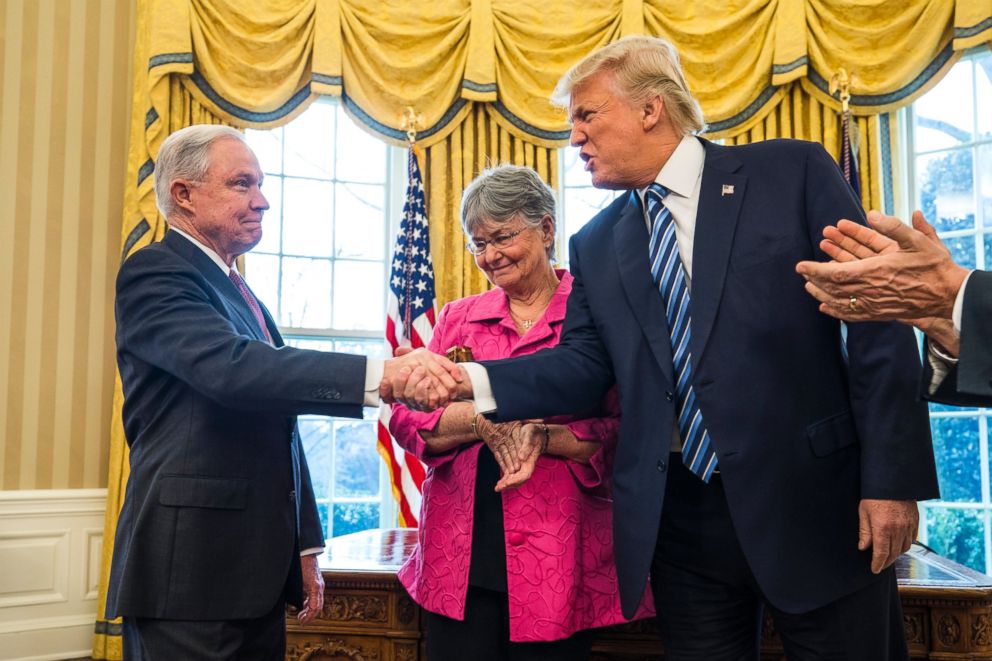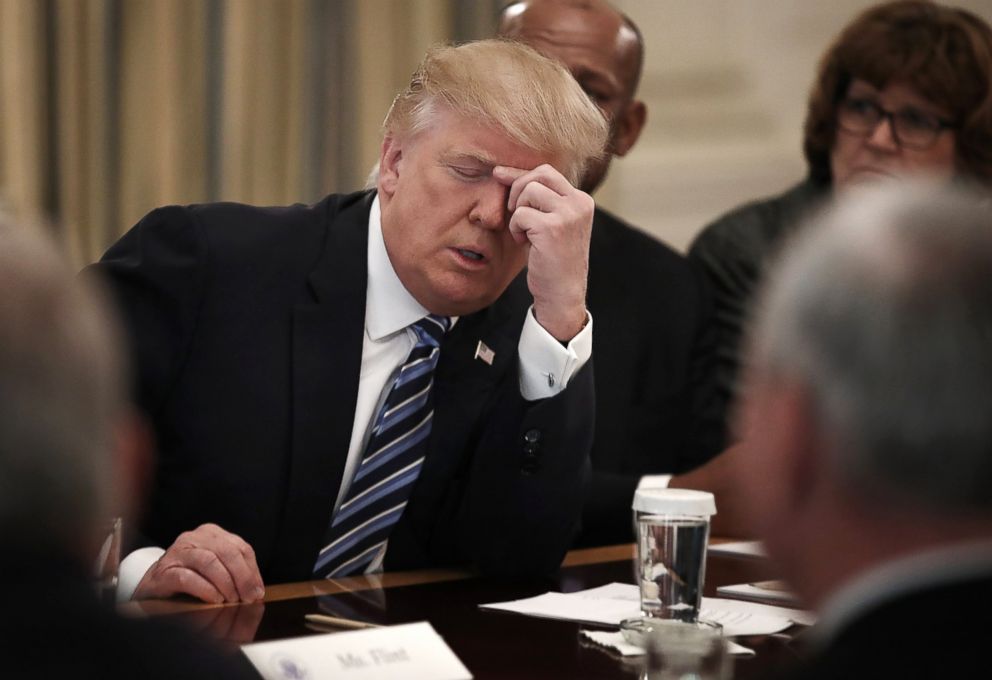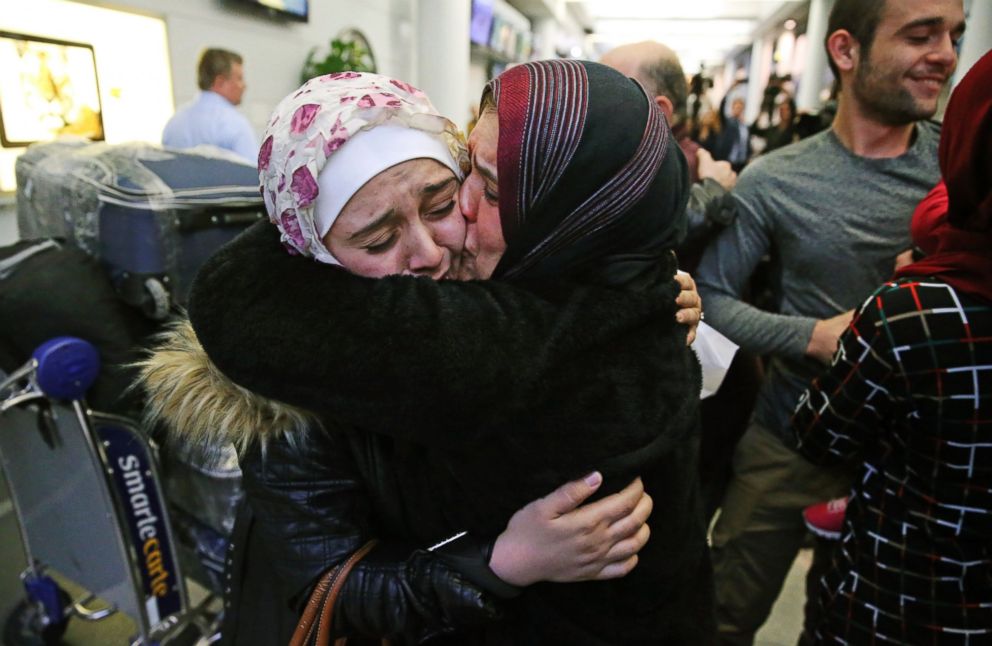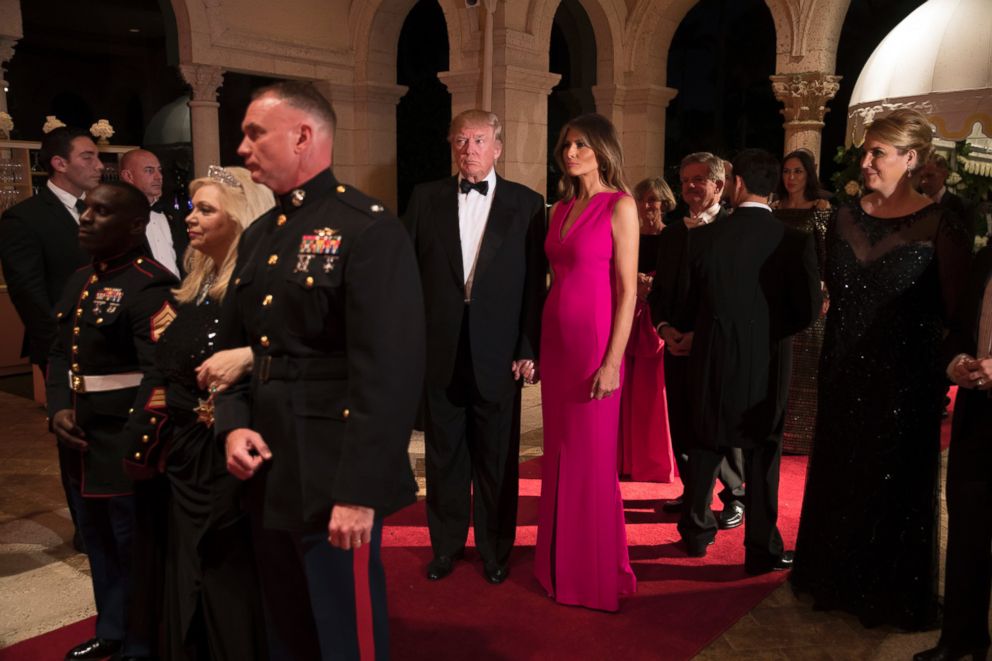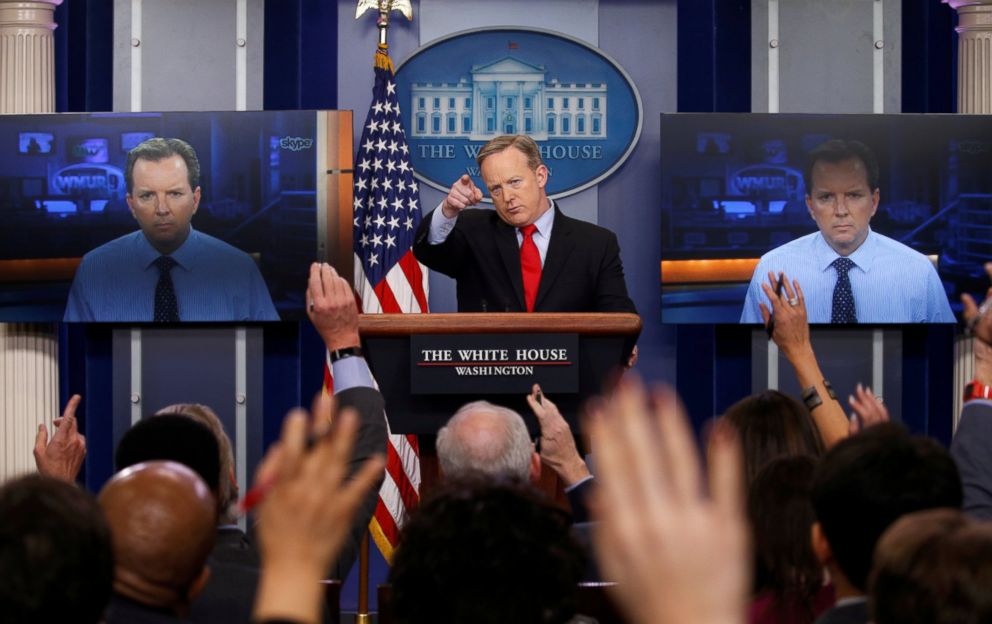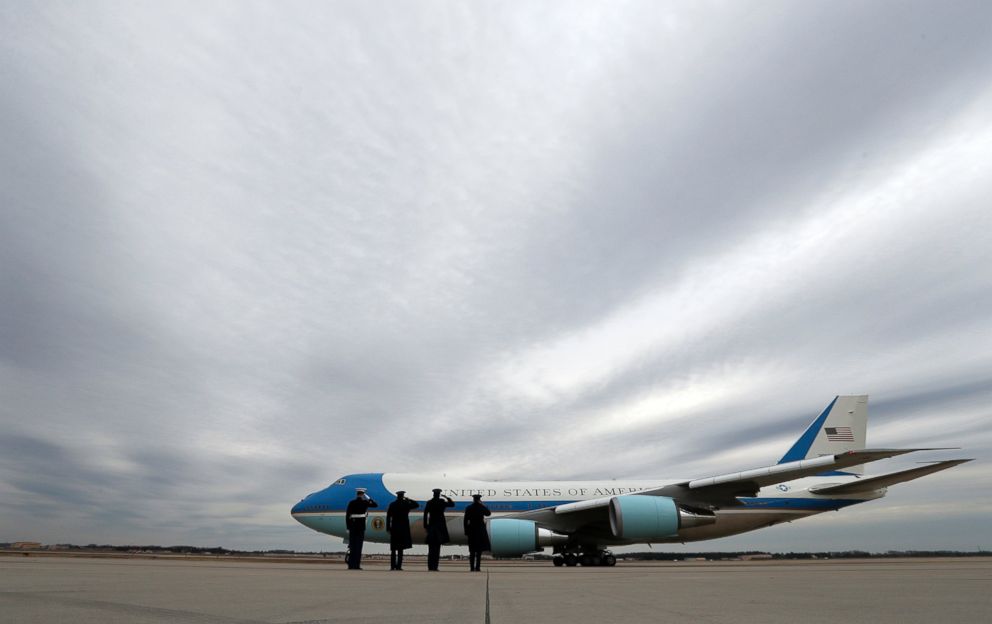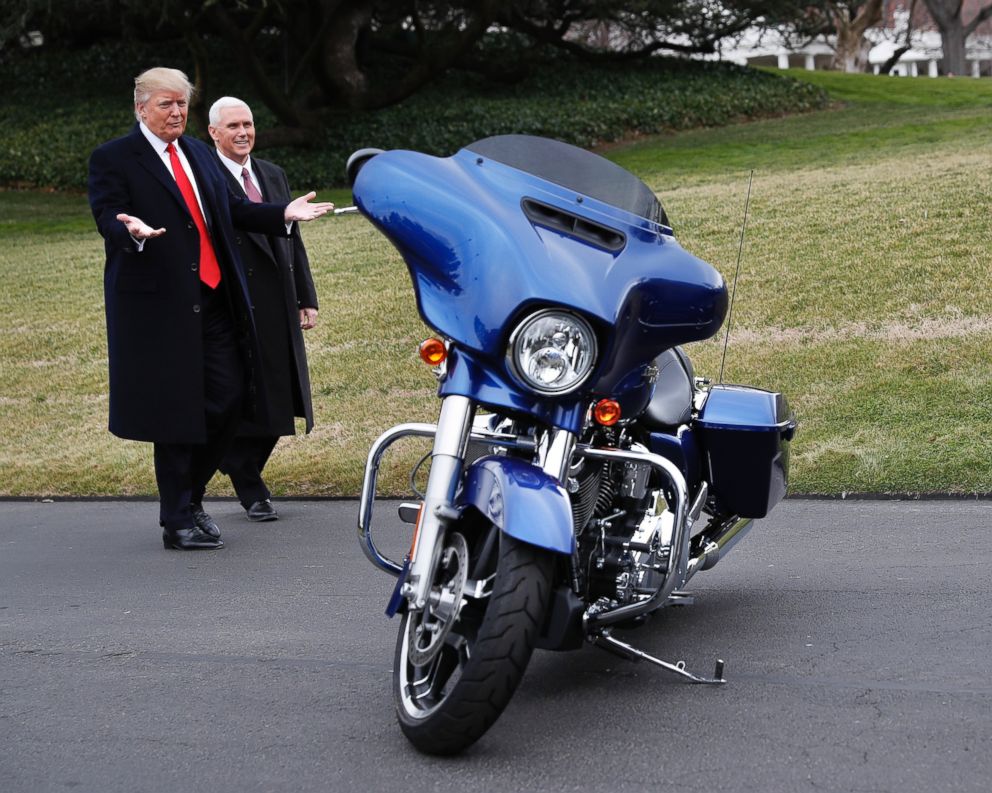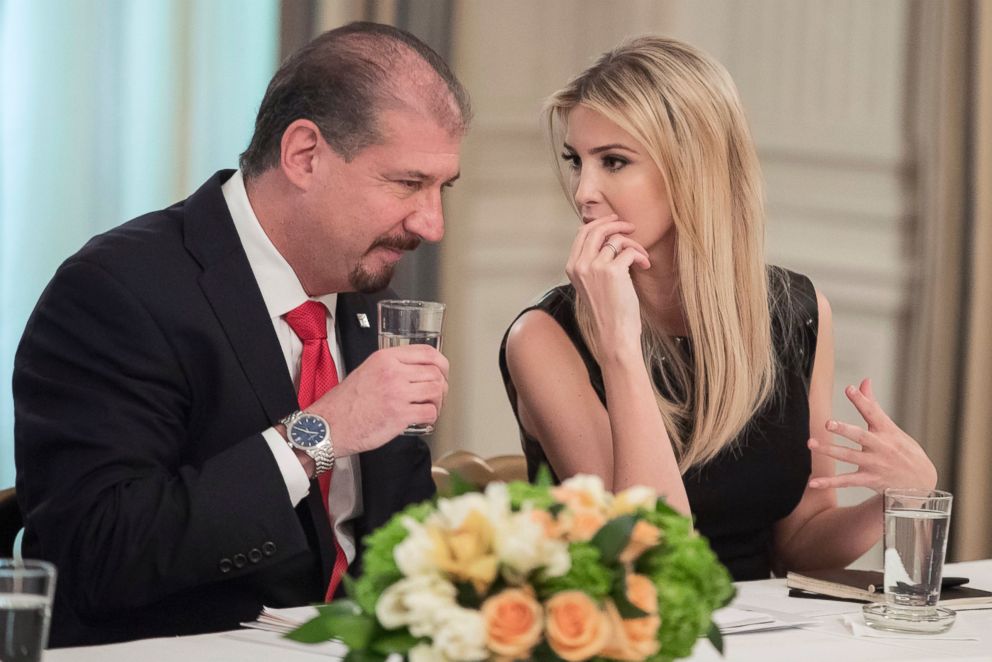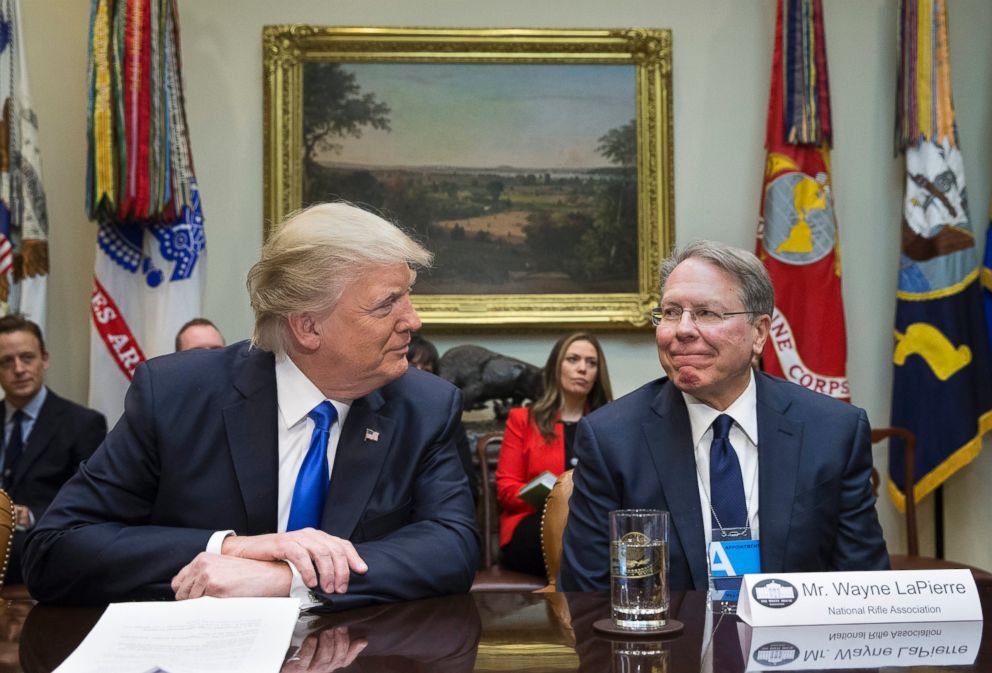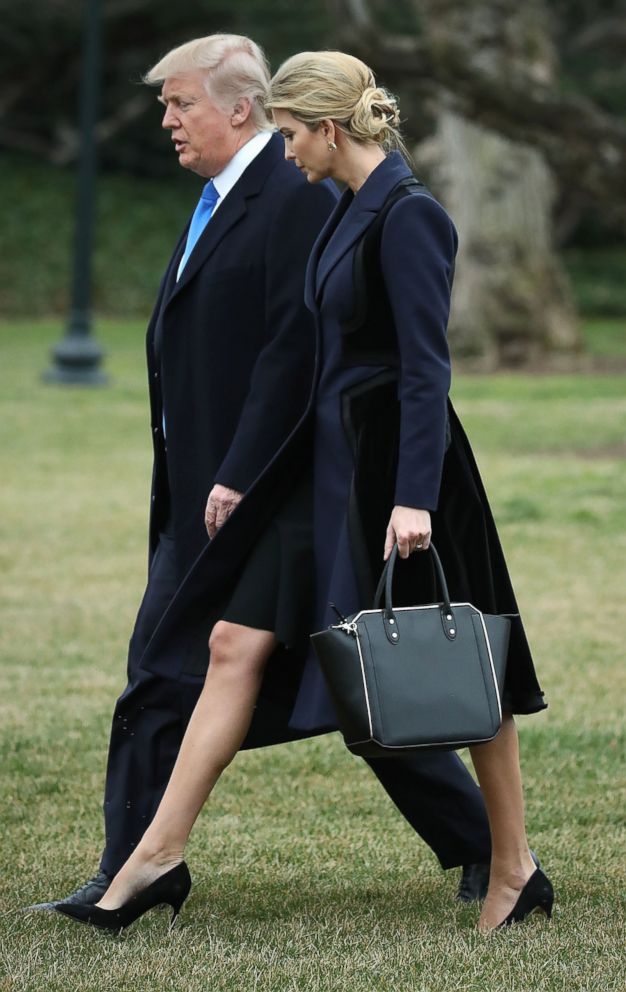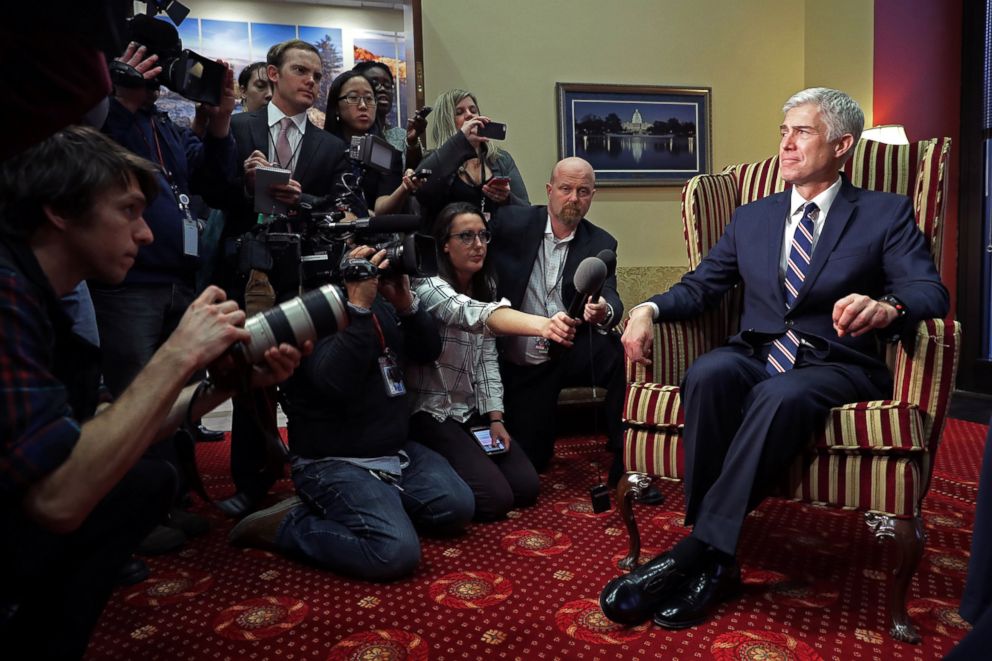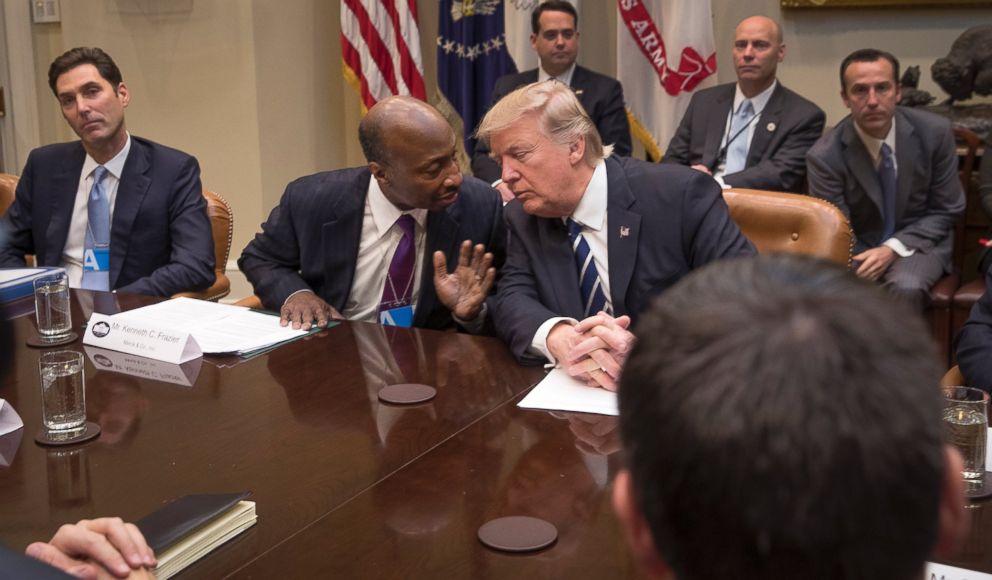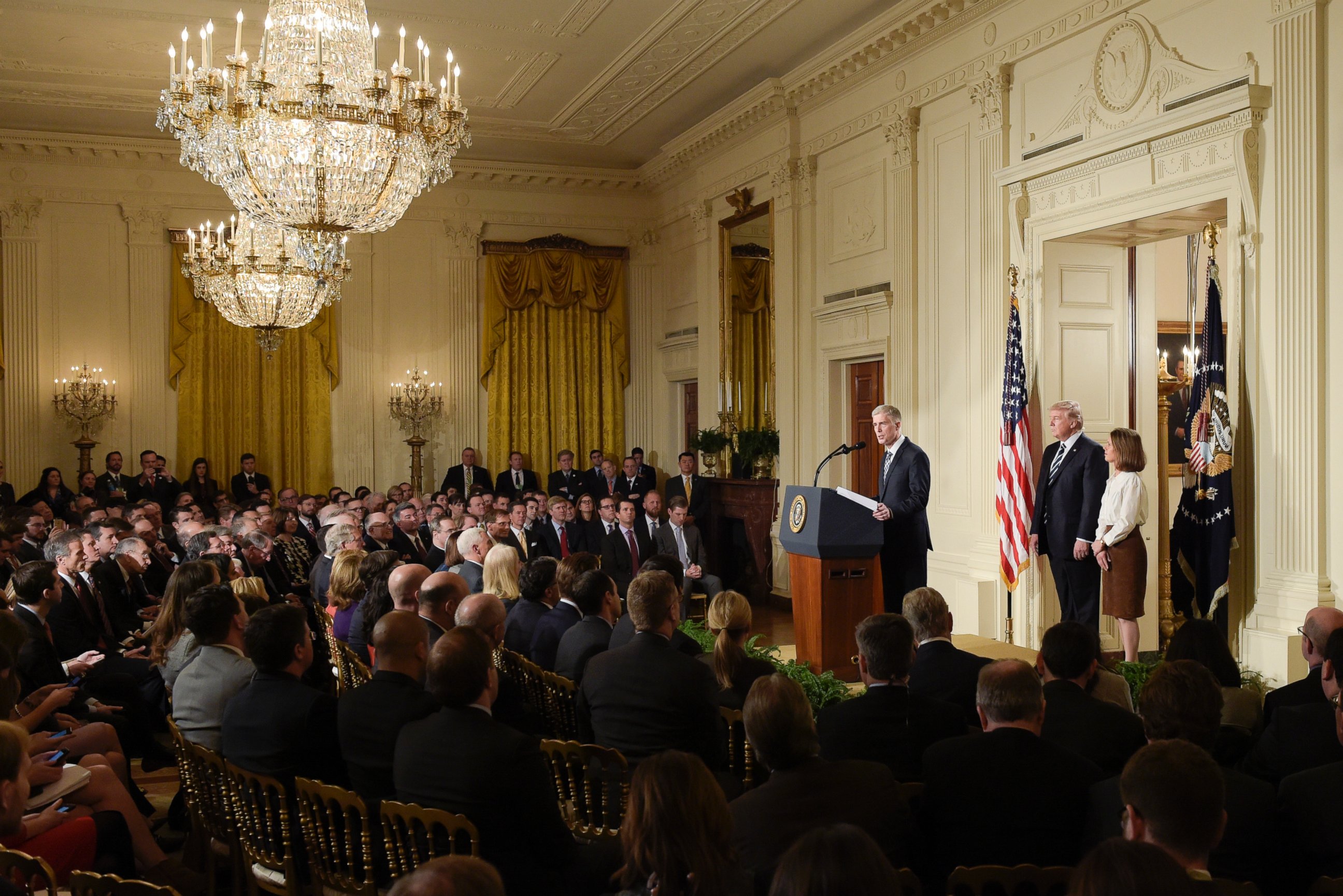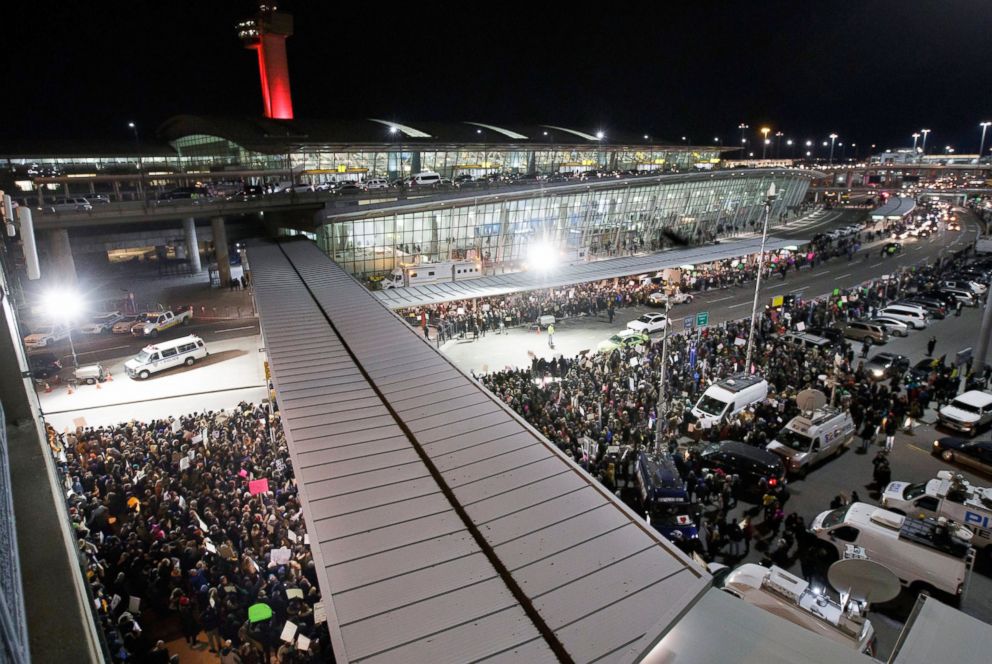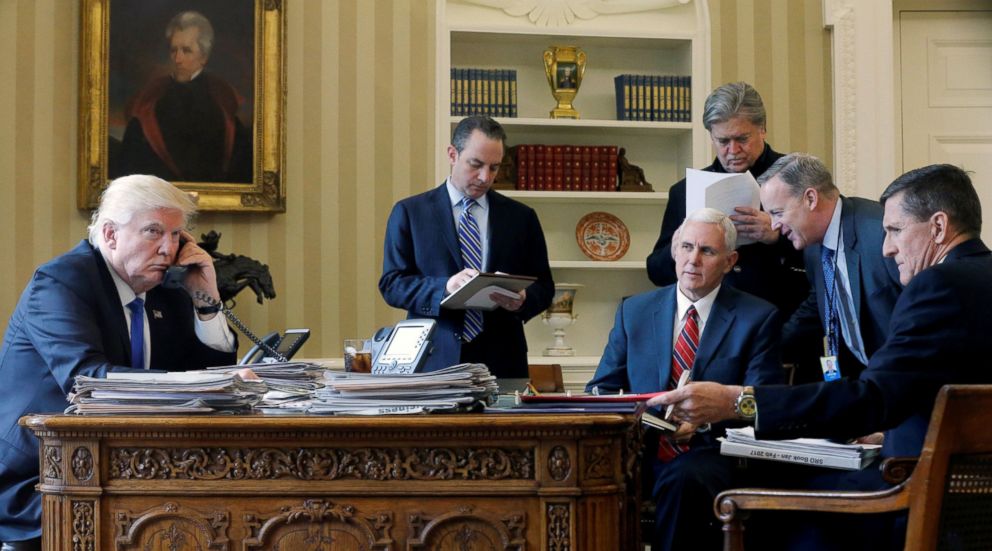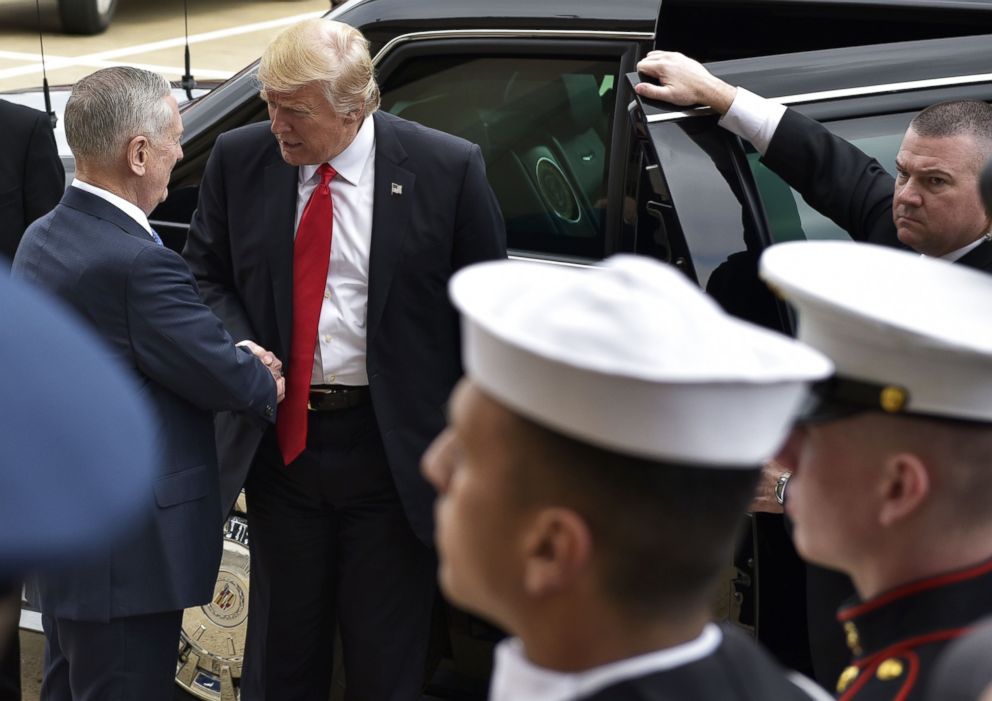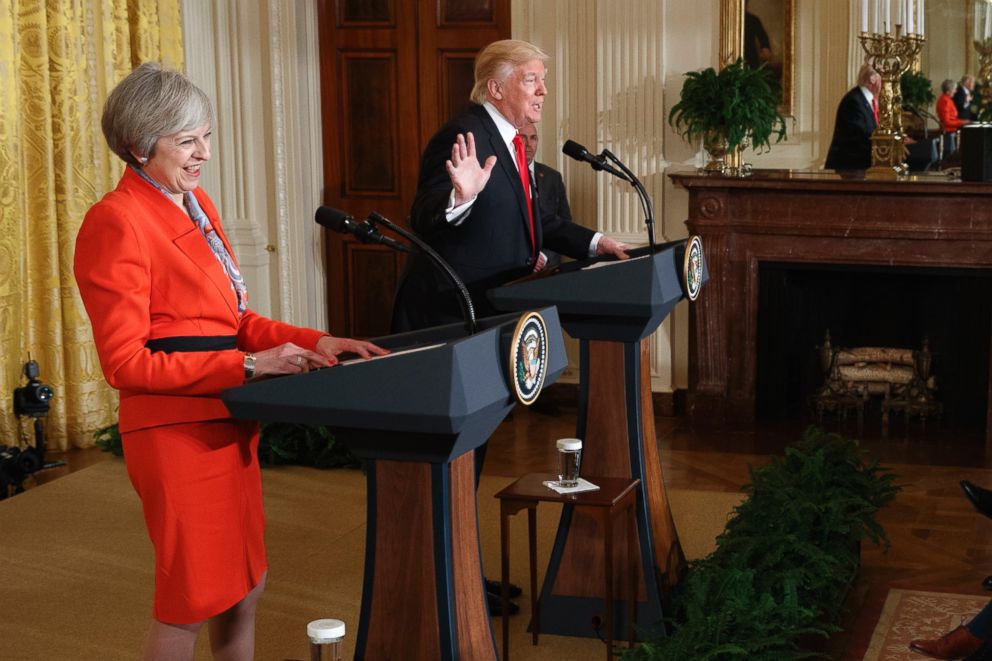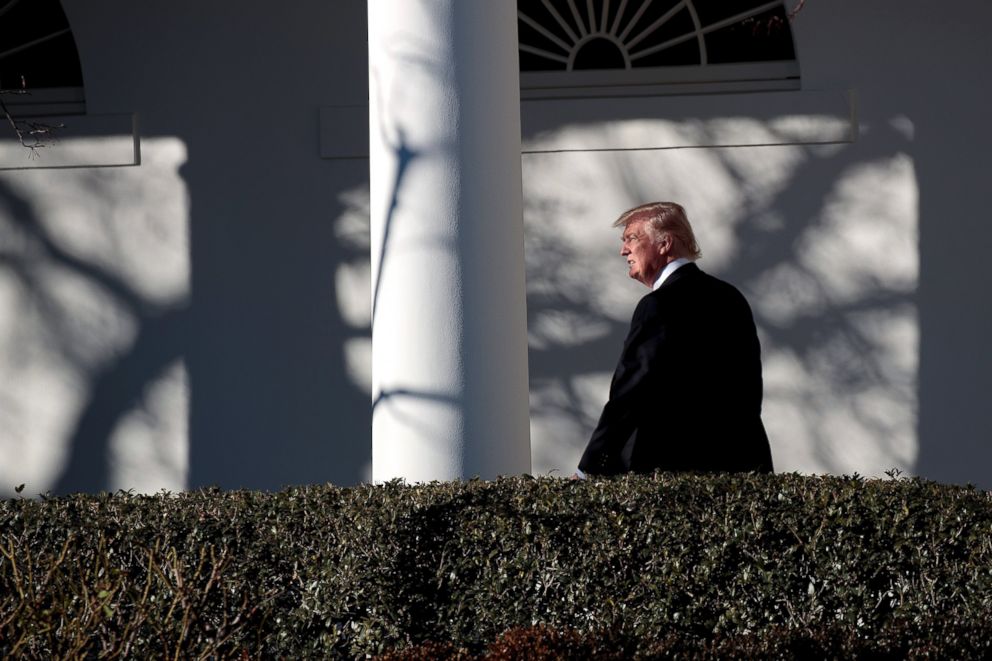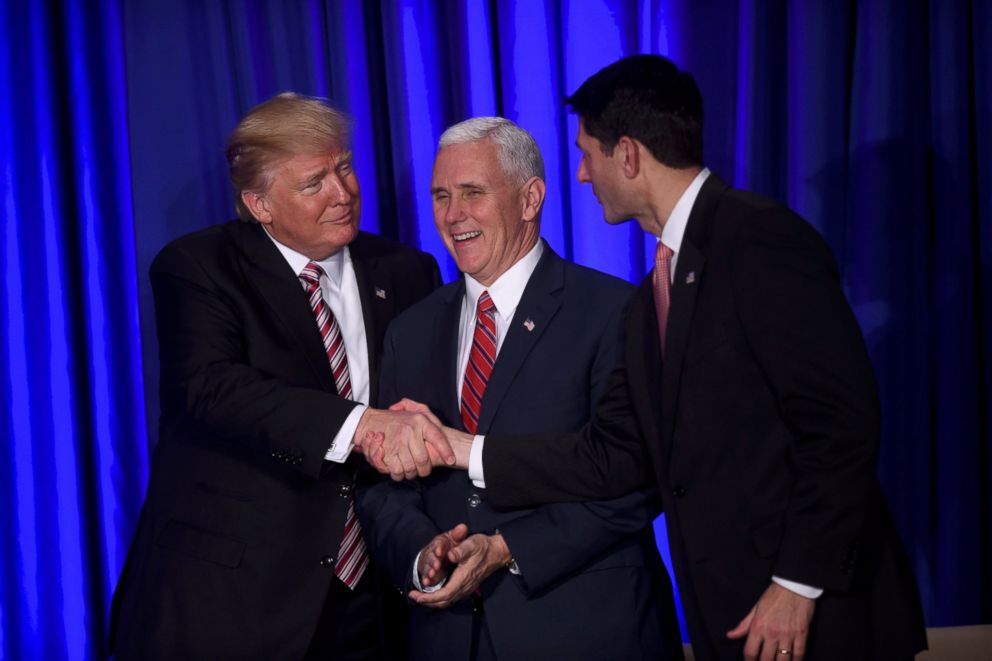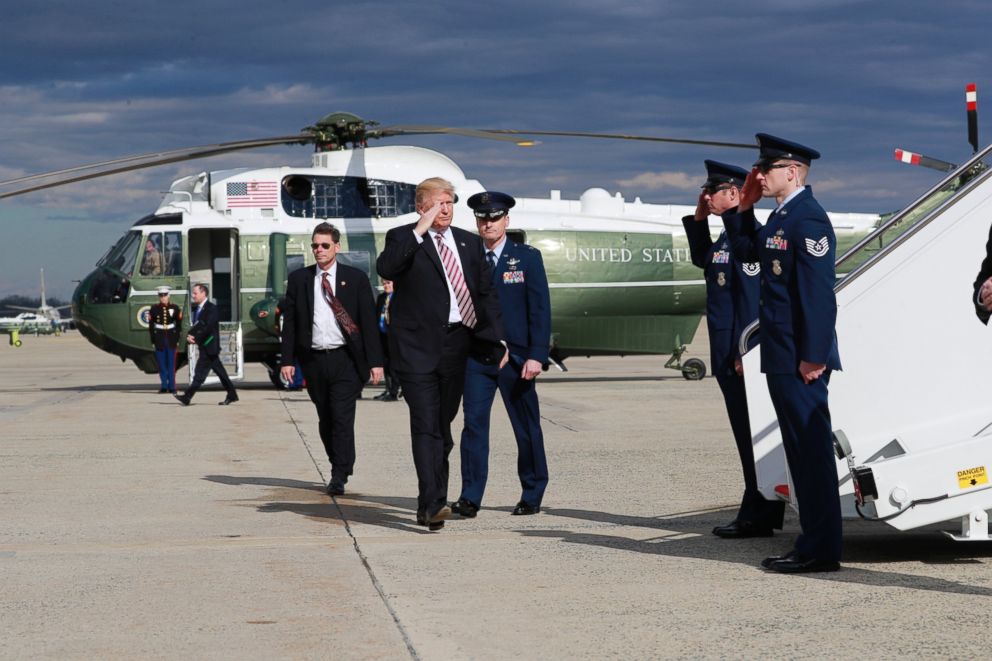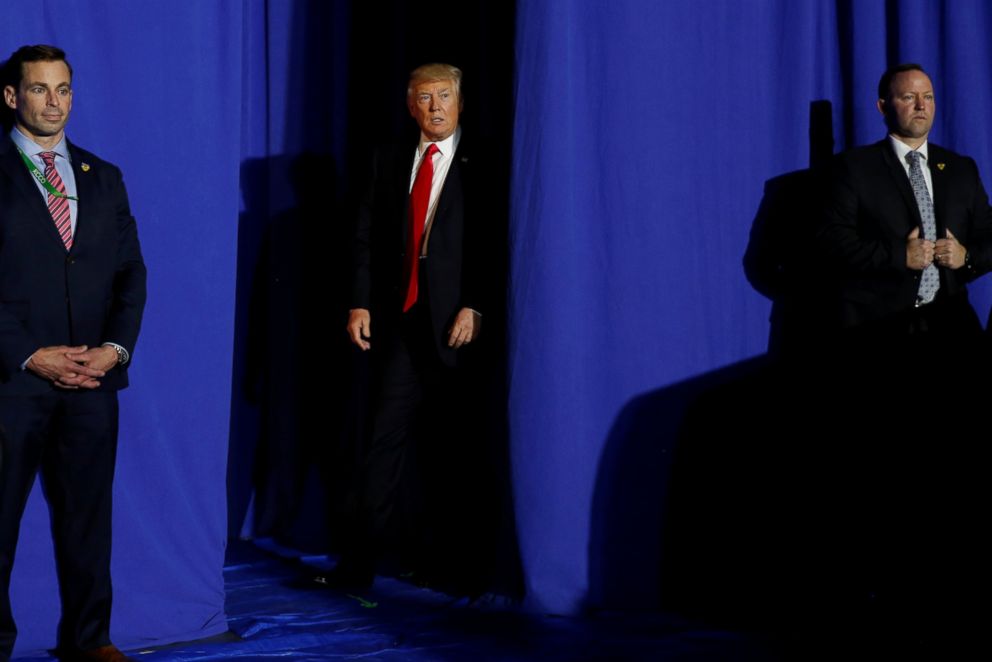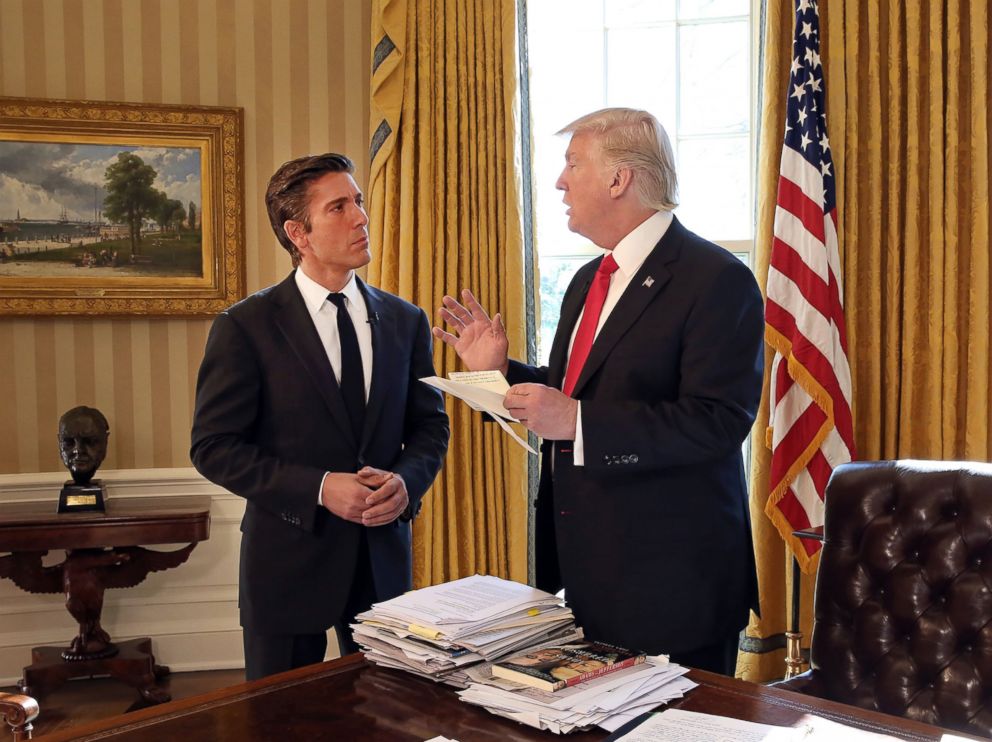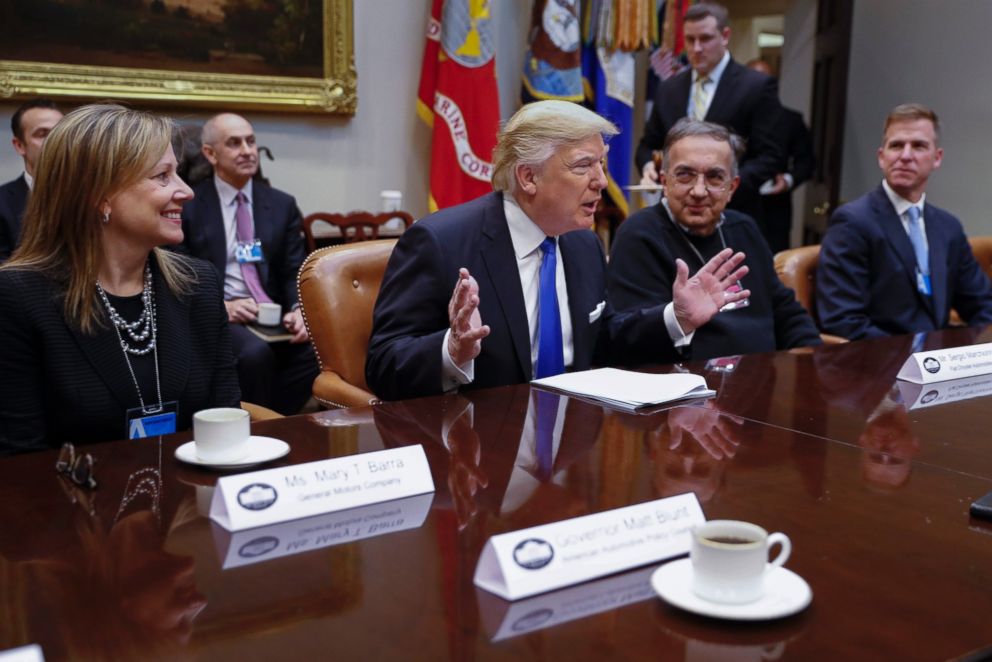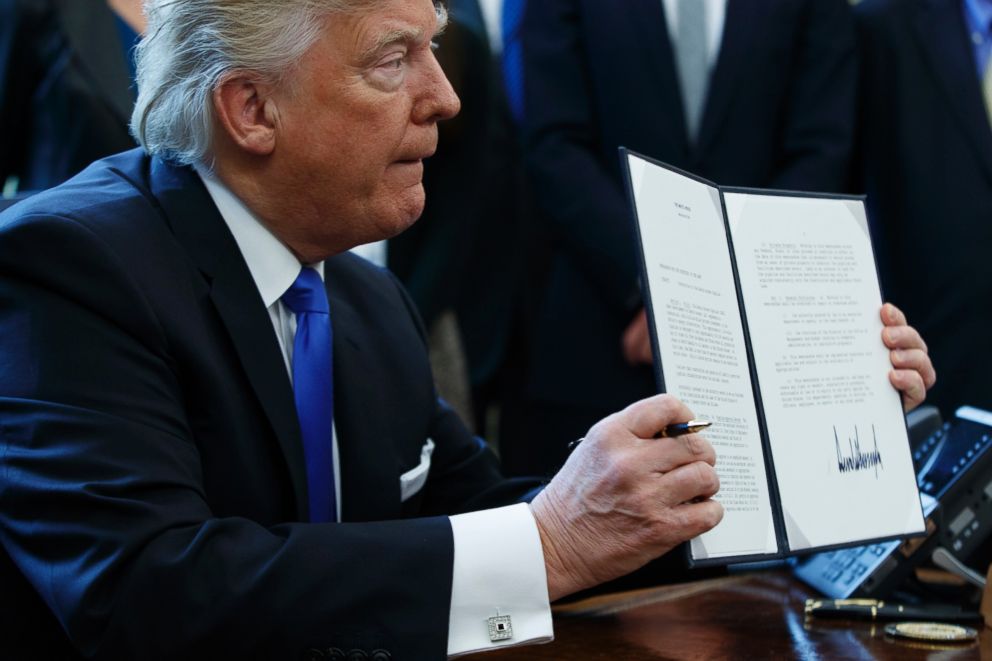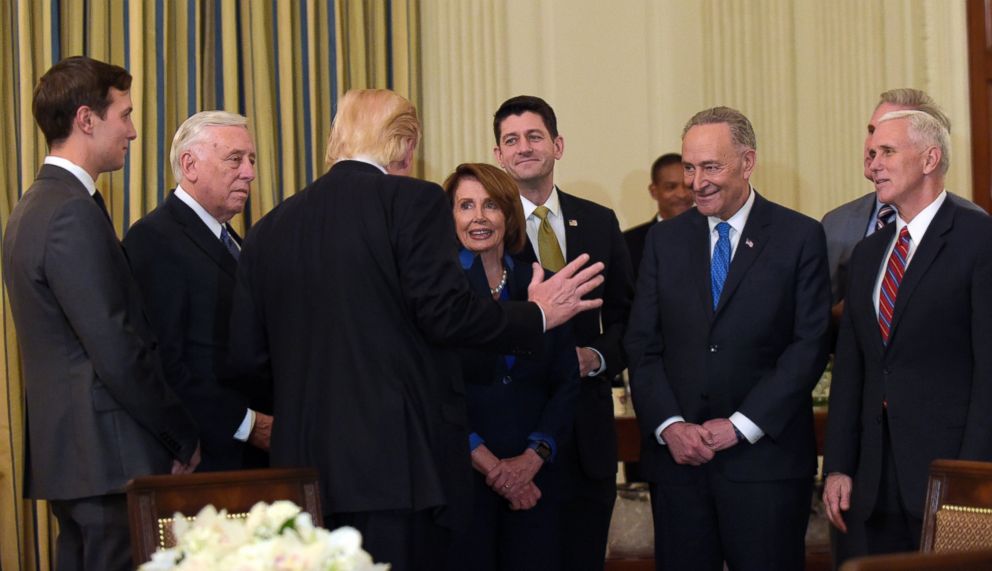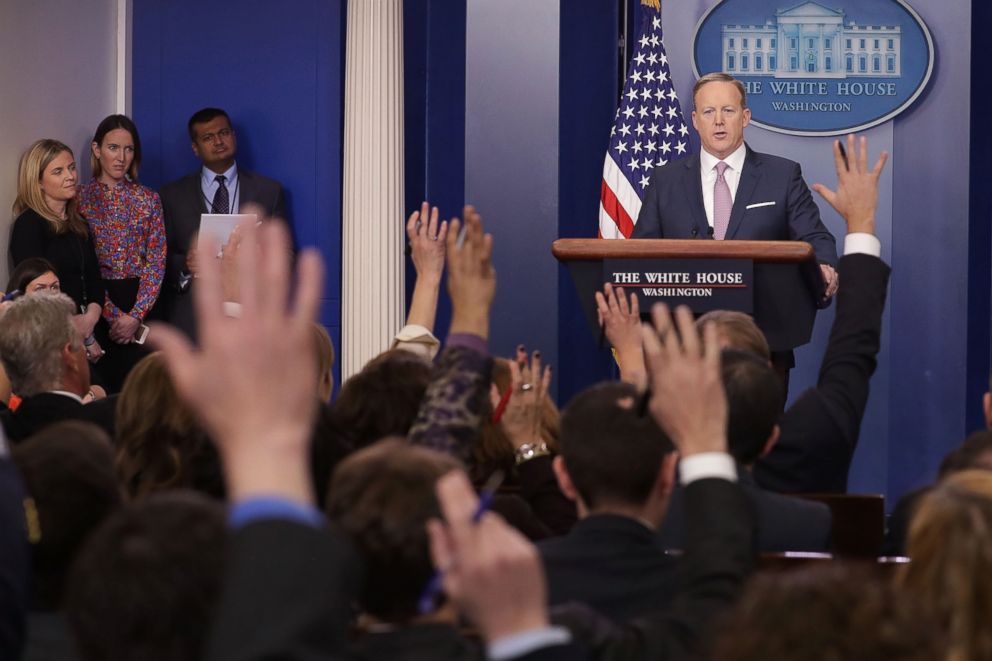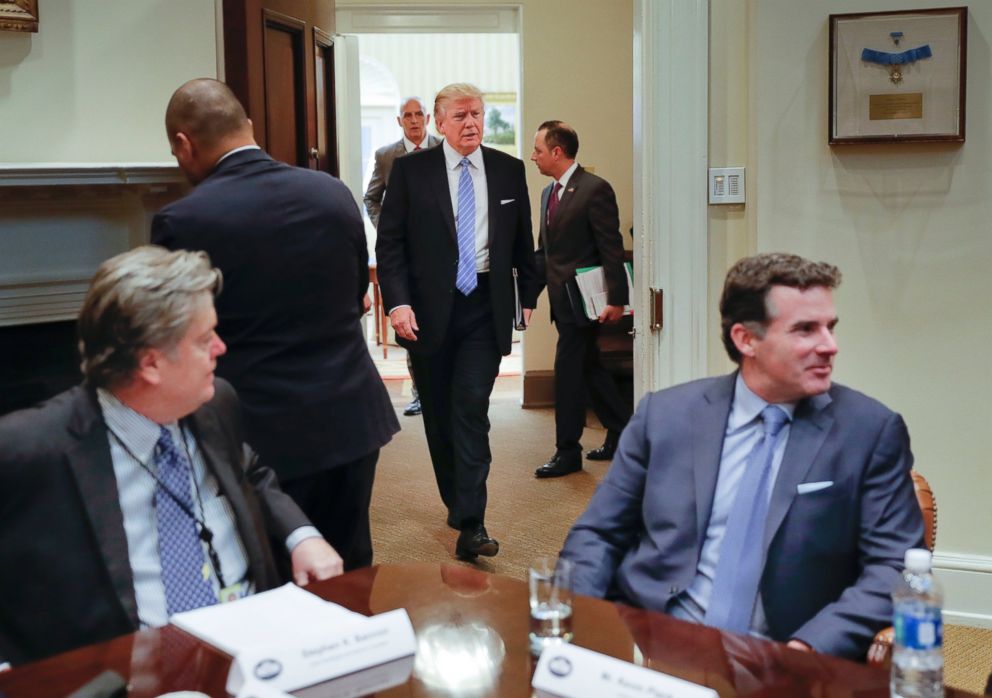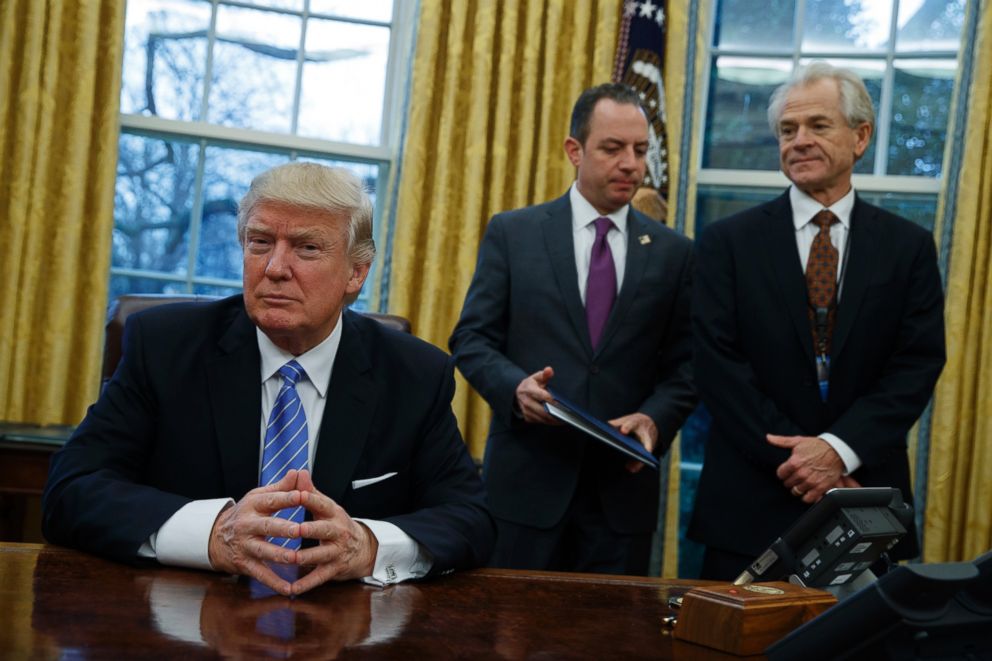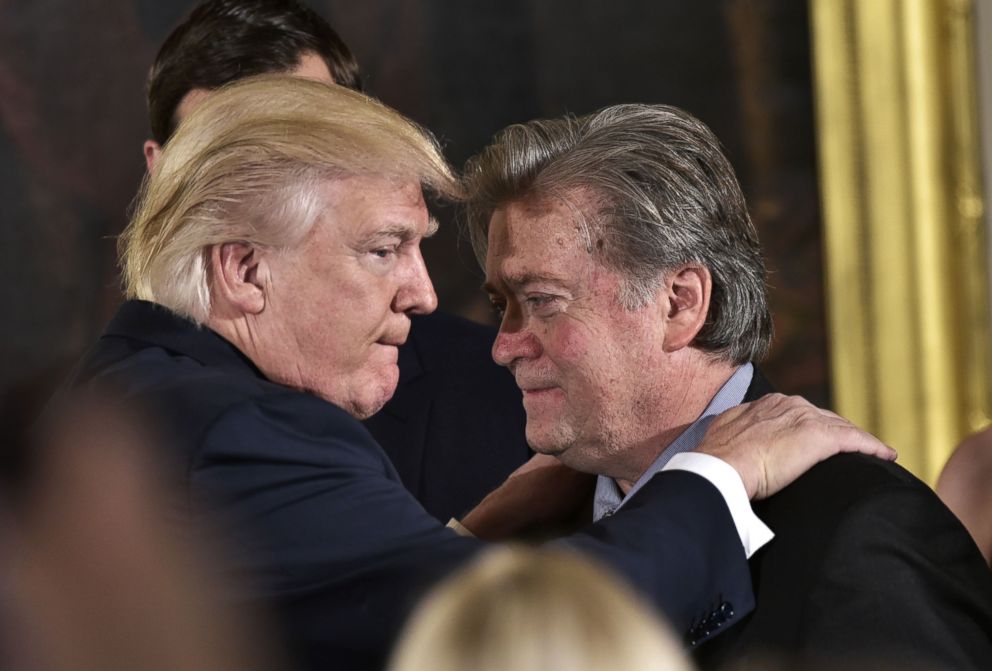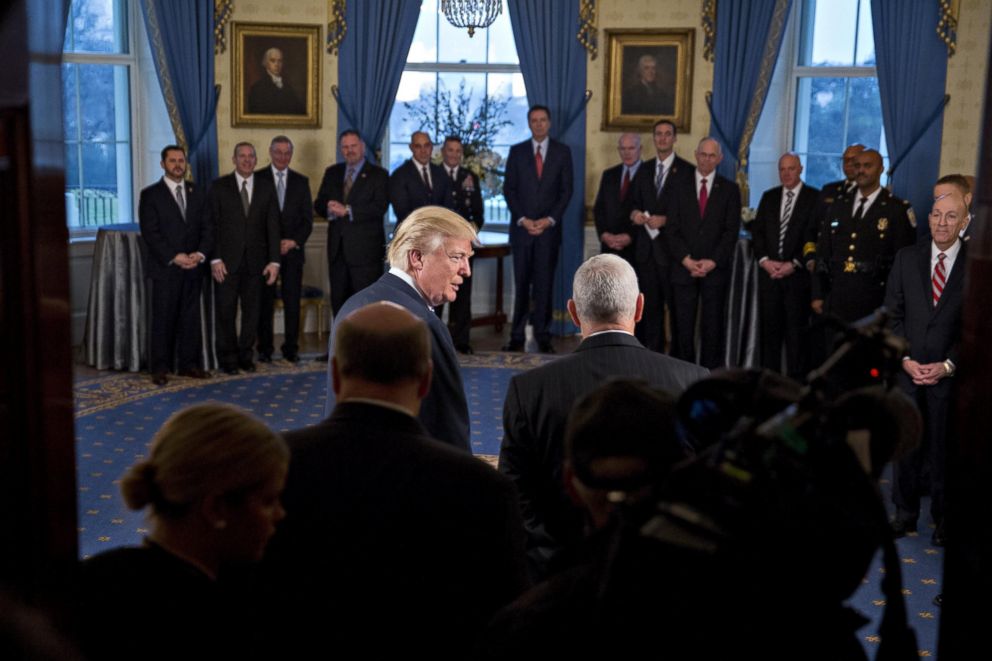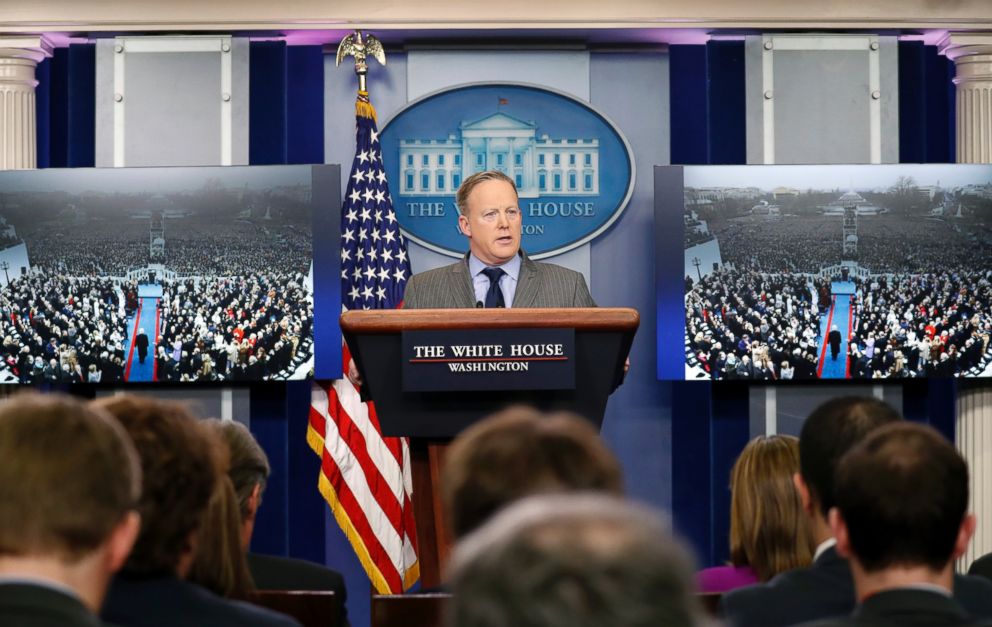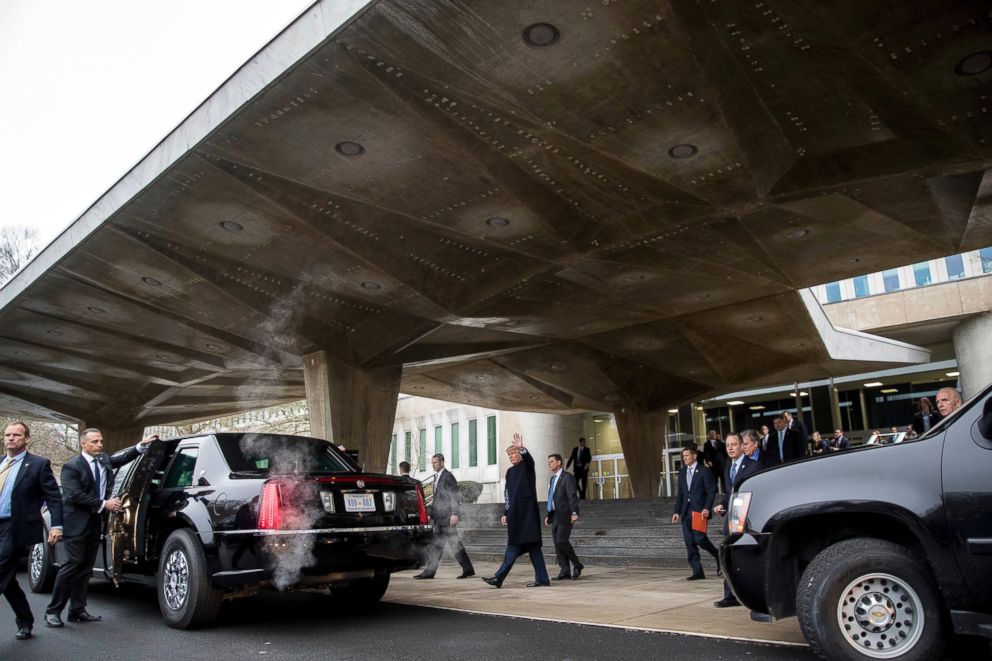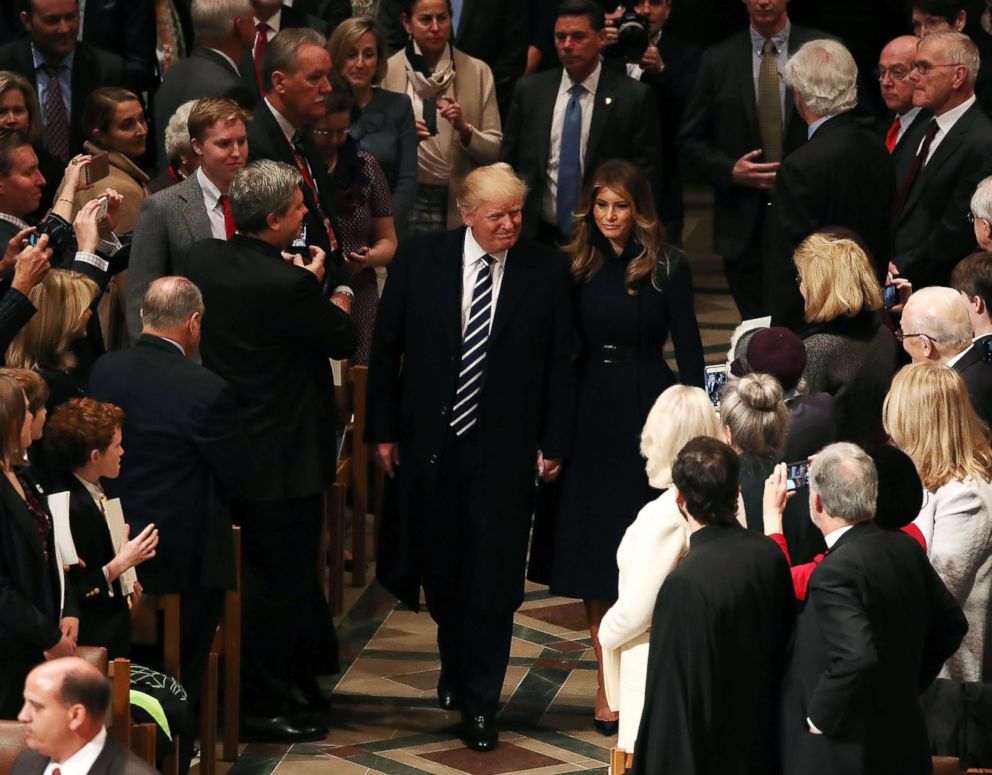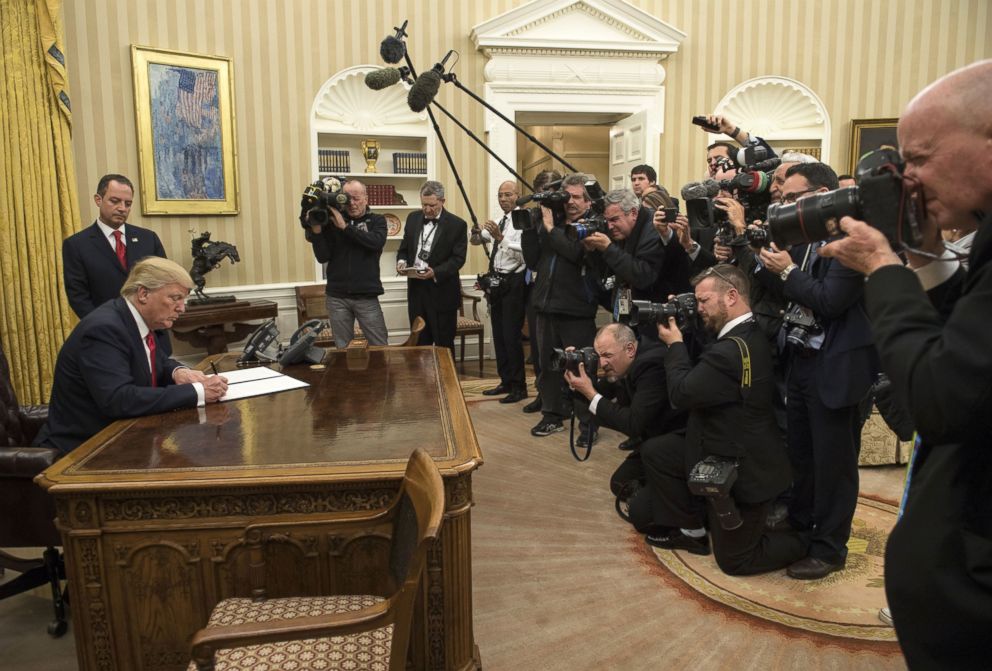How the Trump Administration Is Justifying the List of Countries Banned From Travel to the US
The Trump administration is pointing to former President Obama.
— -- The controversial temporary immigration ban that President Trump initiated via executive order sparked public outcry over the weekend and now his administration is trying to explain the move -- including how the seven affected countries were chosen.
Trump's top advisers say that the countries highlighted in the ban were the same ones identified by the Obama administration as countries of concern, given their history of ties to terrorism.
But what the Trump administration did not mention was that the Department of Homeland Security (DHS) under the Obama administration did not ban citizens from those countries outright.
The Obama administration did raise the option of not granting visa waivers to anyone who had traveled to those countries since March 1, 2011, but it gave exceptions to some people, such as aid workers and journalists.
Trump said in a statement that they expect visa issuance to all those countries to resume at some point once vetting procedures have been strengthened. However, top Trump advisers have left the door open to adding more countries to the banned list.
Who Was Banned and Why
The fact sheet issued by DHS on Sunday states the U.S. will bar "nearly all travelers" from Iraq, Iran, Somalia, Sudan, Syria, Libya and Yemen from entering the United States for at least 90 days.
DHS also clarified on Sunday that these countries were chosen because they "were designated by Congress and the Obama Administration as posing national security risks in the Visa Waiver Program."
In February 2016, during President Obama's final year in office, the Department of Homeland Security added Libya, Somalia and Yemen as "countries of concern" to an existing list that included Iraq, Iran, Sudan and Syria. What that meant was that by being listed as such a country, it limited "Visa Waiver Program travel for certain individuals who have traveled to these countries since March 1, 2011."
The DHS statement clearly listed a number of groups that would generally be granted waivers and allowed in the U.S. allowed in the U.S. without visas, and while the agency noted that the waivers would be given on a case-by-case basis, "as a general matter, categories of travelers who may be eligible for a waiver include individuals who traveled to these countries on behalf of international organizations, regional organizations, and sub-national governments on official duty; on behalf of a humanitarian NGO on official duty; or as a journalist for reporting purposes."
"Individuals impacted will still be able to apply for a visa using the regular immigration process at our embassies or consulates," the DHS statement added. "For those who need a U.S. visa for urgent business, medical, or humanitarian travel to the United States, U.S. embassies and consulates stand ready to provide visa interview appointments on an expedited basis. The new law does not ban travel to the United States, or admission into the United States, and the great majority of Visa Waiver Program travelers will not be affected."
The flow of refugees from Iraq was drastically curtailed for six months in 2011, after the FBI discovered two Iraqi refugees connected to al Qaeda had made it into the U.S. and were plotting attacks from their new home in Kentucky. American officials told ABC News they carried out a top-to-bottom review of the vetting process to close loopholes back then.
The DHS fact sheet released on Sunday also noted that legal permanent residents -- that is, green card holders -- are exempt from the travel restrictions, as are people who hold dual citizenship. But the text of Trump's executive order does not specify that.
However, the "countries of concern" list was not the only explanation the Trump administration has given for implementing a travel ban.
Demonstrators Across the Globe Gather to Protest Trump's Immigration Order
The original text of the executive order, released Friday, Jan. 27, notes the "crucial role" the visa-issuance process plays in "detecting individuals with terrorist ties and stopping them from entering the United States."
"Perhaps in no instance was that more apparent than the terrorist attacks of September 11, 2001, when State Department policy prevented consular officers from properly scrutinizing the visa applications of several of the 19 foreign nationals who went on to murder nearly 3,000 Americans," the executive order states.
The executive order states that the visa-issuance process was amended following the 9/11 terror attacks to prevent would-be terrorists from getting visas but still failed to stop attacks by foreign nationals admitted into the U.S.
None of the countries impacted by the Trump travel ban was home to any of the 19 hijackers from the 9/11 attacks -- who were all from Saudi Arabia, the United Arab Emirates, Lebanon and Egypt.
Trump Advisers Address Countries With Known Links to Terror Left Off the List
Trump's top advisers have repeatedly pointed to the list of countries of concern created by the Obama administration as their justification for inclusion in Trump's travel ban.
"President Trump is merely following President Obama's lead on state sponsored terrorist countries where they have a history of training and exporting and harboring terrorists," Trump senior adviser Kellyanne Conway said on ABC News' "Good Morning America" Monday.
When White House press secretary Sean Spicer was asked on Sunday on ABC News' "This Week" why terror-prone countries like Saudi Arabia and Pakistan were not included, he said that the administration is "looking at all of this holistically."
"But I think the first step -- because I think the Obama Administration put these first and foremost so that these countries need to have further travel restrictions based on the intelligence we have. What the president did was take the first step through this executive order of ensuring that we're looking at the entire system," he said.
Does Trump Have Ties to Some Countries Left Off the List?
Of the four countries of origin for the 9/11 hijackers, Trump does have current business interests in United Arab Emirates, but ABC News has not found any known active Trump business deals in Saudi Arabia, Egypt and Lebanon.
When asked about the absence of these countries from the ban and if that had anything to do with Trump's business interests there, Conway did not specifically answer how his business ties did or did not impact country selection.
When ABC News was completing a project about Trump's global business empire earlier this month, the Trump Organization did not provide a response to ABC News' questions about possible business deals or developments in Egypt or Saudi Arabia.
Trump's first 100 days
Trump's financial disclosure forms listed two inactive companies that may have been related to prospective business interests in Egypt. In the days after the presidential election, the Trump Organization shut down a number of entities in Saudi Arabia that were set up in 2015 and that appeared to be related to prospective business ventures, ABC News learned during its reporting.
Trump’s financial disclosure forms list two inactive companies that may have been related to prospective business interests in Egypt. Trump Marks Egypt Corp. and Trump Marks Egypt LLC have the same incorporation date of Sept. 17, 2007, according to online records of the Delaware Department of State. Trump’s disclosure forms do not indicate any income or activity associated with these entities.
Trump does have confirmed business ties to the United Arab Emirates. He currently has licensing deals in place for two golf courses in Dubai, including one designed by Tiger Woods, that are being developed by the DAMAC group.
After Trump’s election, his partners in the deal told ABC News that the Trump brand had become "stronger, more global.”Hussain Sajwani, the chairman of DAMAC, who is preparing to open the clubhouse for the first of the two 18-hole Trump golf course developments early in 2017, said the project is “benefiting from that -- the strength of that brand.”
Religious References
One of the more controversial statements that Trump made during the presidential campaign was his call for a "total and complete shutdown of Muslims entering the United States until our country's representatives can figure out what is going on," and while his position on the issue evolved during the months that followed, Trump expressed displeasure when people connected this ongoing immigration ban to religion.
All seven countries that are included in the ban are majority Muslim countries.
"There are over 40 different countries worldwide that are majority Muslim that are not affected by this order," Trump said on Sunday. He blamed the media for "falsely reporting" the details of the executive order he signed on Friday.
On the same day that Trump signed the executive order, a clip from an interview he gave to the Christian Broadcasting Network was released wherein he said that he will give Christian refugees priority.
"They’ve been horribly treated. Do you know if you were a Christian in Syria, it was impossible, at least very tough, to get into the United States? If you were a Muslim you could come in, but if you were a Christian, it was almost impossible and the reason that was so unfair, everybody was persecuted in all fairness, but they were chopping off the heads of everybody but more so the Christians. And I thought it was very, very unfair. So, we are going to help them," Trump said in a clip of the interview that was released Friday.
Trump did not give any examples or cite evidence to support his claim that it is more difficult for Syrian Christians to gain refugee status than Syrian Muslims.
He reiterated his claim on Twitter on Sunday.
ABC News' James Hill contributed to this report.
